-
Europe must prepare for US scaling down support for Ukraine, Pistorius says
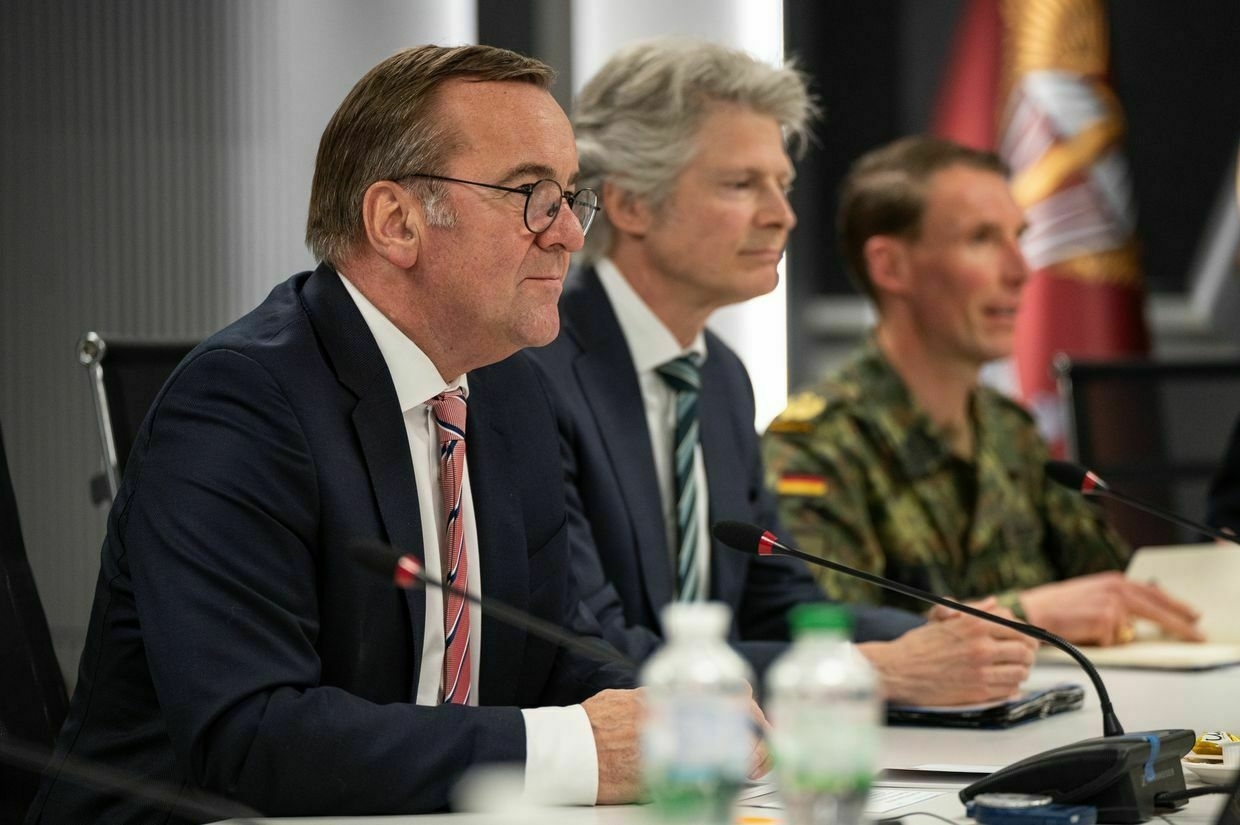
German Defense Minister Boris Pistorius said Europe must begin preparing for a gradual reduction in U.S. military support for both the continent and Ukraine, Tagesschau reported on June 13.
“Yes, that’s right. That would be so, and we have to deal with that,” Pistorius told journalists in response to a question about the U.S. potentially scaling down its support. He noted that the discussions focus on a reduction in U.S. backing rather than a full halt.
The comments come after U.S. Defense Secretary Pete Hegseth announced that Washington would reduce the assistance allocated to Ukraine in the next year’s federal budget.
“We now have to look at how much support drops and whether Europeans can compensate for it,” Pistorius added.
While the U.S. has been Ukraine’s leading military backer under former President Joe Biden, the Trump administration has yet to approve any aid packages and has become increasingly disengaged from peace talks.
Pistorius’s comments come amid increasing uncertainty in transatlantic relations. U.S. Ambassador to NATO Matthew Whitaker confirmed on May 16 that the United States plans to begin discussions with European allies later this year about reducing its military presence on the continent.
Speaking at a security conference in Estonia, Whitaker said the talks would begin after the NATO summit in The Hague in June.
“Nothing has been determined,” Whitaker said, according to Reuters. “But as soon as we do, we are going to have these conversations in the structure of NATO."
Whitaker emphasized that any drawdown would be closely coordinated to avoid creating security gaps. Still, he reiterated U.S. President Donald Trump’s position that long-standing U.S. efforts to reduce its European military footprint must now be implemented.
“This is going to be orderly, but we are not going to have any more patience for foot-dragging in this situation,” he said.
In February, Hegseth reportedly told NATO allies that “stark strategic realities” prevent the United States from being primarily focused on Europe’s security. Leaks reported by the Atlantic in March revealed that both Hegseth and Vice President JD Vance privately criticized European defense spending, with Hegseth allegedly expressing his “loathing of European free-loading."
Trump called on NATO member states to increase defense spending up to 5% of GDP. Ahead of the upcoming NATO summit in The Hague on June 24–25, U.S. Secretary of State Marco Rubio said that member states will have agreed to a new goal of increasing defense spending.
“We are headed for a summit in six weeks in which virtually every member of NATO will be at or above 2%, but more importantly, many of them will be over 4%, and all will have agreed on a goal of reaching 5% over the next decade,” Rubio told Fox News on May 15.
Such a move would mark a historic shift, with NATO partners collectively accounting for more than half of the alliance’s military capacity, according to Rubio.
Since the beginning of Russia’s full-scale war against Ukraine in 2022, NATO members have significantly increased their defense spending, with countries like Poland and the Baltic nations aiming to reach the 5% target in the coming years.
Ukraine bracing for ‘painful’ reduction in US military aid after Hegseth announces cutsEditor’s note: For security reasons, the real names of the soldiers mentioned in this story have not been used. A reduction in U.S. military aid to Ukraine would be “painful” and could have potentially “dire consequences” for the global order, Ukrainian lawmakers and soldiers have told the Kyiv Independent.The Kyiv IndependentKateryna Hodunova
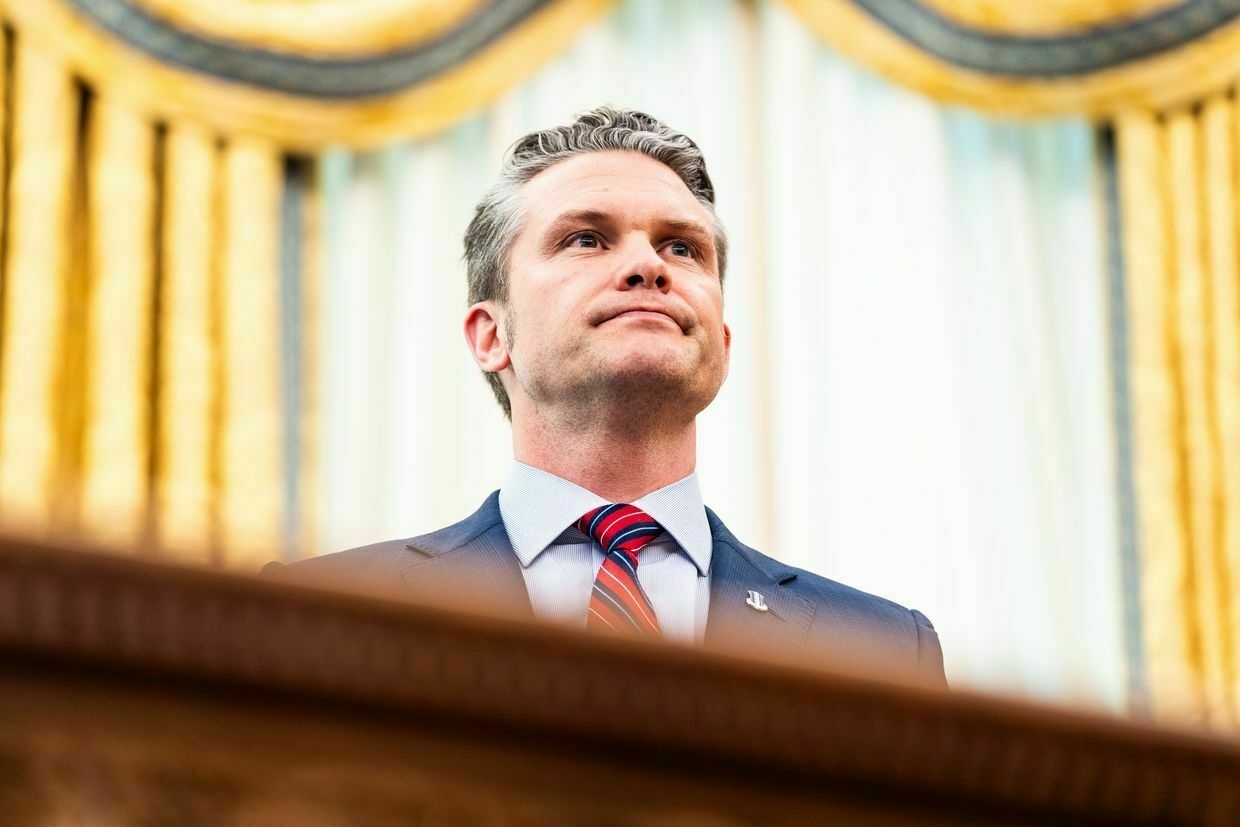
-
'At a critical time' — Zelensky appoints new head of Ukraine's mission to NATO
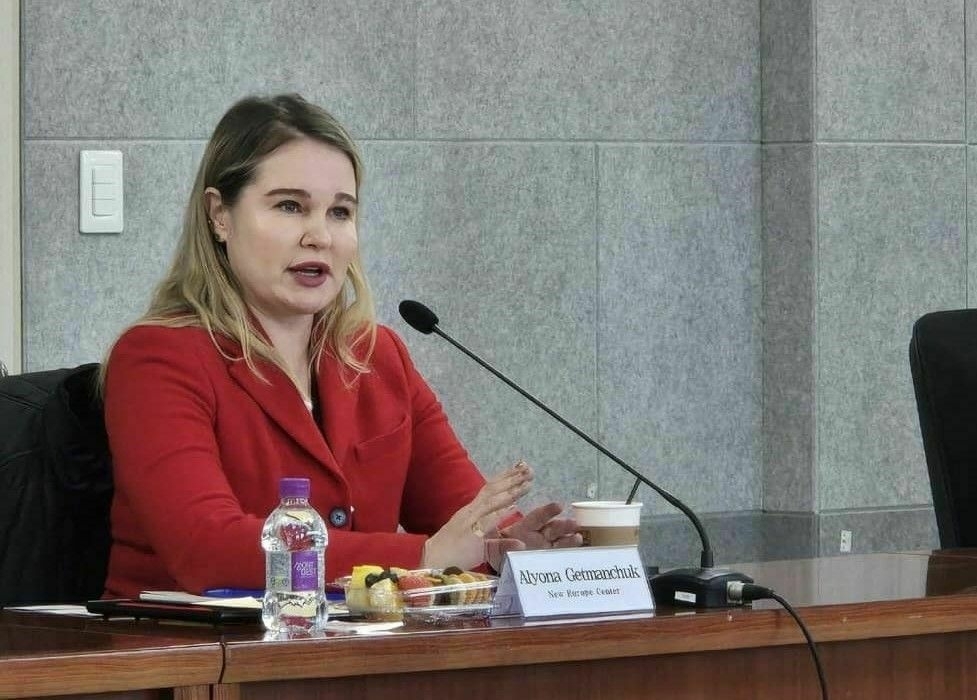
President Volodymyr Zelensky on June 13 appointed Aliona Hetmanchuk as the head of Ukraine’s mission to NATO, replacing Nataliia Halibarenko.
The appointment came “at a critical time for the future of Ukraine, for the future of NATO itself, and, of course, for Ukraine’s future in NATO. I realize the responsibility,” Hetmanchuk said on her Facebook page on June 13.
“As for this moment, we will be fully immersed in preparations for the summit in The Hague,” she added, referring to the upcoming NATO summit that will take place in the Netherlands on June 24 and 25, with Ukraine participating.
Hetmanchuk is a leading Ukrainian foreign policy expert with a background in journalism. She is the founder and director of the New Europe Center and a nonresident senior fellow at the Atlantic Council’s Eurasia Center.
Previously, Hetmanchuk co-founded and directed the Institute of World Policy and has advised the Presidential Consultation Committee between Ukraine and Poland since 2016.
Ukraine applied for alliance membership in September 2022, several months after Russia launched its full-scale invasion. While NATO has repeatedly affirmed that Kyiv will eventually join, it has yet to extend a formal invitation.
NATO Secretary General Mark Rutte said on June 9 that the political commitment to Ukraine’s future membership in NATO remains unchanged, even if it is not explicitly mentioned in the final communique of the upcoming summit in The Hague.
“The irreversible path of Ukraine into NATO is there, and it is my assumption that it is still there after the summit,” Rutte said at Chatham House in London.
Rutte’s comments follow reporting that this year’s summit communique, set for release after the June 24–25 meeting, may exclude references to Ukraine. This would mark a notable departure from previous gatherings, where Kyiv’s future in NATO took center stage.
Amid Moscow’s war in Ukraine, Trump wonders why ‘everybody hates’ Russia“He (Russian President Vladimir Putin) fought with us in World War II… and now everybody hates Russia and loves Germany and Japan. It’s a strange world,” U.S. President Donald Trump said.The Kyiv IndependentAnna Fratsyvir
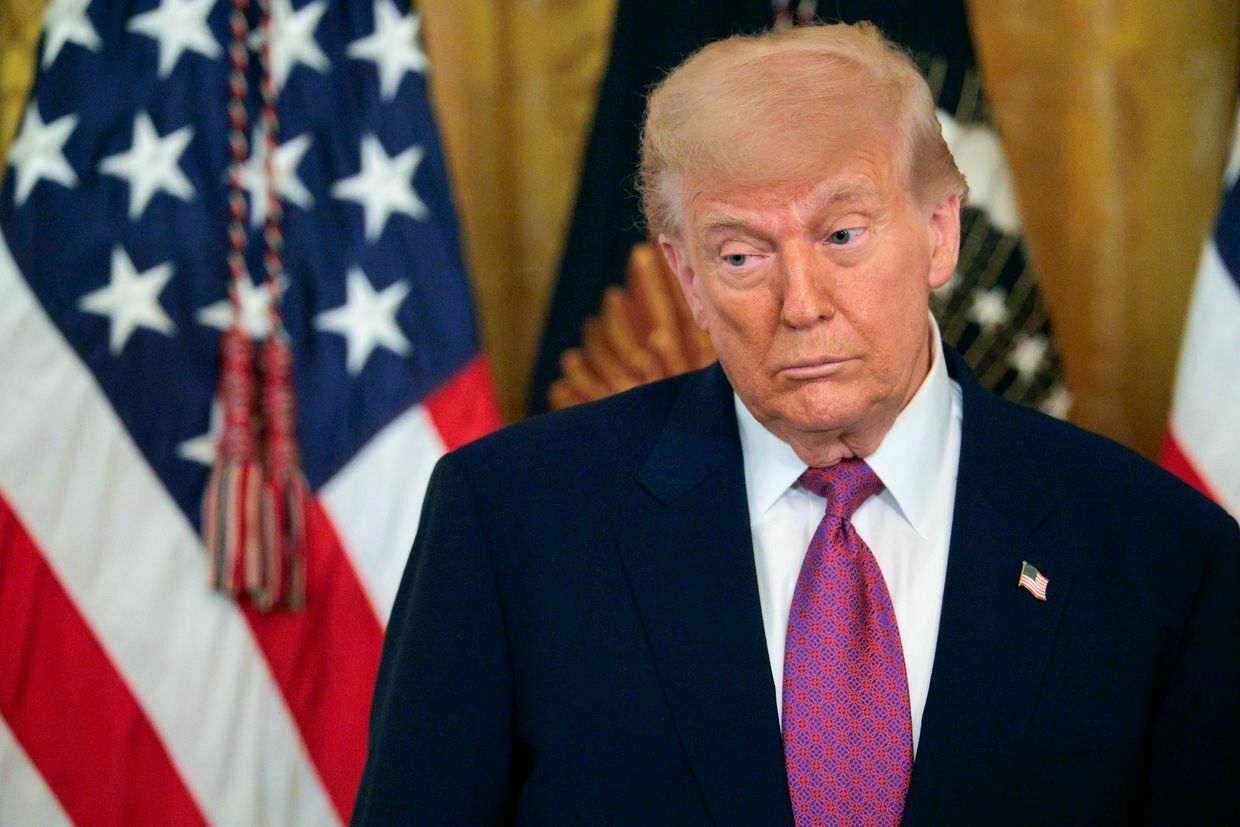
-
After Israel's strikes, Ukraine says Iran 'source of problems' but warns against destabilization
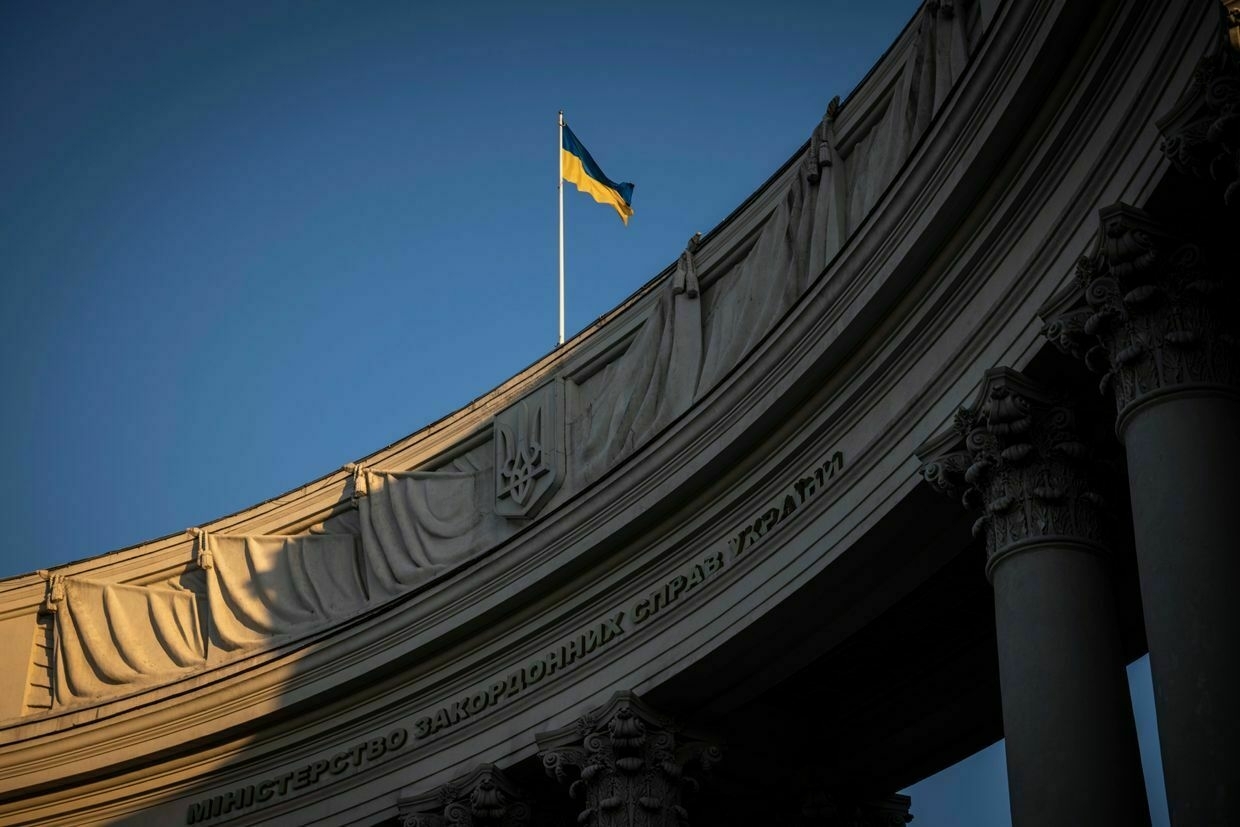
Kyiv on June 13 expressed concern over the security situation in the Middle East after Israeli air strikes against Iran, but stressed that Tehran remains a “source of problems” in the region “and beyond."
The statement follows what Israel called a “preemptive” strike against Iran overnight on June 13, targeting the country’s nuclear program and reportedly killing top military officials.
“We would like to remind you that the Iranian regime supports Russia in its illegal war of aggression against Ukraine and provides Moscow with weapons to kill Ukrainians,” the Ukrainian Foreign Ministry said in a statement.
Along with North Korea, Iran has been a key ally to Russia during its full-scale war against Ukraine, providing thousands of Shahed strike drones and short-range ballistic missiles.
Ukraine has called upon the international community “to take joint and decisive action” and deter a “group of aggressive regimes — Russia, Iran, and North Korea."
Kyiv nevertheless also warned that further hostilities could destabilize the region with “negative consequences for international security and global financial stability, especially in oil markets."
Israeli strikes were quickly followed by a surge in oil prices, Russia’s key export commodity, with Brent and Nymex crude prices jumping by more than 10%.
“We are convinced that restoring peace and stability in the Middle East will serve the interests not only of the region but also of the entire international community,” the Ukrainian Foreign Ministry said.
Iran has pledged a response to Israeli air strikes and accused the United States of “also being responsible for the dangerous consequences of this reckless escalation.” The Trump administration has acknowledged it knew about the operation in advance but denied any involvement.
According to the Israel Defense Forces (IDF), Tehran has already launched over 100 drones against Israel in response.
The attacks took place amid escalating tensions in the Middle East and U.S. President Donald Trump’s push to find a diplomatic solution to Iran’s nuclear aspirations. A round of indirect U.S.-Iranian negotiations in Oman was scheduled for June 15.
Russia has condemned Israel’s attacks as “unprovoked aggression” and a violation of the U.N. Charter.
Israel launches ‘preemptive’ air strikes on Iran’s nuclear program, IRGC chief killed in attackIsraeli forces launched “preemptive strikes” on Iran overnight on June 13, tarting Iran’s nuclear program, Prime Minister Benjamin Netanyahu said in an overnight address.The Kyiv IndependentLucy Pakhnyuk
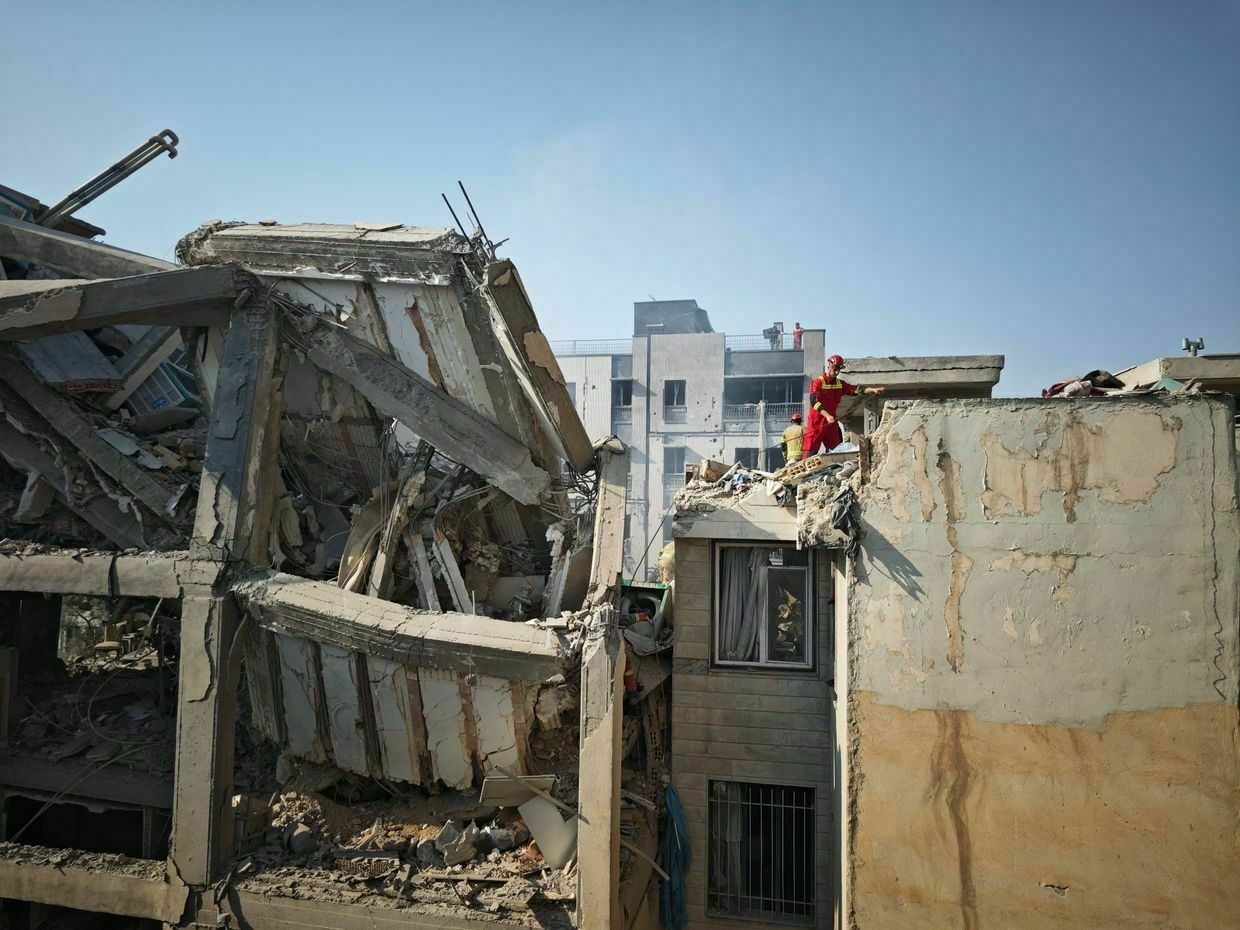
-
Amid Moscow's war in Ukraine, Trump wonders why 'everybody hates' Russia
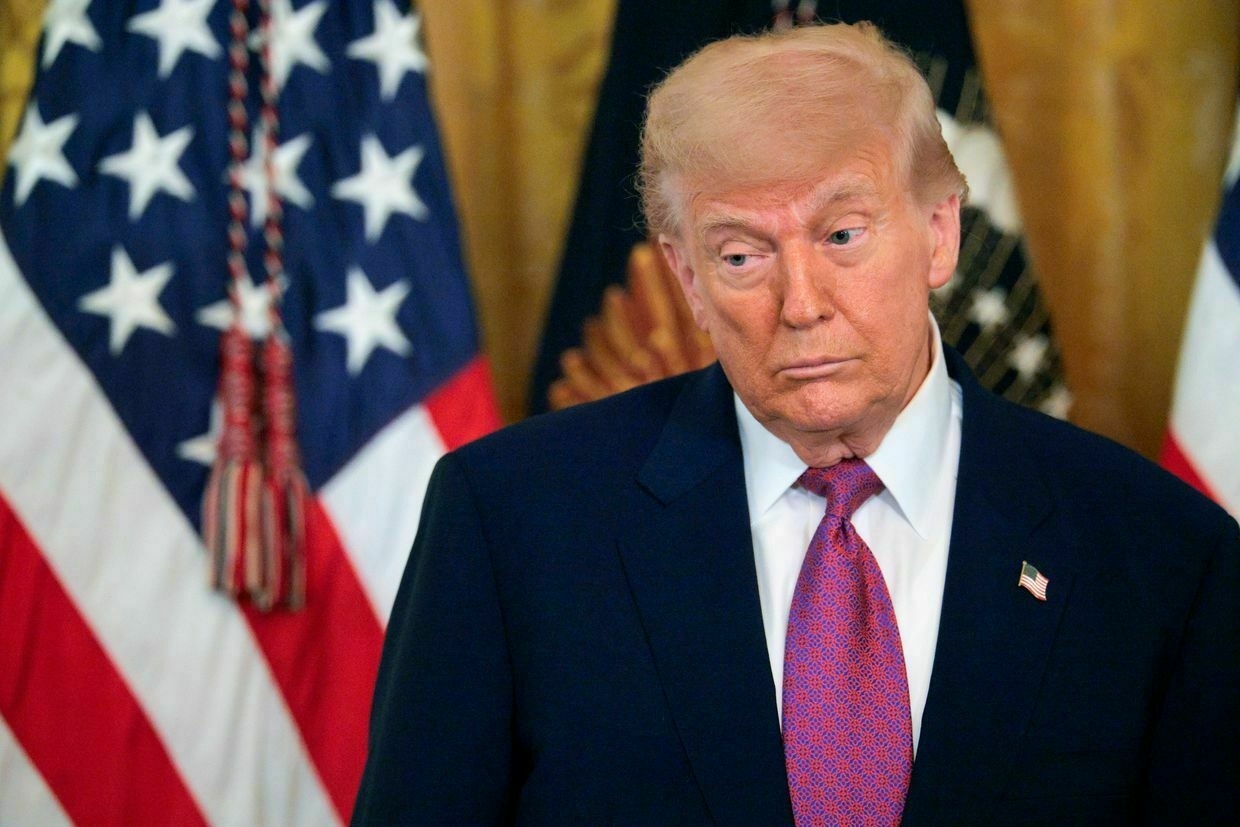
U.S. President Donald Trump on June 12 praised Russia’s role in World War II, saying Russian President Vladimir Putin is “confused” why everyone “hates” Moscow.
Speaking at a White House press conference, Trump recounted a conversation with French President Emmanuel Macron about World War II commemorations.
“I said, ‘You’re celebrating our victory?’ He said, ‘Yes.’ I said, “Your victory?'” Trump said.
“And then I spoke to President Putin at the time. He lost 51 million people. He (sic!) fought with us in World War II. Russia did fight. It’s interesting, isn’t it? It fought with us in World War II, and everyone hates it.
“And now everybody hates Russia and loves Germany and Japan. It’s a strange world."
Trump said Putin had expressed confusion over the West’s treatment of Russia post-war, citing the Soviet Union’s wartime alliance with the U.S. and U.K.
“We were your ally,” Putin allegedly told Trump. “Now everybody hates Russia."
Trump’s remarks align with a Kremlin propaganda narrative that downplays the Soviet Union’s World War II non-Russian casualties. According to Ukraine’s Institute of National Remembrance, Ukraine alone lost more than 10 million people during the war and suffered immense destruction on its territory — a fact often overlooked in Kremlin-led historical revisionism.
Russia has frequently weaponized its version of World War II history to justify present-day aggression. The Kremlin has invoked anti-Nazi rhetoric and Soviet-era heroism to rationalize its full-scale invasion of Ukraine, launched in February 2022 — a war that has resulted in tens of thousands of deaths and the displacement of millions.
Trump has positioned himself as the only leader capable of ending the Russia-Ukraine war, but his reluctance to apply real pressure on Moscow has left Kyiv and its allies doubtful. The U.S. president has softened his tone on Russia while repeatedly threatening sanctions over its attacks on Ukraine — yet no new measures have been imposed.
Talking at the press conference about the war and the stalled peace efforts, Trump said he was “disappointed” with both Russia and Ukraine, adding that “deals could have been made."
Trump has previously said that he refrained from imposing additional sanctions in hopes of securing a peace deal between Kyiv and Moscow.
“If I think I’m close to getting a deal, I don’t want to screw it up by doing that,” he said on May 28, adding that a decision would come “in about two weeks."
Despite failed peace efforts in Istanbul and Russia’s continued refusal to agree to a ceasefire, Trump reportedly asked Senate Republicans to delay voting on a bipartisan sanctions bill that would impose a 500% tariff on imports from countries buying Russian oil.
The legislation, introduced in April, has broad bipartisan support, including backing from Senate Minority Leader Chuck Schumer and House Speaker Mike Johnson.
Meanwhile, Russia continues its offensive in Ukraine and has shown no signs of seeking peace. It continues escalating its attacks on Ukrainian cities, causing numerous civilian casualties.
Who’s countering Russian propaganda now? Expert on US’ declining disinformation defenseThe Kyiv Independent’s Natalia Yermak speaks to James Rubin, a former diplomat who led the Global Engagement Center in 2022-2024, about how deeply the Russian propaganda influences U.S. politics and why the center’s closure “disarms” the country in the information war.The Kyiv IndependentNatalia Yermak
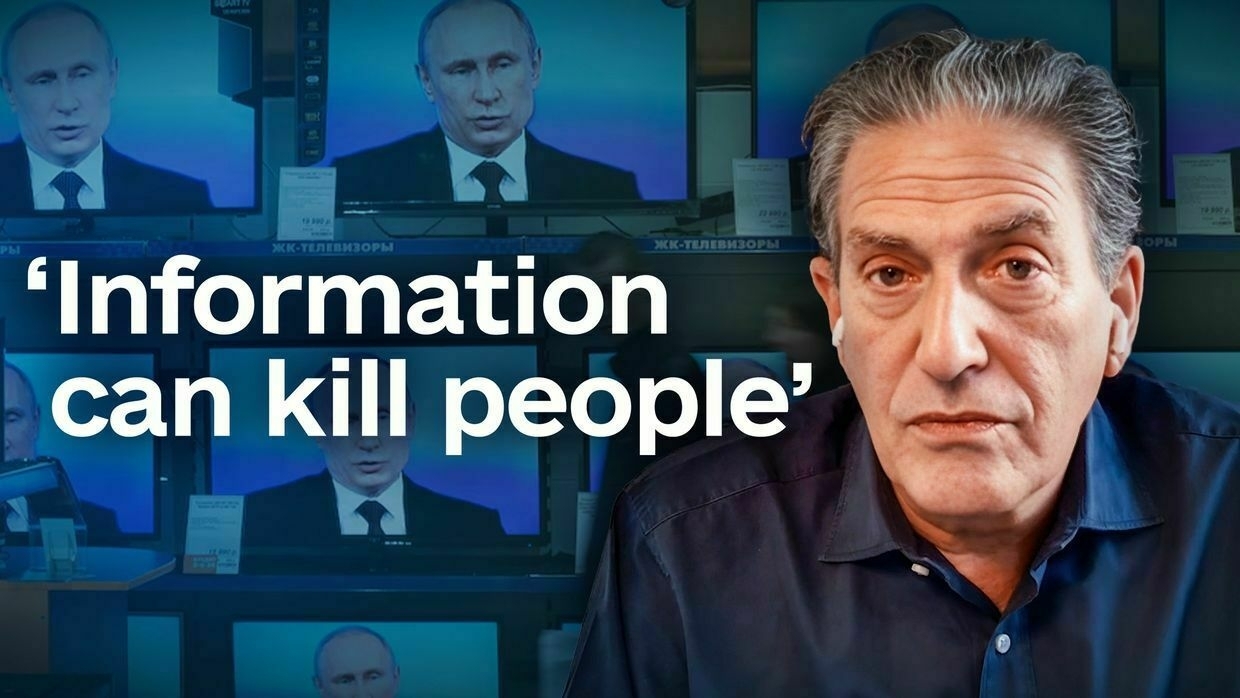
-
US ready to defend itself, Israel if Iran responds to Israeli air strikes, Trump says
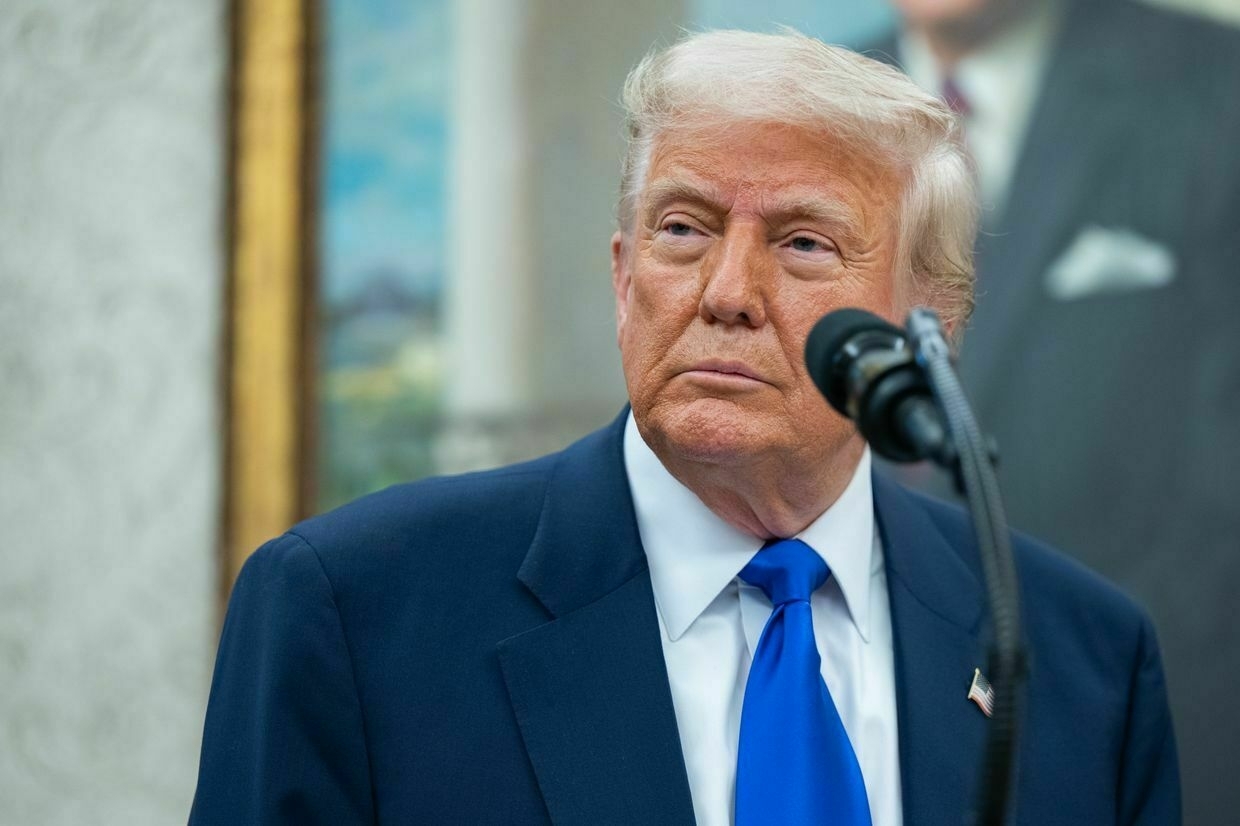
U.S. President Donald Trump said on June 13 that he was aware of Israel’s plans to conduct strikes on Iran in advance and that Washington is watching for any signs of retaliation by Tehran, Fox News reported.
“Iran cannot have a nuclear bomb and we are hoping to get back to the negotiating table. We will see. There are several people in leadership that will not be coming back,” Trump told Fox News' anchor Bret Baier.
The comments come after Israel launched heavy air strikes against 100 sites in Iran, targeting the country’s nuclear program and reportedly killing Hossein Salami, the commander-in-chief of the Islamic Revolutionary Guard Corps (IRGC), and other top officials.
In a statement released by the State Department, U.S. Secretary of State Marco Rubio said that the United States was not involved in the strikes on Iran, calling it a “unilateral action."
The U.S. has reached out to at least one Middle Eastern ally to say that the strike is going to happen, but that Washington was not involved, Fox News reported.
Trump said the U.S. military is on high alert and watching for any kind of retaliation, adding that the U.S. will respond to defend itself or Israel if Iran strikes back.
The Israel Defense Forces (IDF) said that Tehran had already launched over 100 drones against Israel, which are expected to reach their targets within the next few hours.
Before the attacks, Trump emphasized that despite tensions, he is committed to avoiding conflict and prefers a diplomatic solution to Iran’s nuclear aspirations. “I want to have an agreement with Iran,” Trump said, referring to ongoing Iran-U.S. nuclear talks in Oman.
Writing on Truth Social, Trump reaffirmed his commitment to a “diplomatic resolution to the Iran nuclear issue,” and insisted that his “entire administration has been directed to negotiate with Iran."
Iran insists its nuclear program is for peaceful purposes and has expressed willingness to accept limited restrictions in exchange for the lifting of sanctions.
In contrast, the International Atomic Energy Agency released a report highlighting Iran’s failure to comply with its obligations to fully disclose activities at its nuclear facilities.
Beyond the Middle East, Iran has emerged as a key ally of Russia in its war against Ukraine, supplying Moscow with drones used in attacks on Ukrainian cities.
Israel launches ‘preemptive’ air strikes on Iran’s nuclear program, IRGC chief killed in attackIsraeli forces launched “preemptive strikes” on Iran overnight on June 13, tarting Iran’s nuclear program, Prime Minister Benjamin Netanyahu said in an overnight address.The Kyiv IndependentLucy Pakhnyuk
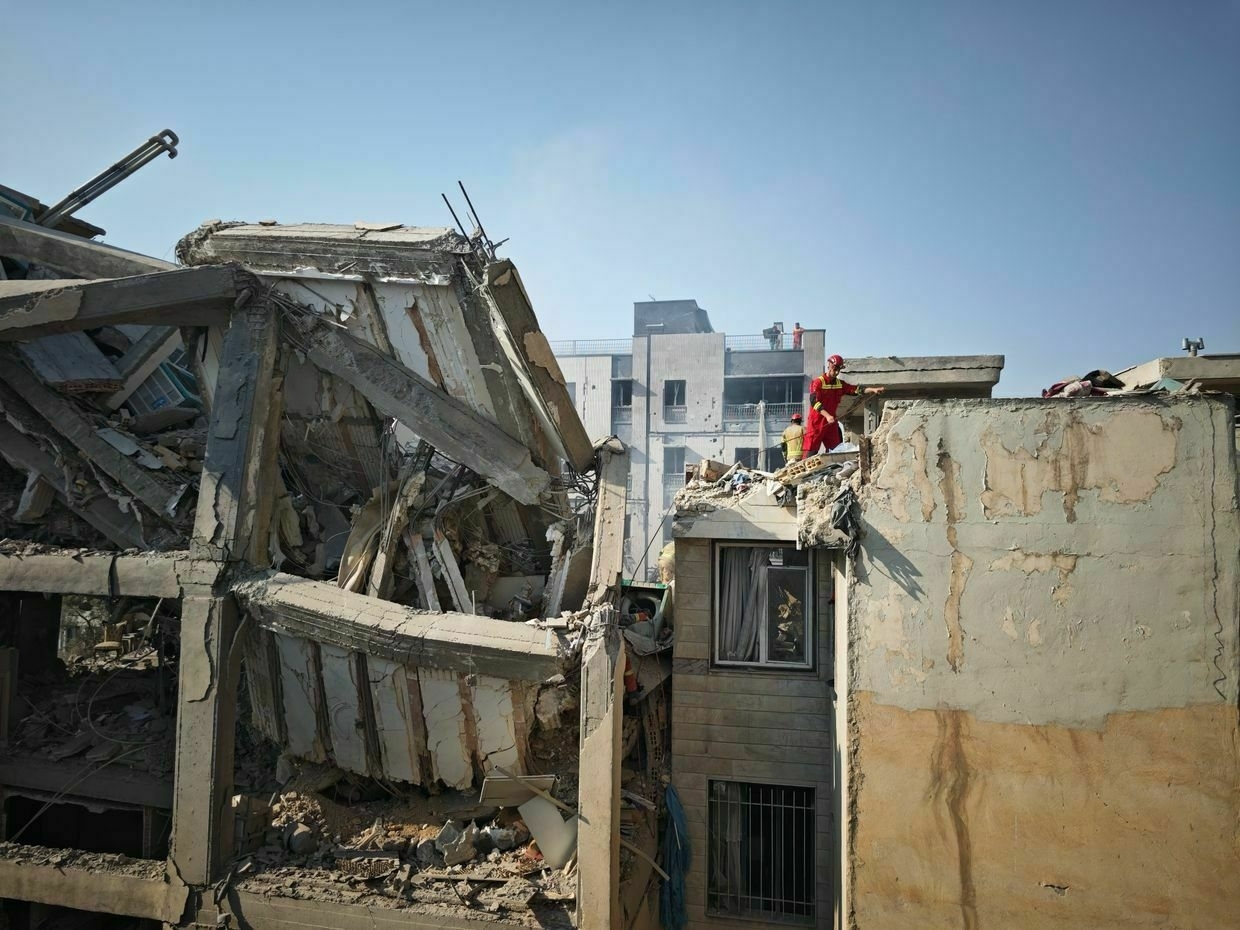
-
NATO to strengthen missile defenses in Eastern Europe to counter Russian threats, Bloomberg reports
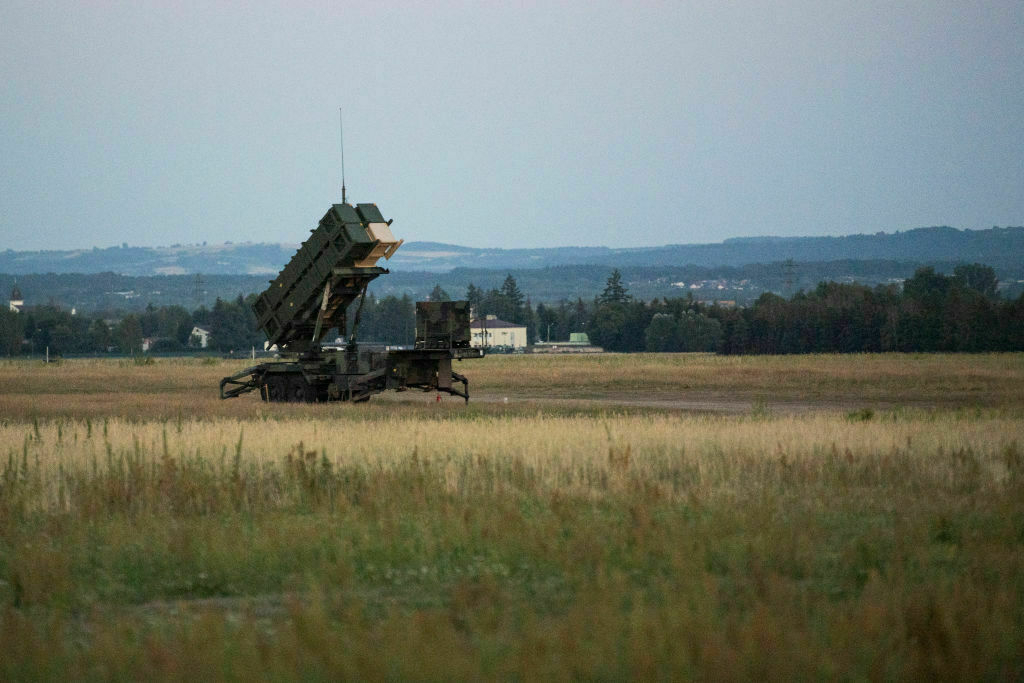
NATO plans to enhance its missile defense systems on its eastern flank in response to a growing threat from Russia, Bloomberg reported on June 12, citing its undisclosed sources.
For the first time, member states of NATO are reportedly considering combining the alliance’s ballistic missile shield with other integrated missile defense assets. The talks are taking place behind closed doors and involve sensitive deliberations, Bloomberg reported, citing its sources.
Moscow has long opposed NATO’s missile defense infrastructure, particularly the U.S.-built interceptors deployed in Poland and Romania, states neighboring Ukraine. The alliance has previously said those systems are intended to counter potential long-range threats from Iran, not Russia.
The so-called “NATO expansion to the east” is one of the key narratives used by Russian propaganda to justify its large-scale war against Ukraine.
The proposed integration of ballistic missile defense with NATO’s broader air and missile defense network would address threats from any direction in the future. This shift suggests the effort would increasingly be focused on deterring Russian capabilities, according to Bloomberg’s sources.
The move comes as NATO ramps up its defense posture more than three years after Russia launched its full-scale invasion of Ukraine. The alliance recently agreed on the most ambitious new weapons targets since the Cold War.
NATO Secretary General Mark Rutte called on alliance members to make a “quantum leap” in defense investment in response to the enduring threat from Russia. Speaking at Chatham House in London, Rutte urged allies to increase air and missile defense by 400%.
Talks on integrating the systems may wrap up ahead of the NATO summit in The Hague on June 24–25, but could continue afterward, the sources said. Ukraine is invited to attend the summit. It remains unclear whether the initiative will still officially cite Iran as a threat or move fully toward addressing Russia.
The effort is part of a broader strategy to reinforce NATO’s eastern flank, but some officials have raised concerns about how it might affect peace efforts in Ukraine and whether the United States will fully support the integration, Bloomberg reported.
Previously, U.S. President Donald Trump echoed Russian claims that Kyiv provoked the invasion by pursuing its NATO ambitions.
Earlier, Bloomberg reported that NATO is deploying a new satellite surveillance system aimed at monitoring military activity in Ukraine and along the alliance’s eastern borders. The system, known as Smart Indication and Warning Broad Area Detection (SINBAD), will use AI-powered analysis to scan large areas and detect potential threats with unprecedented frequency.
NATO expands satellite surveillance to monitor Ukraine, eastern flankThe initiative, named Smart Indication and Warning Broad Area Detection (SINBAD), will allow NATO to scan vast territories with unprecedented frequency, using AI-powered analysis to detect changes and alert allies to potential threats.The Kyiv IndependentAnna Fratsyvir
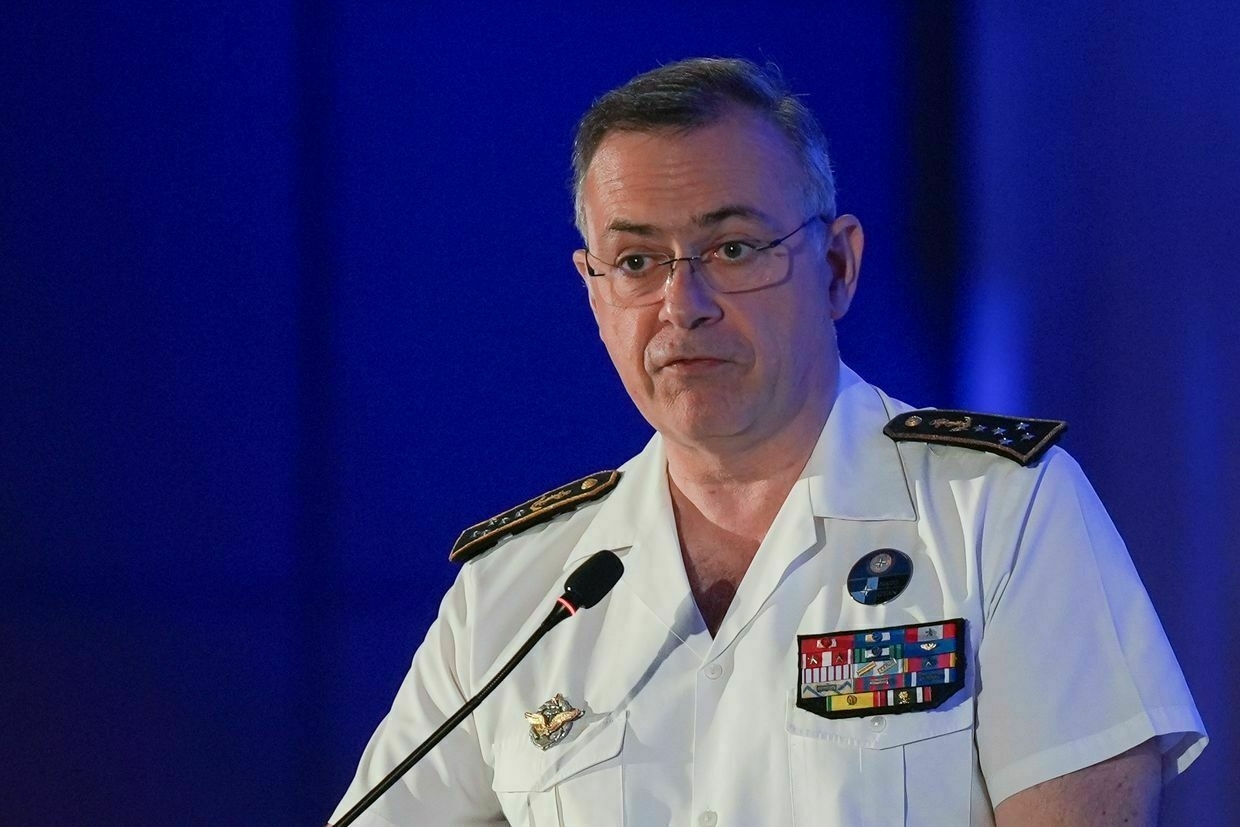
-
Ukraine secures return of 5 children from Russia, Russian-occupied territories

Ukraine successfully brought back five children who had been forcibly taken to Russia as well as Russian-occupied territory, Presidential Office head Andriy Yermak announced on June 12.
The children have been returned home under the President of Ukraine’s initiative, Bring Kids Back UA, according to Yermak.
“We are fulfilling the President’s mission — to bring back every Ukrainian child,” Yermak said in an statement.
Since February 2022, at least 20,000 Ukrainian children have been abducted from Russian-occupied territories and sent to other Russian-controlled areas of Ukraine or to Russia itself, according to a Ukrainian national database, “Children of War.” Only 1,359 children have been returned thus far.
Dmytro Lubinets, Ukrainian Parliament’s Commissioner for Human Rights, estimated that Russia has unlawfully deported up to 150,000 Ukrainian children, while the Children’s Ombudswoman, Daria Herasymchuk, puts the figure at 200,000–300,000.
In March 2023, the International Criminal Court (ICC) issued arrest warrants for Russian President Vladimir Putin and Children’s Commissioner Maria Lvova-Belova, citing their involvement in the unlawful transfer of Ukrainian children. Russia dismissed the ICC’s decision as “outrageous and unacceptable."
Under orders from Putin, children were transported via military aircraft in 2022, reclassified in Russian databases as native-born, and subjected to pro-Russian re-education before being adopted into Russian families. Ukrainian children had been transported to at least 21 regions throughout Russia.
Child abductions have played a key part of U.S.-Russia peace negotiations — all of which Russia has thus far rejected. Ukrainian officials have named their return as a key condition for any future peace agreement with Russia.
President Volodymyr Zelensky said on June 3 that during the Istanbul negotiations, Russian representatives dismissed the issue of abducted Ukrainian children as a “show for childless European old ladies” and acknowledged deporting several hundred children.
CNN reported on June 11 that the Yale University-based Humanitarian Research Lab, which spearheads the Ukraine Conflict Observatory is preparing to shut down after its funding was terminated by the Trump administration.
A Yale study published on Dec. 3 detailed Russia’s systematic program of deporting and forcibly assimilating Ukrainian children.
With only 2 weeks of funding left, US group tracking Russian abduction of Ukrainian children prepares to shut down“Right now, we are running on fumes,” Nathaniel Raymond, the lab’s executive director, told CNN. “As of July 1, we lay off all of our staff across Ukraine and other teams, and our work tracking the kids officially ends.”The Kyiv IndependentAnna Fratsyvir
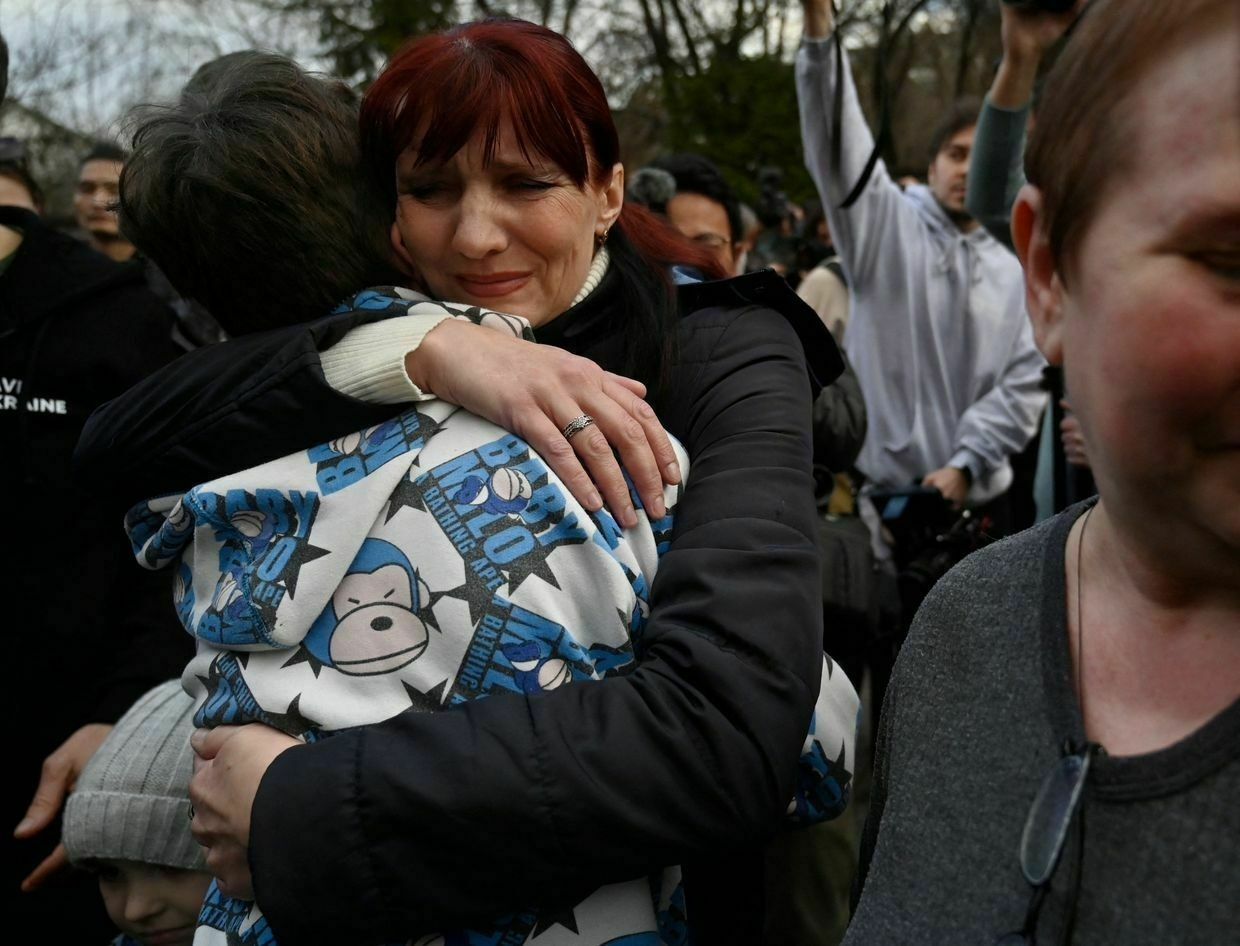
-
Israel launches 'preemptive strikes' on Iran targeting nuclear program
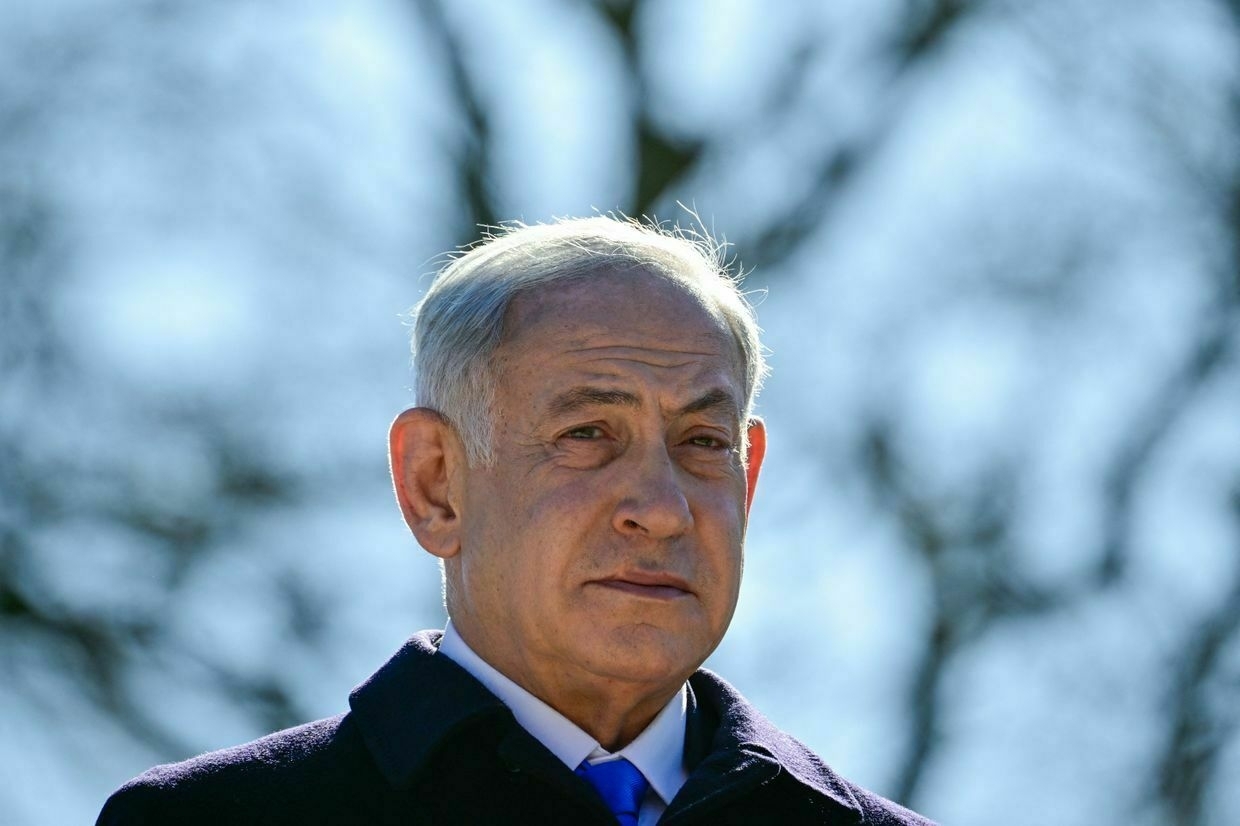
Editor’s note: This is a breaking story and is being updated.
Israeli forces launched “preemptive strikes” on Iran overnight on June 13, tarting Iran’s nuclear program, Prime Minister Benjamin Netanyahu said in an overnight address.
Netanyahu said in an overnight address that Israel launched “Operation Rising Lion,” which would last for “many days,” marking a drastic escalation in conflict in the Middle East.
“We struck at the heart of Iran’s nuclear enrichment program… We targeted Iran’s main enrichment facility in Natanz. We targeted Iran’s leading nuclear scientists working on the Iranian bomb,” Netanyahu said.
The full extent of the attack was not immediately clear. Multiple explosions were reported in Tehran as videos posted on social media purportedly show fire burning in multiple locations of Tehran.
“Following the State of Israel’s preemptive strike against Iran, a missile and drone attack against the State of Israel and its civilian population is expected in the immediate future” Katz warned in a statement.
U.S. President Donald Trump, who plans to convene a cabinet meeting in response to the strikes, expressed concerns about escalating tensions between Israel and Iran earlier in the day, warning that a “massive conflict” could erupt in the Middle East.
In a statement released by the State Department, U.S. Secretary of State Marco Rubio said that the United States was not involved in the strikes on Iran.
“Tonight, Israel took unilateral action against Iran. We are not involved in strikes against Iran and our top priority is protecting American forces in the region,” Rubio said.
Speaking to reporters at the White House on June 12 ahead of the strikes, Trump warned that an Israeli strike on Iran “could happen” if a nuclear deal is not reached with Iran. Talks between Washington and Tehran were set to resume this weekend on Iran’s nuclear program.
Earlier in the day, Trump emphasized that despite tensions, he is committed to avoiding conflict and prefers a diplomatic solution to Iran’s nuclear aspirations. “I want to have an agreement with Iran,” Trump said, referring to ongoing Iran-US nuclear talks in Oman.
Writing on Truth Social later in the day, Trump reaffirmed his commitment to a “diplomatic resolution to the Iran nuclear issue,” and insisted that his “entire administration has been directed to negotiate with Iran."
Iran insists its nuclear program is for peaceful purposes and has expressed willingness to accept limited restrictions in exchange for the lifting of sanctions.
Coinciding with Trump’s remarks, the International Atomic Energy Agency released a report highlighting Iran’s failure to comply with its obligations to fully disclose activities at its nuclear facilities.
Beyond the Middle East, Iran has emerged as a key ally of Russia in its war against Ukraine, supplying Moscow with drones used in attacks on Ukrainian cities.
In April 2025, Russian President Vladimir Putin ratified a strategic partnership with Iran, vowing to strengthen bilateral ties and pledging not to support any third party engaged in conflict with the other.
Iran’s parliament ratifies 20-year strategic agreement with RussiaWhile the pact does not include a mutual defense clause, it outlines commitments for both countries to cooperate against common military threats, enhance military-technical collaboration, and participate in joint military exercises, according to Reuters.The Kyiv IndependentAnna Fratsyvir
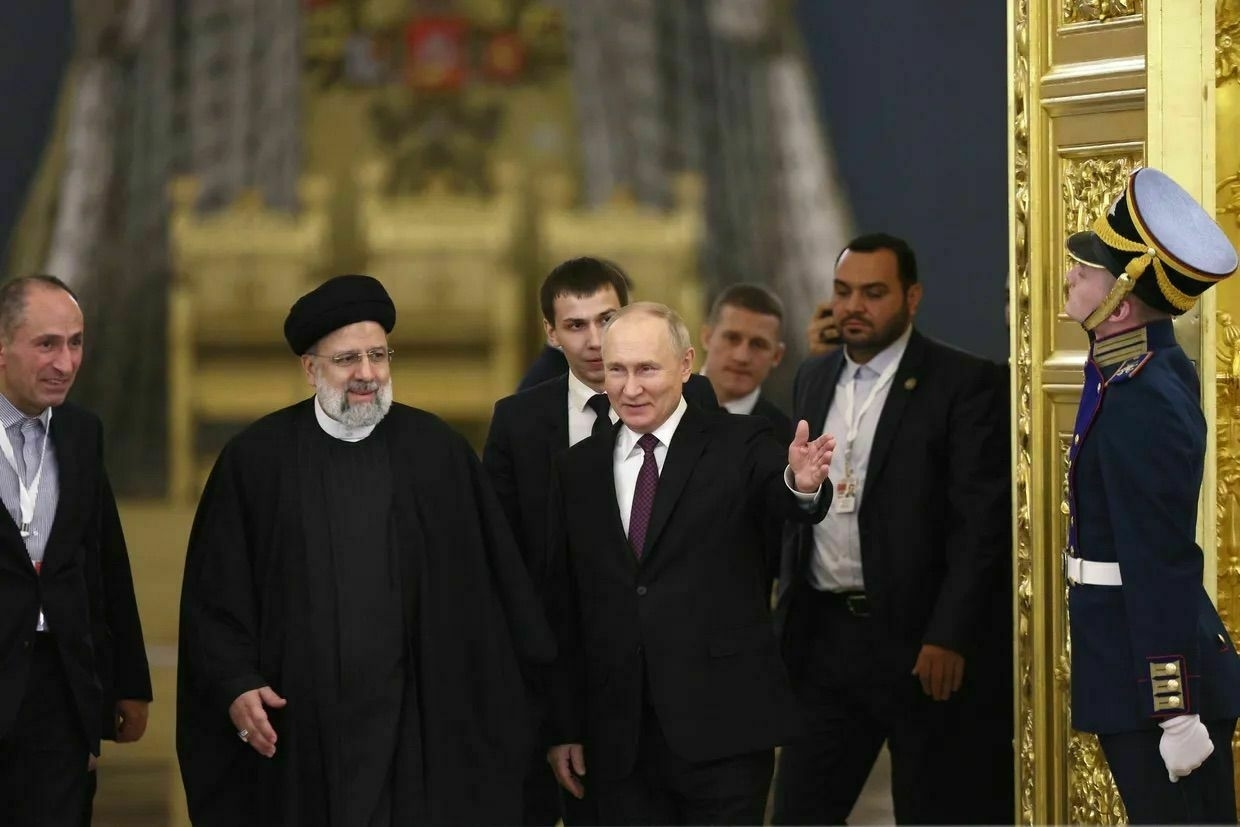
-
G7 ready to lower Russian oil price cap without US support, Reuters reports
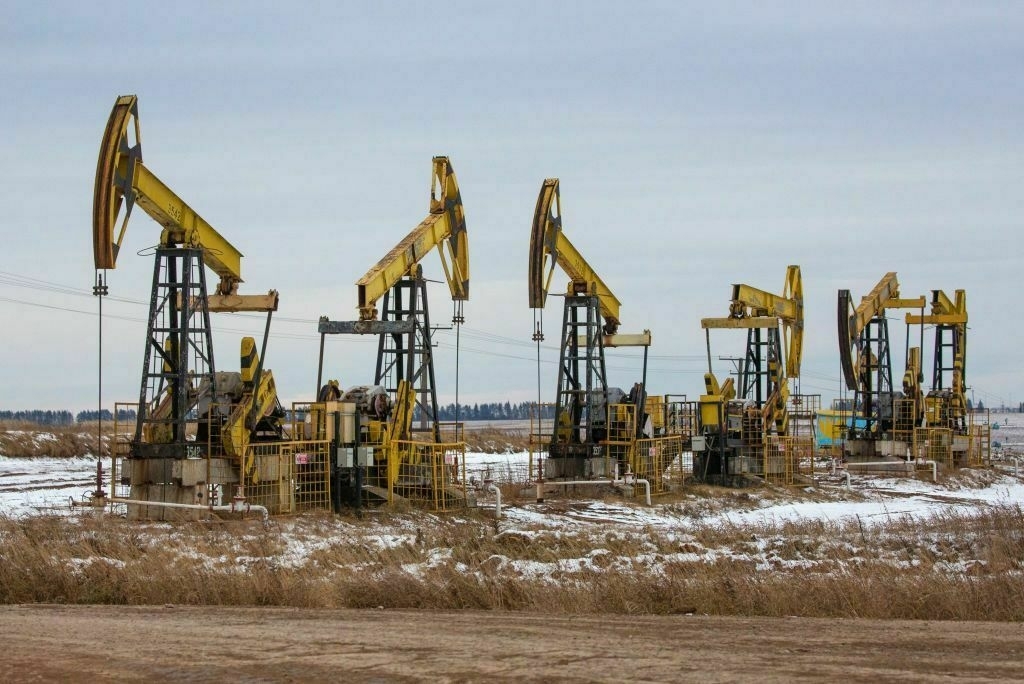
Most Group of Seven (G7) nations are prepared to lower the Russian oil price cap from $60 to $45 a barrel even without support from the United States, Reuters reported on June 12, citing unnamed sources familiar with the matter.
According to Reuters, the European Union and United Kingdom, backed by other European G7 countries and Canada, are ready to lead the charge in lowering the Russian oil price cap – even if U.S. President Donald Trump opts out.
The price cap, which bans Western companies from shipping, insuring, or otherwise servicing Russian oil sold above $60 per barrel, was first introduced in December 2022 as a measure to limit the Kremlin’s ability to finance its war against Ukraine.
The G7 had previously attempted to lower the Russian oil price cap; however, the proposal was dropped after U.S. Treasury Secretary Scott Bessent reportedly declined to support it.
It is unclear whether the U.S. will support the decision this time around. Japan’s position is also undecided.
Participating country leaders will revisit the price cap discussion at the upcoming G7 summit. Canada, which holds the G7 presidency this year, will host the summit on June 15-17 in Kananaskis County, located in the western province of Alberta.
The summit agenda will include topics such as support for Ukraine in the Russian war, global economic stability, digital transformation, and climate change.
President Volodymyr Zelensky is expected to attend the summit and seek a meeting with U.S. President Donald Trump.
EU could impose Russian oil price cap without US support, Kallas saysThe European Union can impose an additional price cap on Russian oil without U.S. support, EU High Representative Kaja Kallas said at the Brussels Forum on June 11.The Kyiv IndependentVolodymyr Ivanyshyn
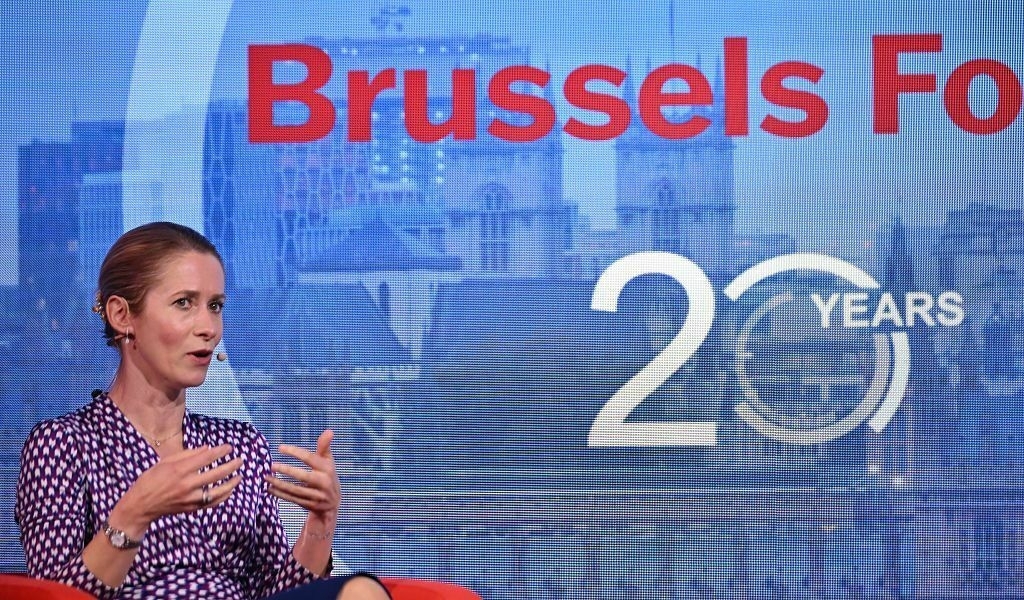
-
Ukraine war latest: Ukrainian forces 'gradually pushing back' Russian troops from Sumy Oblast, Zelensky says
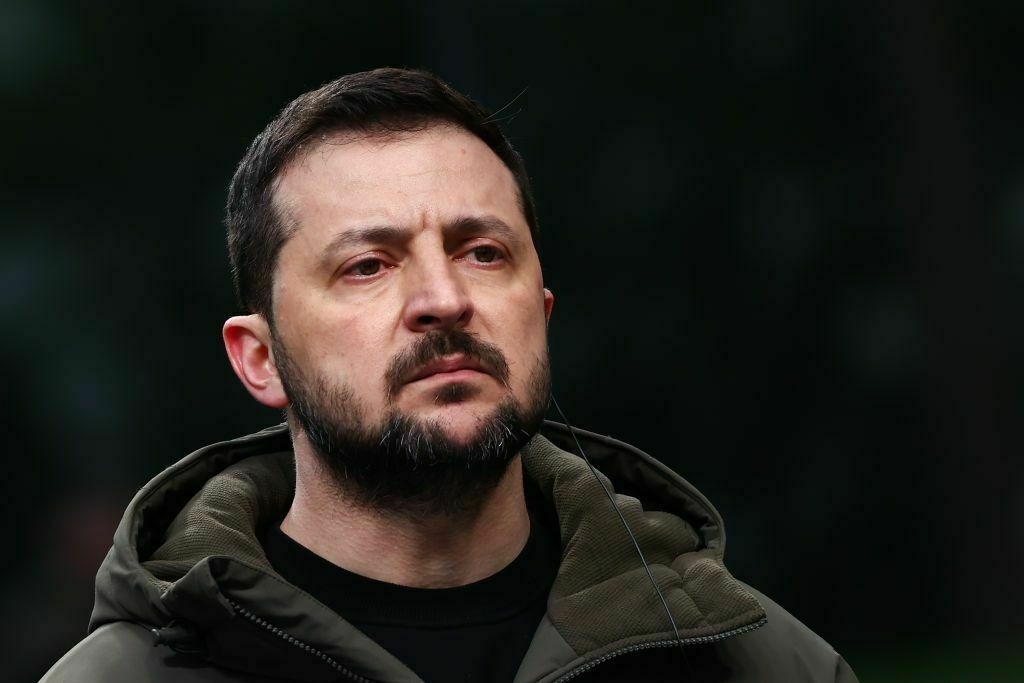
Key developments on June 12:
- Ukrainian forces ‘gradually pushing back’ Russian troops from Sumy Oblast, Zelensky says
- Germany to supply new Iris-T air defense systems to Ukraine, rules out Taurus missiles
- Ukraine, Russia carry out another exchange of POWs under Istanbul deal
- ‘Juicy target’ — Ukraine says it struck Russian electronics plant in Moscow Oblast
- For first time since invasion of Ukraine, US congratulates Russia on National Day
Ukrainian forces are gradually driving Russian troops back from parts of Sumy Oblast, President Volodymyr Zelensky said on June 12, amid escalating cross-border assaults in the region.
“Today, there was a report from Commander-in-Chief (Oleksandr) Syrskyi — the front and, above all, the Pokrovsk direction, the Kursk operation, the border area of Sumy Oblast,” Zelensky said in a video address.
“Our units in Sumy Oblast are gradually pushing back the occupiers. Thank you to each of our soldiers, sergeants, and officers for this result."
The statement follows weeks of intensified Russian offensives along the northeastern border. Russian troops have advanced into Sumy Oblast since Ukraine’s withdrawal from most of its positions in Russia’s Kursk Oblast in March.
Russia has reportedly taken control of about 200 square kilometers (80 square miles) in northern Sumy Oblast, including roughly a dozen small villages. As of May 31, mandatory evacuations were ordered for 213 settlements.
In May, Russian President Vladimir Putin ordered his military to create a so-called “security buffer zone” along the border with Ukraine, while Zelensky said on May 28 that Moscow had massed 50,000 troops near Sumy.
In a separate interview with Bild on June 12, Zelensky dismissed Moscow’s claims of significant territorial gains as “a Russian narrative” aimed at shaping global perceptions. He stressed that Ukrainian forces have managed to hold off a renewed offensive for nearly three weeks.
Sumy Oblast, which shares a long border with Russia, has been under near-constant attack since the start of the full-scale invasion in 2022.
On June 3, Russian strikes on the city of Sumy killed six people and injured 28 others, including children.
As Russian losses in Ukraine hit 1 million, Putin’s war economy heads toward breaking pointRussian losses in Ukraine hit a massive, and grim milestone on June 12 — 1 million Russian soldiers killed or wounded during the 39-month-long full-scale war, according to figures from Kyiv. Although hugely symbolic, the number is unlikely to prompt a change in tactics from Moscow as it gears up forThe Kyiv IndependentChris York
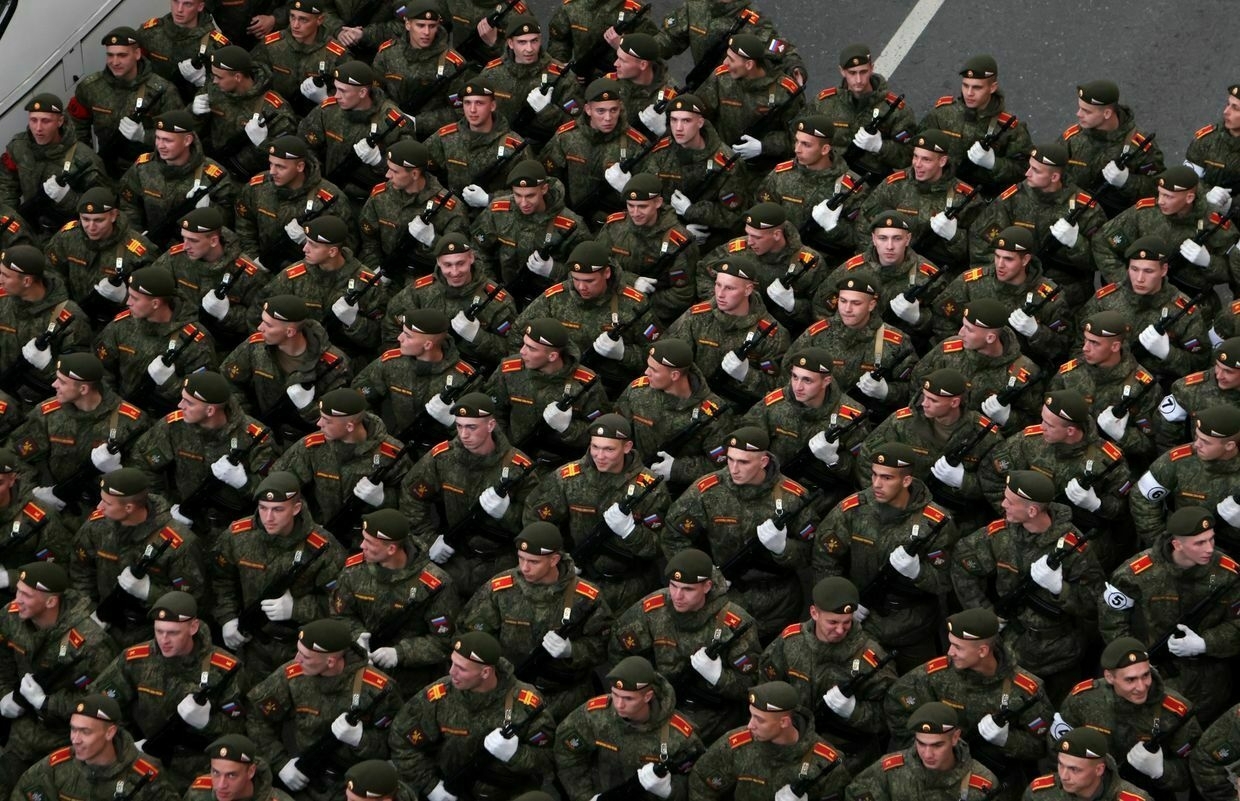
Germany to supply new Iris-T air defense systems to Ukraine, rules out Taurus missilesGermany will deliver new IRIS-T air defense systems to Ukraine under a three-year supply plan, President Volodymyr Zelensky said during a joint press conference with German Defense Minister Boris Pistorius, who added Berlin has no plans to provide Taurus long-range missiles.
The announcement comes amid escalating Russian aerial assaults, including a June 10 missile and drone strike on Kyiv, one of the largest since the start of the full-scale invasion.
“We are grateful for the supply of IRIS-T air defense systems,” Zelensky said on June 12. “We understand that deliveries are currently being planned… for the next three years. This is very important assistance."
The IRIS-T is a German-made medium-range surface-to-air missile system capable of intercepting drones, aircraft, and cruise missiles.
Since first being delivered to Ukraine in late 2022, the system has at been at the core of the country’s transition to Western-made high-end air defense systems.
Pistorius confirmed the delivery timeline but firmly ruled out the possibility of sending Taurus missiles — weapons Kyiv has repeatedly requested to strike deep into Russian territory.
“You asked me whether we are considering this, and my answer is no,” Pistorius said.
Before taking office, German Chancellor Friedrich Merz signaled openness to lifting former Chancellor Olaf Scholz’s ban on the missiles. That stance has not yet resulted in a policy shift.
Ukraine has already received long-range missiles — including ATACMS from the U.S. and Storm Shadow and SCALP from the U.K. and France. Initially restricted to use within Ukrainian territory, Western allies only began easing those limitations in late 2024.
Germany is Ukraine’s largest military donor in Europe. Zelensky said that Berlin will provide 7 billion euros ($8.1 billion) in aid this year, with investments in defense production being considered.
“Today, we discussed that this aid will continue,” he said. “We agreed on additional investments in production… both in Ukraine and in Germany."
Zelensky visited Berlin on May 28 for talks with Merz, part of an ongoing effort to bolster Ukraine’s defense industry amid uncertainty over U.S. support under President Donald Trump.
Why can’t the West match Russia’s ammunition production?The West is failing to catch up to Russia’s production of the most basic unit of war for the past half-millennium — gunpowder. The modern propellants and explosives that power war have largely been offshored. While Western manufacturers are churning out shell casings, they are short on the materials to fillThe Kyiv IndependentKollen Post
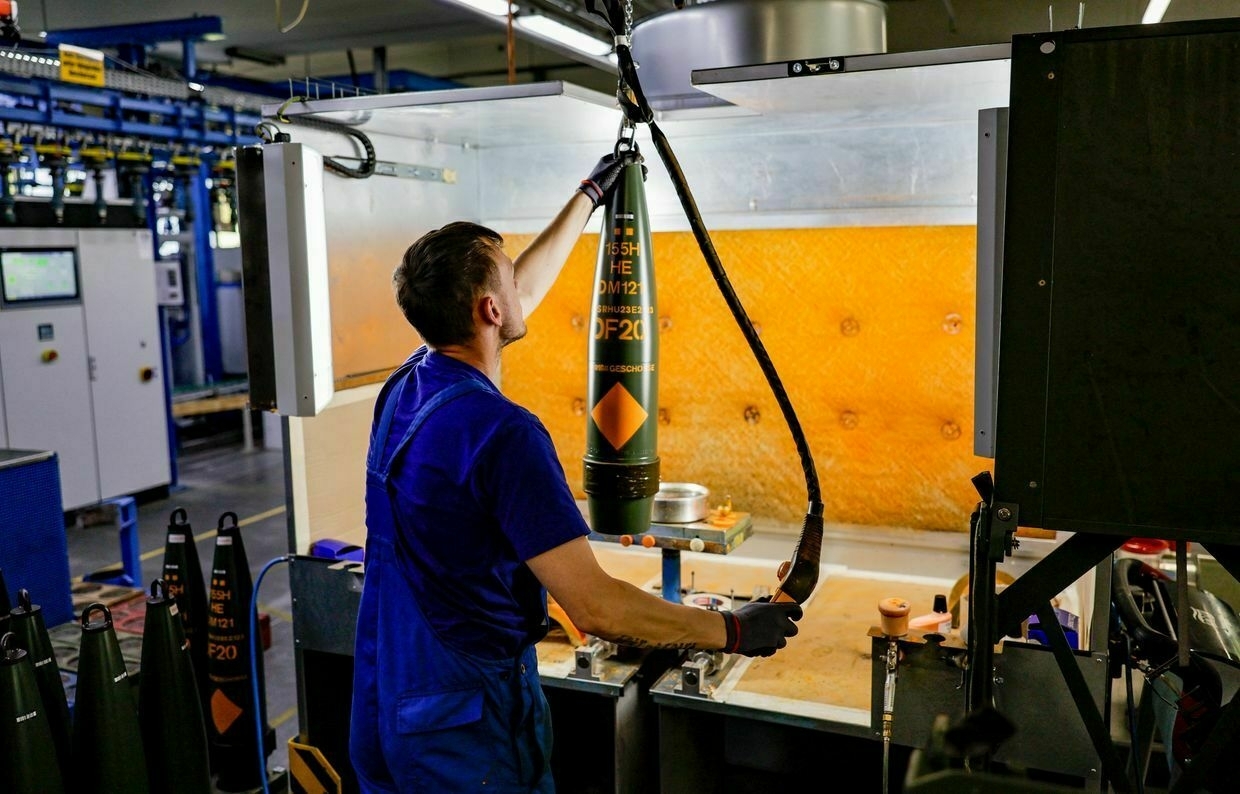
Ukraine, Russia carry out another exchange of POWs under Istanbul dealUkraine has brought home another group of service members from Russian captivity, President Volodymyr Zelensky announced on June 12, saying the latest exchange focused on “severely wounded and seriously ill warriors."
The prisoners of war (POWs) were released as part of a prisoner exchange with Russia agreed upon during recent peace talks in Istanbul, Ukraine’s Coordination Headquarters for the Treatment of the POWs said.
The June 12 release follows a similar exchange on June 10, which also prioritized severely injured and ill captives. As during the previous swap, the number of personnel released was not immediately disclosed.
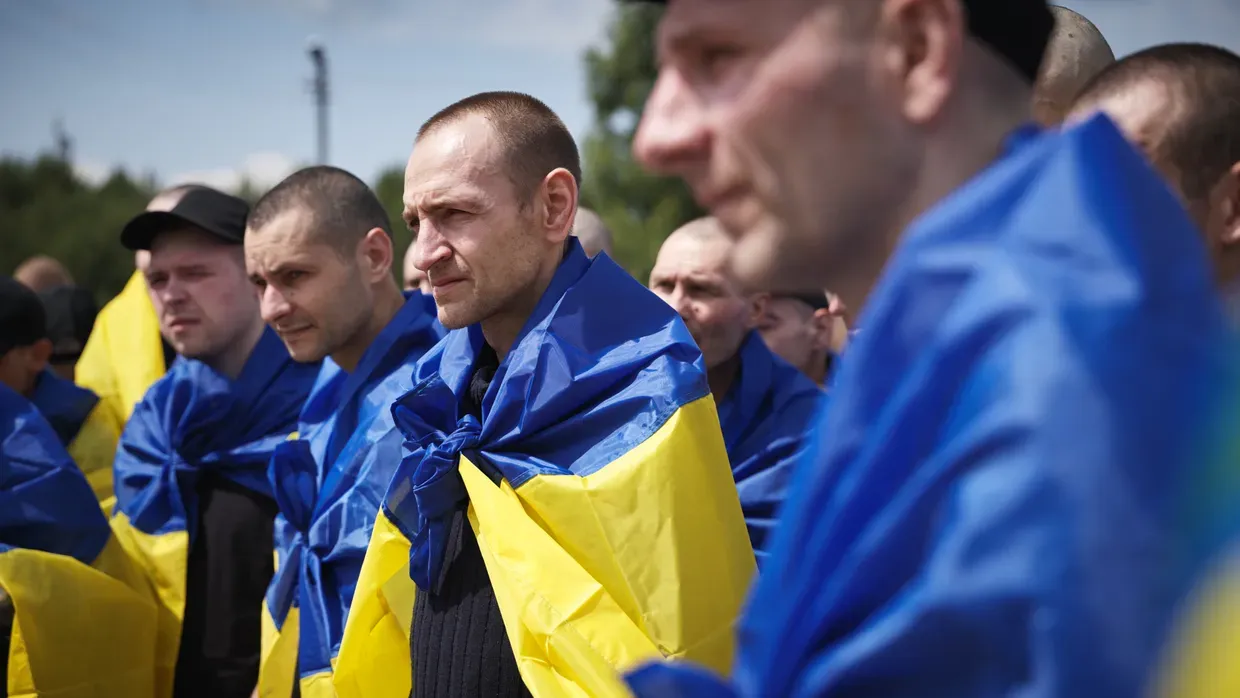
Ukrainian service members released from Russian captivity under a prisoner exchange on June 12, 2025. (President Volodymyr Zelensky/X) 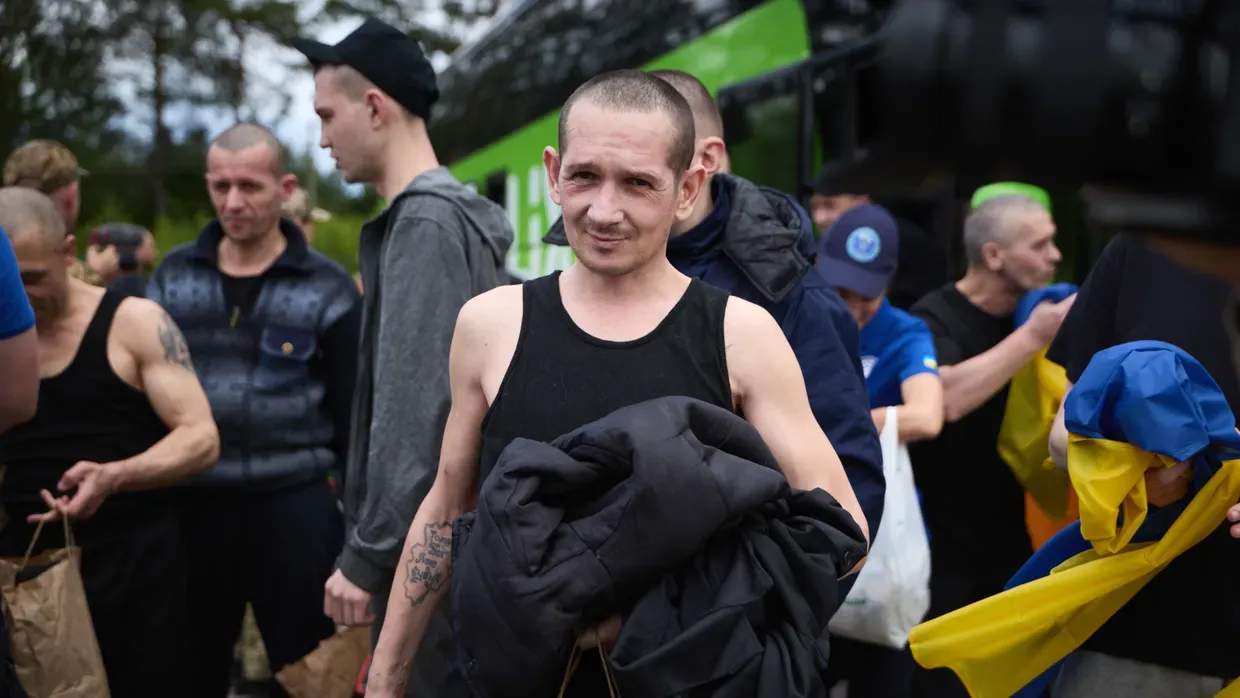
Ukrainian service members released from Russian captivity under a prisoner exchange on June 12, 2025. (President Volodymyr Zelensky/X) 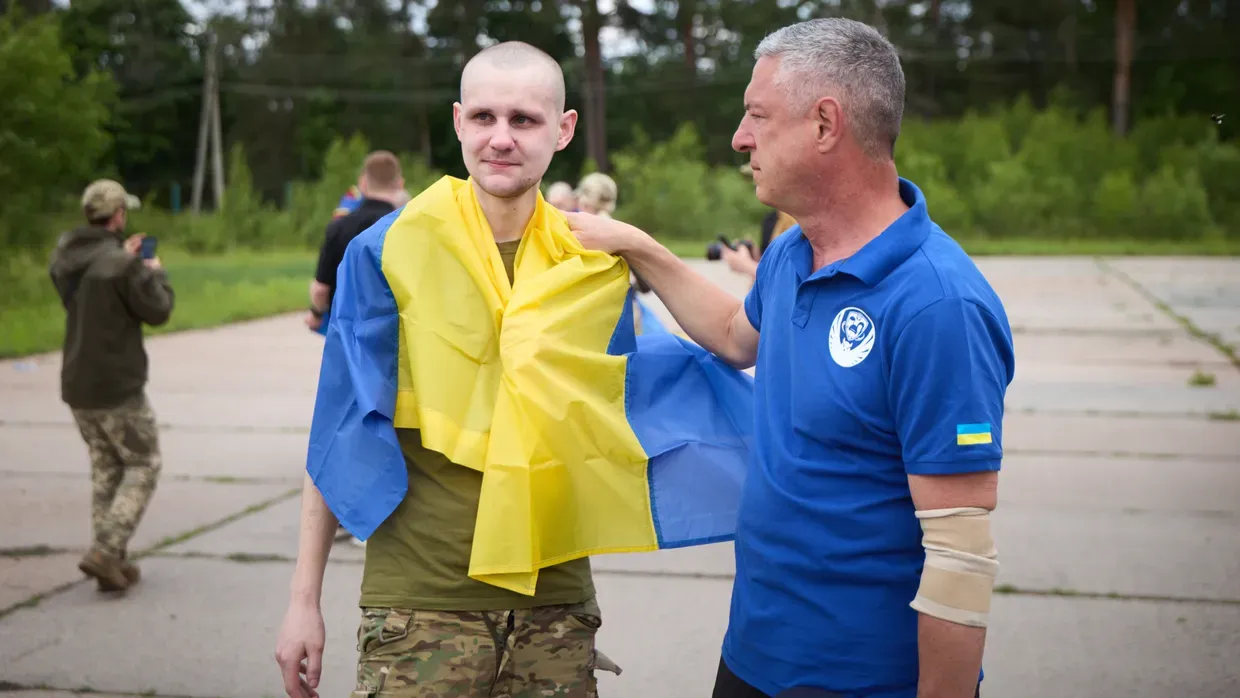
Ukrainian service members released from Russian captivity under a prisoner exchange on June 12, 2025. (President Volodymyr Zelensky/X) Russia’s Defense Ministry has also announced that its soldiers had been released from Ukrainian captivity as part of the swap, without disclosing their numbers.
Some of the POWs had been held by Russia for more than three years, according to the headquarters. Many of the released defenders had been classified as missing in action.
“This is part of a major exchange that continues in phases,” the headquarters said in a statement. “These soldiers require urgent medical care and will receive full assistance, including psychological rehabilitation and financial compensation for their time in captivity."
Soldiers from multiple Ukrainian military branches, including the Armed Forces, Air Assault Forces, Navy, Air Force, Territorial Defense Forces, National Guard, Border Guard Service, and the State Special Transport Service, were freed in the exchange. Many had served in combat operations across Donetsk, Luhansk, Kharkiv, Kherson, and Zaporizhzhia oblasts.
The Istanbul deal was reached during a second round of direct talks between the Ukrainian and Russian delegations on June 2. While no political breakthrough was achieved, both sides agreed to a phased exchange of prisoners and the repatriation of fallen soldiers’ remains.
As part of that agreement, Russia pledged to return the bodies of up to 6,000 Ukrainian service members.
Ukraine has brought back the bodies of 1,212 fallen service members on June 11. Vladimir Medinsky, aide to Russian President Vladimir Putin, claimed Ukraine released the remains of 27 Russian service members, while Kyiv did not confirm this.
The recent prisoner swap comes weeks after the largest such exchange of the war to date, which took place between May 23 and 25, with each side releasing 1,000 captives. Since Russia’s full-scale invasion began, more than 5,000 Ukrainian POWs have been returned home, according to official figures.
Ukraine continues to push for an “all-for-all” formula to bring every captured Ukrainian soldier back, but Moscow has so far rejected such a comprehensive agreement. Meanwhile, the Coordination Headquarters said preparations are underway for the next phase of exchanges in the coming weeks.
Ukraine, Russia conduct second prisoner swap under Istanbul deal“All of them require immediate medical attention,” President Volodymyr Zelensky said.The Kyiv IndependentTim Zadorozhnyy
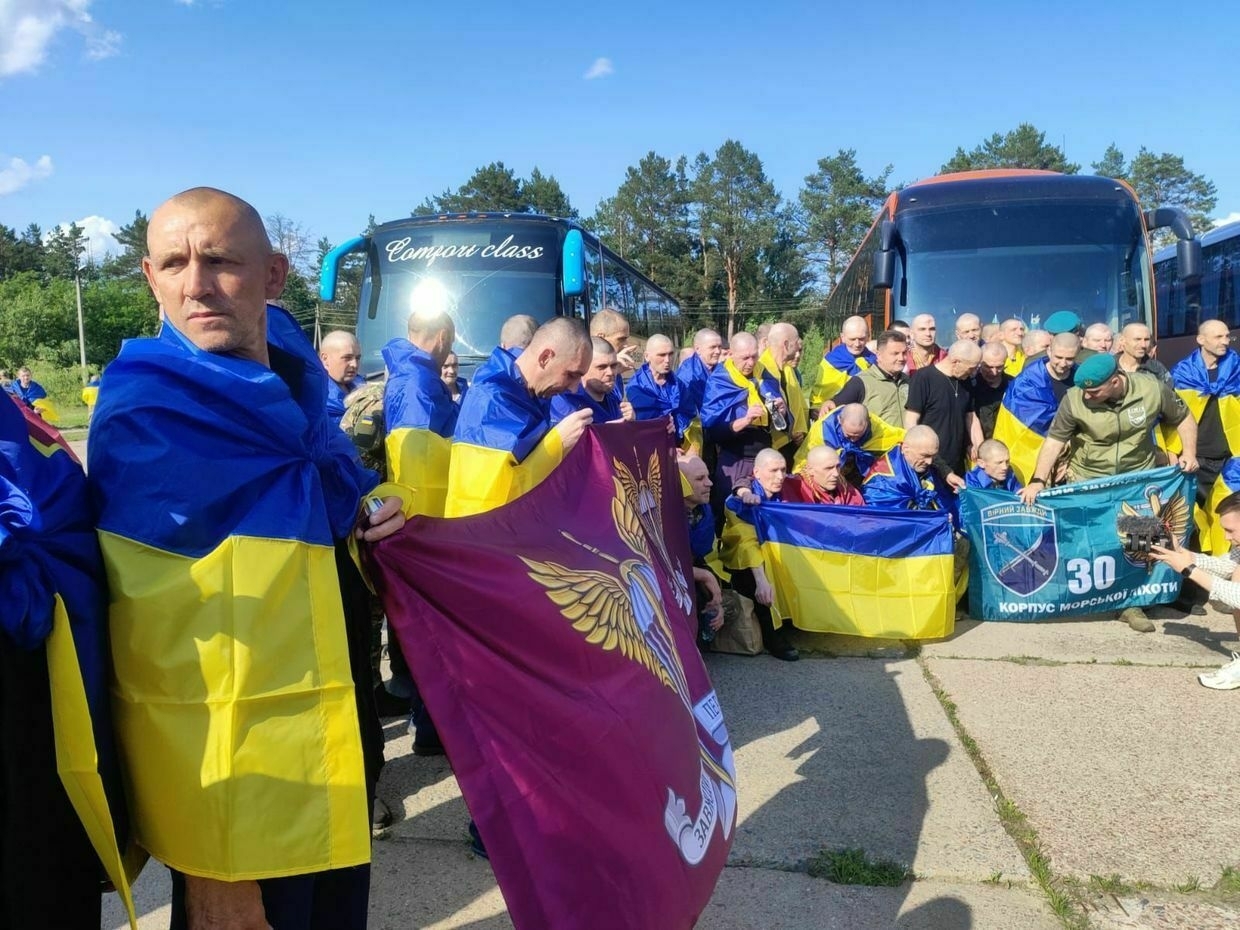
‘Juicy target’ — Ukraine says it struck Russian electronics plant in Moscow OblastUkraine’s Unmanned Systems Forces attacked the Rezonit Technopark in Russia’s Moscow Oblast overnight on June 12, with explosions reported at the facility, the Ukrainian military said.
The operation was designed to “reduce Russia’s ability to produce high-tech weapons and equipment,” as the facility assembles circuit boards and electronics for the Russian military-industrial complex, the General Staff of Ukraine’s Armed Forces said.
The consequences of the attack are being clarified, according to the statement.
“The Rezonit plant in the Zubovo technopark… is a juicy target, located roughly 40 kilometers (25 miles) from Moscow’s center,” Ukrainian National Security and Defense Council official Andrii Kovalenko said.
According to Kovalenko, the circuit boards manufactured at Rezonit are used for flight control and navigation in Iskander, Kalibr, and Kh-101 missiles, as well as Orlan and Lancet drones and other systems.
0:00/Alleged footage of an explosion in Zubovo, Moscow Oblast, Russia, during a Ukrainian attack overnight on June 12, 2025. (Supernova+/Telegram) Ukrainian Telegram channel Supernova+ published alleged footage of an explosion in Zubovo, with drones audible in the background. The strike tore a hole in the plant’s roof, the channel wrote.
Russia’s Defense Ministry claimed its forces shot down 52 Ukrainian drones overnight, including three over Moscow Oblast. Russian officials have not yet commented on a possible attack against the technopark.
Zubovo is located around 500 kilometers (300 miles) north of the Russia-Ukraine border.
Ukraine has repeatedly deployed long-range drones to target Russian military and industrial facilities deep in the rear, aiming to disrupt Moscow’s ability to wage its all-out war.
In one of the most daring operations, the Security Service of Ukraine (SBU) attacked four Russian air bases on June 1, allegedly hitting 41 Russian bombers and other aircraft.
‘They are not so successful’ — Zelensky rejects claims of major Russian advancesPresident Volodymyr Zelensky rejected claims of Russian advance as “a Russian narrative,” insisting that Ukraine’s forces have been holding off a renewed offensive for nearly three weeks.The Kyiv IndependentAnna Fratsyvir
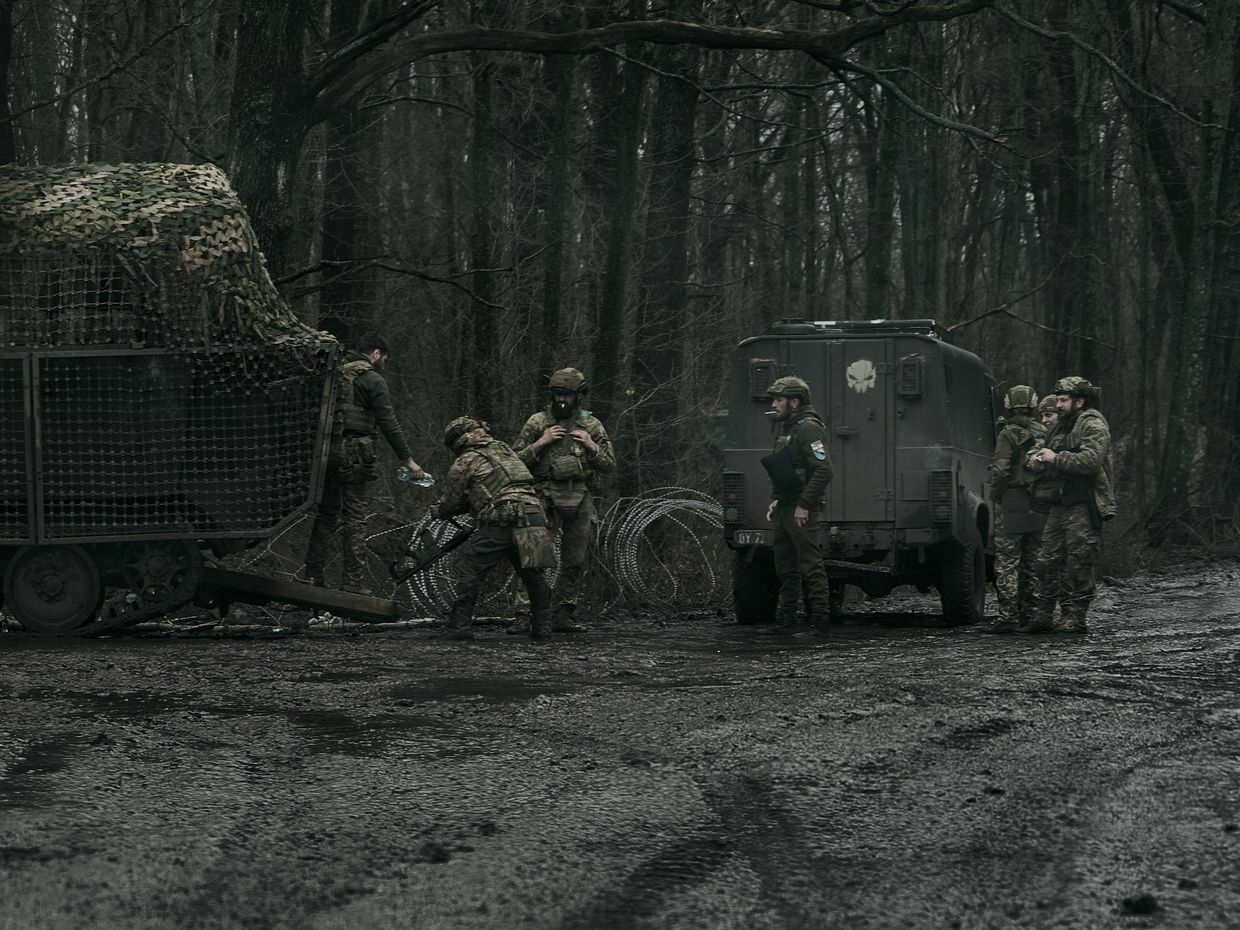
For first time since invasion of Ukraine, US congratulates Russia on National DayU.S. Secretary of State Marco Rubio congratulated the Russian people on June 12, Russia’s National Day, and expressed a desire for “constructive engagement” to bring peace to Ukraine.
“On behalf of the American people, I want to congratulate the Russian people on Russia Day,” Rubio said in a statement published on the State Department’s website.
“The United States remains committed to supporting the Russian people as they continue to build on their aspirations for a brighter future."
After taking office in January, the new U.S. administration took a sharp break from ex-President Joe Biden’s policy on Ukraine and Russia.
U.S. President Donald Trump’s team has sought to broker a peace deal between Kyiv and Moscow while being reluctant to commit additional funds or military aid to the besieged country.
“It is our hope that peace will foster more mutually beneficial relations between our countries,” Rubio said.
Washington has also signaled an intent to restore ties with Moscow, with both sides discussing venues for possible economic cooperation.
Ukrainian Foreign Minister Andrii Sybiha later said that he found it “unpleasant” to read the congratulations from “some countries” on Russia Day.
“As the minister of a country at war, I found it particularly unpleasant this morning to read the public congratulations from some countries to the Russian aggressor,” European Pravda quoted him as saying.
The minister also added that he “has the moral right to say this” and further noted that “there can be no reward for the aggressor country."
While the Biden administration imposed massive sanctions on Russia and sought to isolate Russian President Vladimir Putin on the international stage, Trump has often boasted about his close ties with the Russian leader and refused to impose additional economic restrictions.
Russia Day, also known as the Day of Adoption of the Declaration of State Sovereignty of the Russian Soviet Federative Socialist Republic, has been celebrated annually on June 12 since 1992.
The day commemorates the declaration of Russia’s state sovereignty from the Soviet Union, marking the start of a constitutional reform that eventually led to the breakdown of the USSR.
Note from the author:
Ukraine War Latest is put together by the Kyiv Independent news desk team, who keep you informed 24 hours a day, seven days a week. If you value our work and want to ensure we have the resources to continue, join the Kyiv Independent community.
-
‘I feel like I lost 3 years’ — Ukrainian author turned soldier Artem Chapeye on culture during war
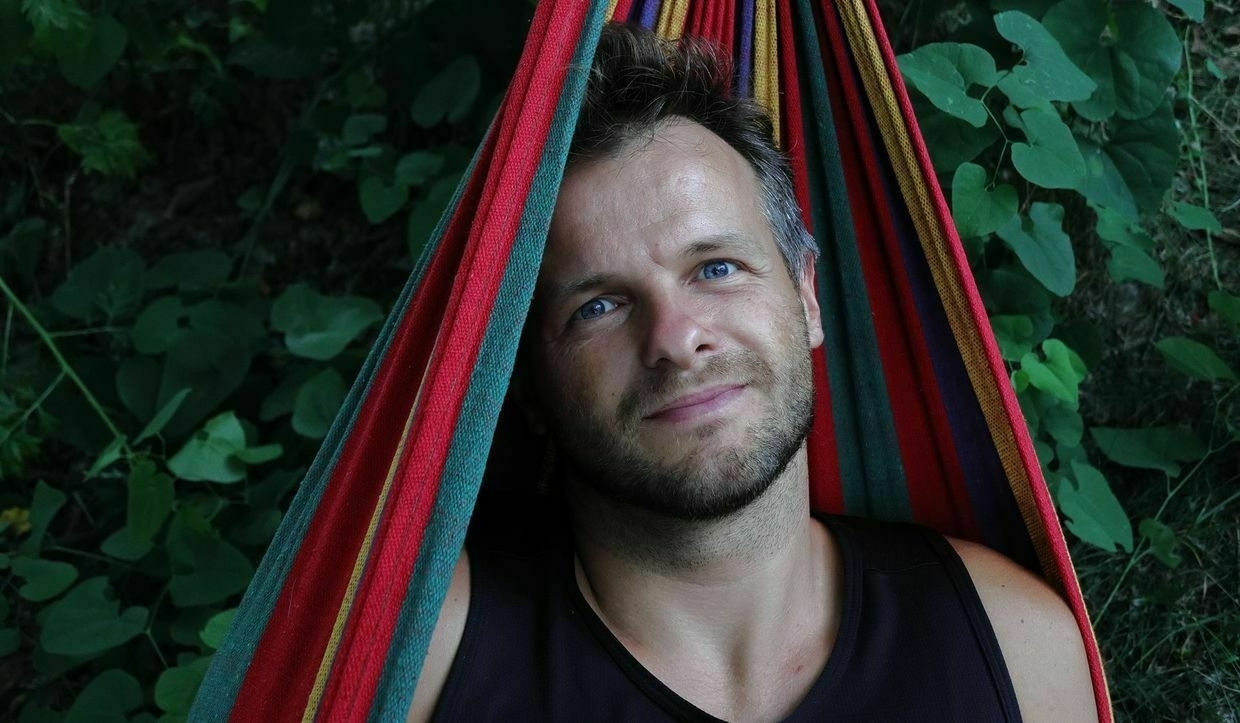
Since Russia launched its full-scale invasion of Ukraine in 2022, Ukrainian writers have found themselves grappling with questions not just of survival, but of voice, purpose, and audience.
Can one write fiction in the midst of war? Can creativity endure under air raid sirens and military mobilization? And what does it mean to speak to the world — especially when much of that world is only willing to listen to Ukrainians when the subject is war?
Artem Chapeye, a Ukrainian writer turned soldier, is among those navigating these questions firsthand. Known for his sharp nonfiction and fiction rooted in realism, Chapeye’s literary journey has shifted dramatically in recent years — from an early inability to read anything at all in 2022 to rediscovering language through science fiction and a growing urgency to write again.
In this conversation with the Kyiv Independent during the international Book Arsenal Festival, Ukraine’s largest literary event, Chapeye reflects on the creative cost of war, his fears that the world will only associate Ukraine with war, and the surprising role artificial intelligence might play in leveling the literary playing field for authors working in “small” languages.
This interview has been edited for length and clarity.
The Kyiv Independent: Military service can be both physically and mentally exhausting — do you still find time to read or write for pleasure?
Artem Chapeye: I’d say that during the first year, in 2022, I couldn’t even bring myself to read. So I focused on more mechanical mental activities — like learning languages on Duolingo. I ended up learning two. It was a way to keep my mind occupied and avoid getting caught up in ruminations. Eventually, I started reading again, but I don’t think I began writing until the end of 2024. So yes, I do feel — and still feel — that I lost about three years. Now there’s this strong sense of urgency to get back to writing, to pick up where I left off.
The Kyiv Independent: What do you feel compelled to write about? There’s been a lot of discussion in Ukrainian literary circles — many fiction writers are finding it difficult to write fiction right now and are turning to nonfiction or poetry instead. Understandably, the war has become the central theme.
Artem Chapeye: Sometimes I worry we won’t be able to write anything unrelated to the war — or at least, that anything not about the war won’t interest the world. It feels like a niche we’ve been forced into. In my case, I began with very short nonfiction pieces — reflections and contemplations on what was happening around me.
This resulted in my latest book, called “Ordinary People Don’t Carry Machine Guns” in English. It’s also been published in French and, of course, in Ukrainian.
People are often focused on their own stories and don’t always want to be shown how they look from someone else’s perspective.
Now I’m trying to return to fiction, but the hardest part has been finding the right voice — the right tone. I realized that writing in a realistic style no longer feels possible for me. My previous book, “The Ukraine,” was what I called pure, photographic realism. But with this material, that approach doesn’t work.
When I started reading again in 2023, after a year in the army, I turned to fantasy and science fiction — genres with very different voices. I read “The Lord of the Rings,” and a lot of Philip K. Dick. Eventually, I came to understand that I already knew what I wanted to write — I had just been searching for the right voice for three years.
Now, I think it’s finally coming together. I hope to finish my first fiction book (since the start of the full-scale war) by the end of 2025. But it will have to be short, because there’s still that ever-present sense of urgency — that feeling that at any moment, everything could be interrupted.
The Kyiv Independent: When it comes to writing about the war, do you find it challenging to describe that experience? In some sense, the war affects everyone in Ukraine, but not everyone has firsthand experience of being targeted almost daily in a front-line city or sitting in a trench. Foreigners are even more removed from our wartime reality. Did you struggle with any kind of cognitive dissonance because of that while writing?
Artem Chapeye: I think it’s important to portray different aspects of war. It matters to understand the war from the perspective of a refugee, or a woman with children, for example. I’m fully aware that my own experience is limited.
After three years, you realize that your perspective is confined to the work you've been doing. I’ve never been in the trenches myself — my role has focused on working with prisoners of war. That, too, is a unique experience, and it deserves to be explored.
The real challenge is turning your limited, personal experience — and the experiences of those around you — into something universal. Something that resonates not only with Ukrainians, but with a global audience. That’s what I’m trying to do.

Ukrainian writer and soldier Artem Chapeye attends the 13th International Book Arsenal Festival in Kyiv, Ukraine, on May 30, 2025. (Nastya Telikova / Global Images Ukraine via Getty Images) In fact, the new book I’m working on won’t mention Ukraine or Russia even once. For Ukrainians, it will be obvious what it’s about — but my goal is to create something universal, beyond national borders. Because I worry, as I mentioned earlier, that we’re being boxed into a single narrative.
I’ve already seen this dynamic at work: when I write about the war in Ukraine, American media is interested. But when I once tried to comment on what (U.S. President Donald) Trump means to us — how he's perceived from the outside — no one paid attention. I get it. People are often focused on their own stories and don’t always want to be shown how they look from someone else’s perspective.
The Kyiv Independent: Is there a particular type of literature or style of writing from Ukrainian authors that you’d love to see foreign publishers focus on? For example, later today during the Book Arsenal Festival, we’ll be speaking with Irena Karpa — her work is not directly related to the war. It’s vibrant, playful, and explores the experience of womanhood in Ukraine. That should be especially interesting for international audiences who often discuss feminism, as her approach is quite different from what they’re used to.
Artem Chapeye: Honestly, I’ve stopped believing strictly in genres altogether. I was really happy when Kazuo Ishiguro won the Nobel Prize — I loved his work long before that, and I’ve always been a fan of science fiction. I grew up with it.
It doesn’t really matter what the genre is — what truly matters is the quality of the work itself.
Now, science fiction can be recognized as serious literature, which I think is fantastic. The same goes for literature coming out of Ukraine. It can be science fiction, or vibrant and playful like Irena Karpa’s writing, or something melancholic, or even dark comedy.
It doesn’t really matter what the genre is — what truly matters is the quality of the work itself.
The Kyiv Independent: There are so many opportunities to publish both classic and contemporary Ukrainian literature. What do you think it will take for international readers to become more interested in Ukrainian literature that isn’t focused solely on the war?
Artem Chapeye: The main problem is that there are not enough translators. More are emerging, yes — but it’s still hard to tell who is truly skilled. When I tried reaching out to one translator, she told me she was fully booked for the next two or three years. So clearly, the pool is very limited. And Ukrainian isn’t an easy language to master.
This points to a bigger issue: most of what we call “world literature” still comes from former imperial languages. The British Empire left behind a global English-speaking legacy. That’s why a novel like “Half of a Yellow Sun” (by Chimamanda Ngozi Adichie) — which tells the story of the Igbo struggle in Nigeria — is written in English and widely read.
The same goes for Russian literature. It’s well known partly because there have been so many translators working on it for a very long time. But this challenge isn’t unique to Ukraine. It affects any writer working in a language that isn’t one of the four or five dominant global languages.
Author Yuri Andrukhovych on Ukrainian dissident art in Soviet timesIn Soviet times, being a pro-Ukrainian artist was dangerous. The Soviet secret police were particularly brutal in Ukraine, given that it was a country with a long history of resistance to Russian rule. Still, new generations of artists remained committed to their culture in the face of widespread Russification. AmongThe Kyiv IndependentKate Tsurkan
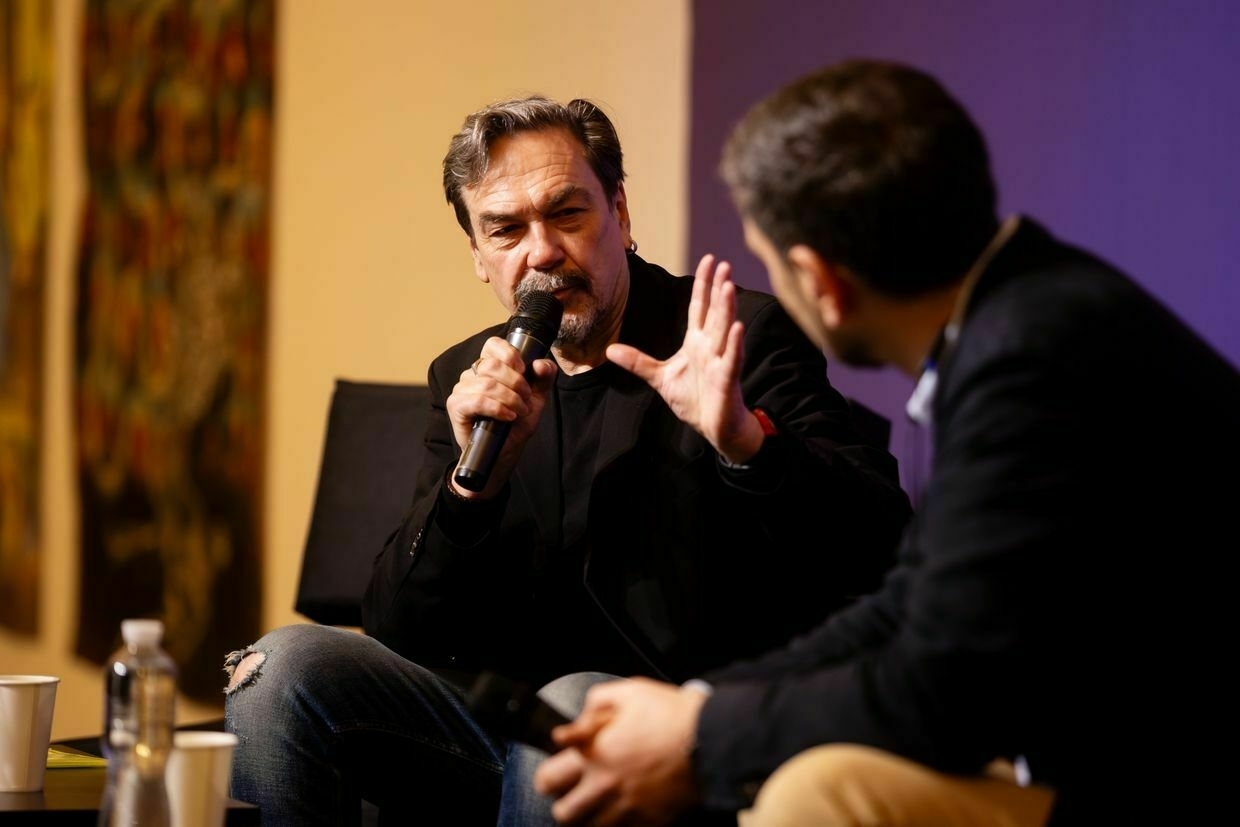
So yes, the lack of translators is a major barrier. I was recently talking to the philosopher Volodymyr Yermolenko, and we both had the same thought: maybe, just maybe, artificial intelligence could become a kind of equalizer for writers from countries like Ukraine, Poland, the Czech Republic — or even from places like Bangladesh or Papua.
If AI can speed up the process of translation — allowing human translators to focus more on refining rather than starting from scratch — it might actually level the playing field. Because right now, if you go to a place like France, yes, they do publish translated literature — but 90% of it is translated from English.
The Kyiv Independent: But do you really think that AI can capture the subtleties of the Ukrainian language, especially the humor?
Artem Chapeye: No, not at the moment. But then again, many human translators can’t either. I wrote a novel I really love called “Strange People” that’s written in a mix of Ukrainian and Russian — a dialect known as “Surzhyk.” It would be difficult to translate, to say the least.
Think about it this way: when Faulkner writes in a Southern dialect, it still gets translated. That’s possible because many people — myself included — can read Faulkner in the original and understand those nuances. But there are very few people who can truly grasp the subtleties of Ukrainian in its original form.
Now, if AI could at least handle the bulk of the translation — the structure, the plot — that might reduce the human translator’s workload to just two or three months, instead of years.
Right now, that’s still (in the realm of) science fiction. It’s not possible yet. But I believe that maybe, just maybe, in another generation, the language of a book, a movie, or even a video game might not matter so much anymore.
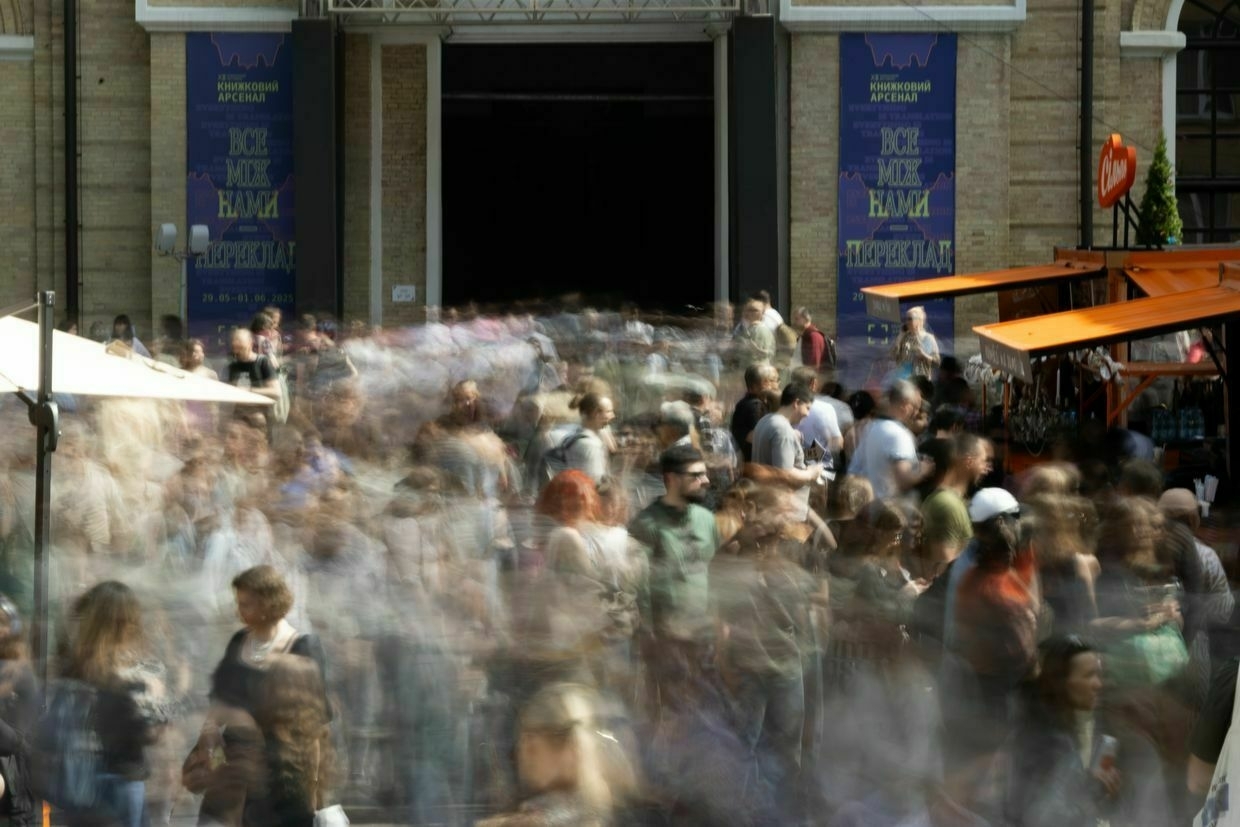
People attend the 13th International Book Arsenal Festival in Kyiv, Ukraine, on May 31, 2025. (Yevhenii Zavhorodnii / Global Images Ukraine via Getty Images) The Kyiv Independent: It’s really interesting to hear your perspective, especially since many creative people tend to be quite dismissive and pessimistic about AI.
Artem Chapeye: Actually, for legal reasons, I joined the Society of Authors in the U.K., and they’ve had some intense debates about AI. There was even a push to get everyone to sign a petition to ban AI outright. But I kept wondering — how can you really do that?
I was always on the mailing list, quietly hoping to offer a different perspective. Because I truly believe that, one day, it won’t matter whether you’re writing in Ukrainian or English. What should matter is the story itself — its relevance to humanity as a whole.
Right now, I often feel I know more about life in Milwaukee than in, say, (Ukraine’s) Khmelnytskyi Oblast — even though I live in Ukraine. I can envision a city like St. Jude because I’ve read (Johnathan) Franzen. I can picture life in the American Midwest, but I couldn’t say the same for a village in Ukraine — unless I actually go there myself.
Note from the author:
Hey there, it's Kate Tsurkan, thanks for reading my latest article. It was a great pleasure for me to reunite and speak with Artem Chapeye, one of those Ukrainian writers I've known for years. One of the few bright moments in the dark days of the start of the full-scale war was congratulating him on being the first Ukrainian author to get published in the print edition of the New Yorker. If you haven't heard of him before this interview, I hope it made you interested in learning about more of his work. If you like reading this sort of material, please consider supporting us by becoming a paid member of the Kyiv Independent today.
-
US Ambassador to Russia Tracy leaving post, embassy says
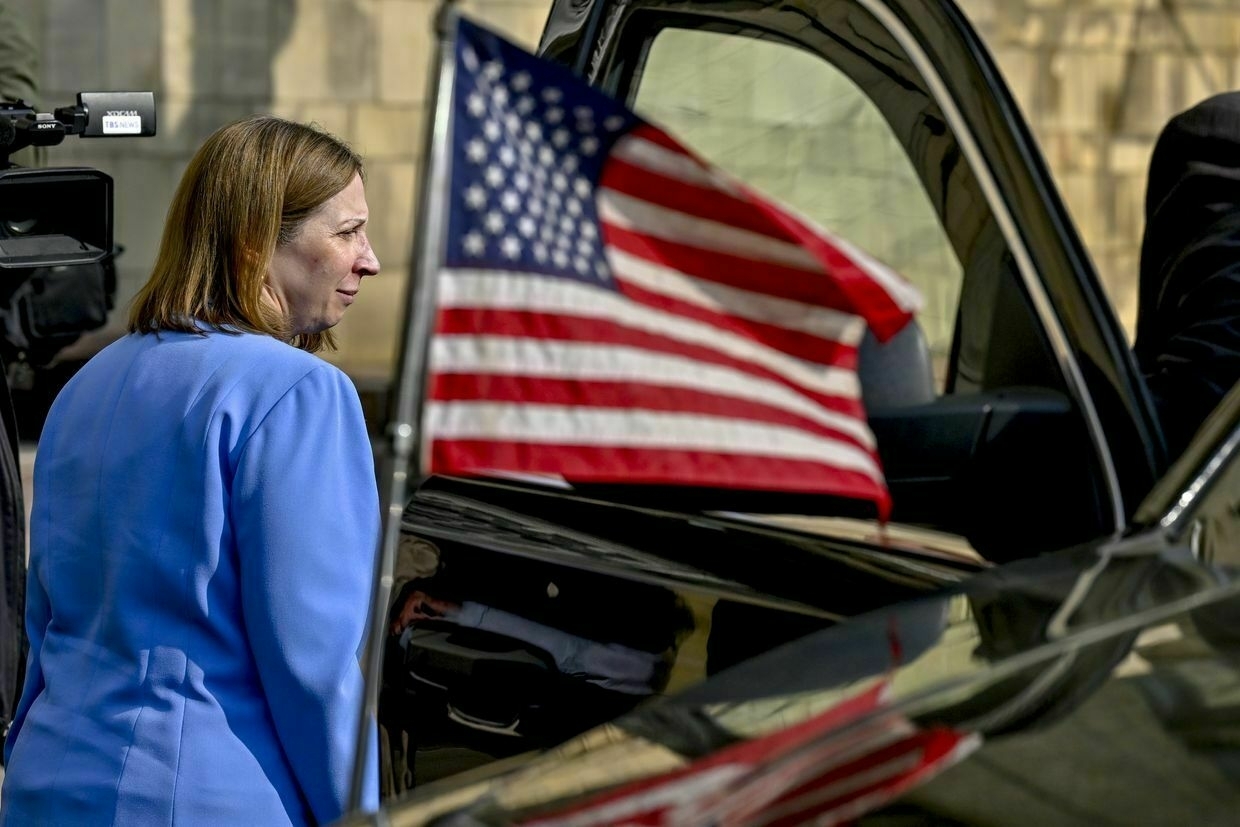
U.S. Ambassador to Moscow Lynne Tracy will soon be stepping down from her post, the U.S. Embassy in Russia announced on June 12.
The statement said that Tracy is “concluding her mission at the U.S. Embassy in Russia,” without providing further details.
The move comes as U.S. President Donald Trump makes a decisive break from the previous Biden administration’s Russia policy, aiming to restore relations and negotiate a peace deal in Ukraine.
Tracy replaced John Sullivan at the key diplomatic post in Moscow in January 2023, after being nominated by former President Joe Biden.
A seasoned diplomat, Tracy previously served as the U.S. ambassador to Armenia and held posts at diplomatic missions in Russia, Turkmenistan, Pakistan, Kazakhstan, Afghanistan, and Kyrgyzstan.
The embassy announced a live stream on June 13 to “bid farewell” to the outgoing envoy.
Tracy led the U.S. mission in Russia in one of the lowest points of the U.S.-Russian relationship in decades, as Washington imposed massive sanctions on Moscow and backed Ukraine against Russian aggression.
Though diplomatic contacts during this period were limited, Tracy played a key role in negotiating the release of U.S. citizens held in Russia, such as Wall Street Journal reporter Evan Gershkovich.
The ambassador is concluding her mission after around two years, a similar time period to her predecessor. It is not immediately clear who will replace her.
In April, Bridget Brink, the U.S. ambassador to Ukraine, unexpectedly resigned, later explaining the move by opposition to Trump’s foreign policy.
Russia also appointed its new envoy to the U.S., Alexander Darchiev, earlier this year amid a thaw in U.S.-Russian ties under Trump.
America’s weak strongmanOver the past two months, financial investors have hit upon a new trading strategy, based on a simple rule: TACO — Trump Always Chickens Out. America’s president threatens to slap massive import tariffs on friends and foes alike, or to remove the Federal Reserve chair, only to back down whenThe Kyiv IndependentTimothy Snyder
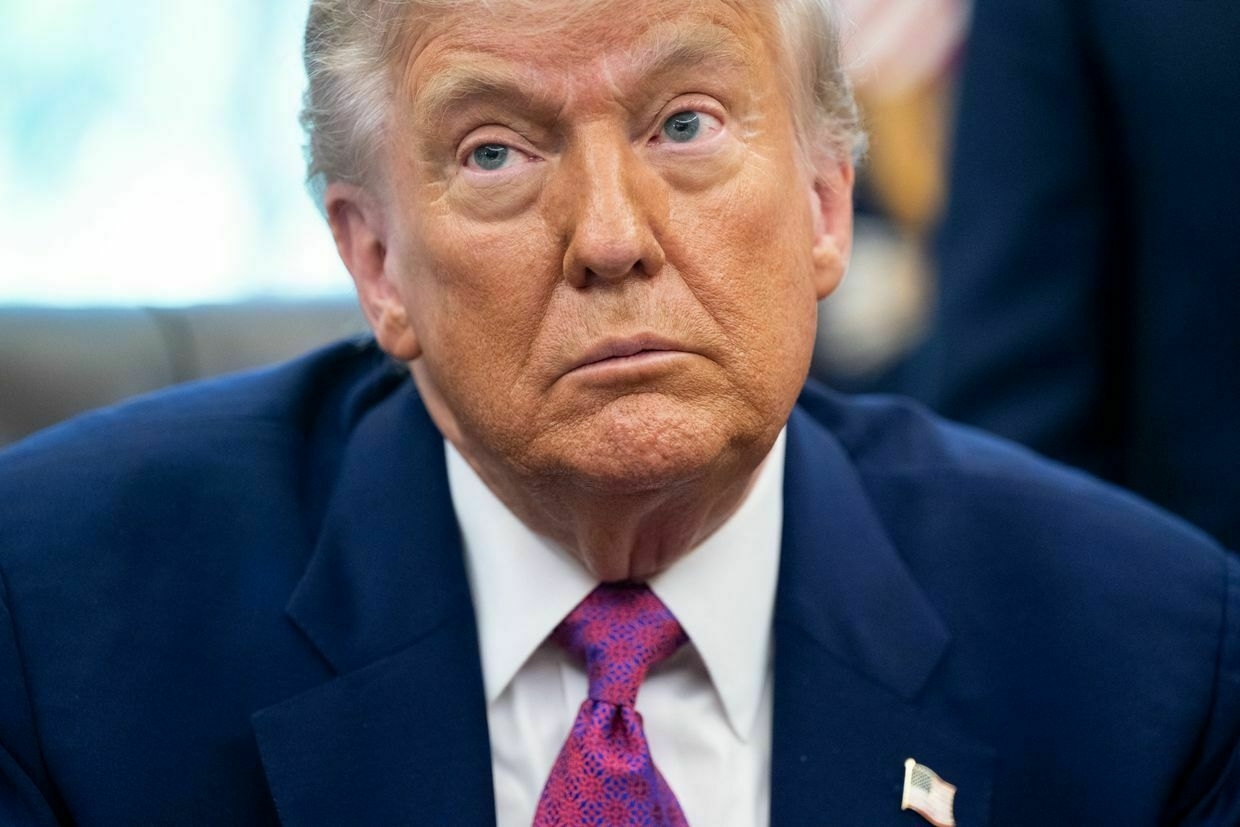
-
As Russian losses in Ukraine hit 1 million, Putin faces an economic time bomb
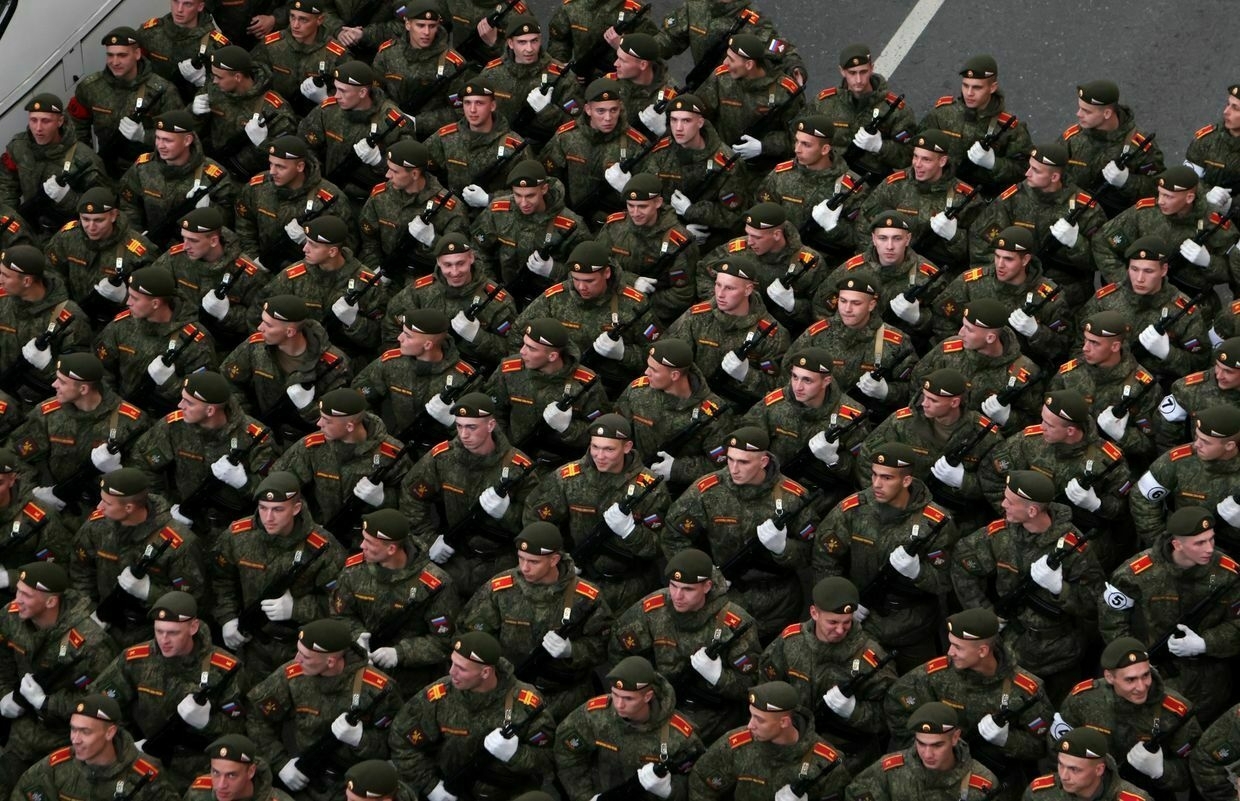
Russian losses in Ukraine hit a massive, and grim milestone on June 12 — 1 million Russian soldiers killed or wounded during the 39-month-long full-scale war, according to figures from Kyiv.
Although hugely symbolic, the number is unlikely to prompt a change in tactics from Moscow as it gears up for more offensives this summer, and escalates drone and missile attacks on Ukrainian civilians.
But behind the figure lies an economic time bomb that the Kremlin will find impossible to ignore.
"(Russian President) Vladimir Putin made a fundamental strategic mistake in deciding how to resource this war," George Barros, Russia team lead at the Institute for the Study of War (ISW), told the Kyiv Independent.
“What Vladimir Putin has done is he has created a system in which he doesn’t use the monopoly of violence of the Russian state to coerce Russians to go fight and die in Ukraine, as the Soviet Union might have. What Putin has done is he’s created an alternative social contract where he pays you to go fight in Ukraine.
“That strategy can work if you’re planning on running a short war. It does not work if you are running a multi-year protracted war."
Russia’s two armiesRussia effectively has two armies — a conscript army, and a contract army.
Russia’s conscript army is the country’s standing armed forces that are required to defend Russia itself.
To maintain this force, the Kremlin conducts conscription twice a year, in spring and fall, requiring eligible men to serve for one year.
In the latest draft, Putin signed a decree on March 31 ordering the spring conscription of 160,000 men.
But crucially, conscripts by law are not allowed to be sent abroad to fight wars in foreign countries, something which is not only a legal contract, but a social contract that is deeply embedded in Russian society — civil society groups consisting of the mothers of conscripts are perhaps the only group of Russian citizens that Putin is still forced to respect and listen to.
This is where Russia’s contract army comes in.
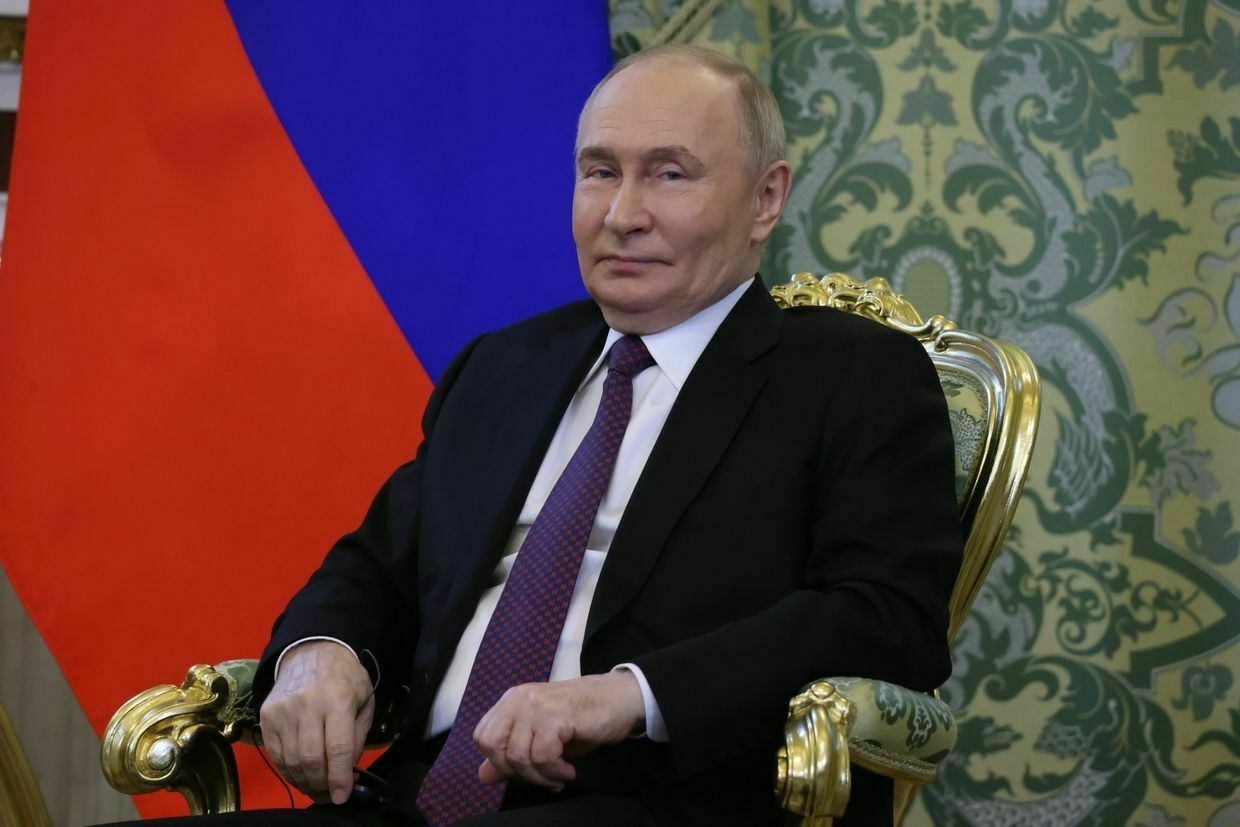
Russian President Vladimir Putin in Moscow, Russia, on May 28, 2025. (Contributor / Getty Images) “When the full-scale invasion started, the Russians attacked Ukraine with what they call the contract servicemen, the professional military who have some experience, and (voluntarily) sign contracts for a fixed period of time,” Kateryna Stepanenko, Russia deputy team lead and analyst at the Institute for the Study of War (ISW), told the Kyiv Independent.
But Russia soon ran into a problem — the Armed Forces of Ukraine.
The Kremlin had envisioned a swift and easy victory over Ukraine, and the capture of Kyiv within a matter of days. This proved to be a disastrous miscalculation and instead, many of Russia’s most elite troops and modern equipment were obliterated by Ukrainian resistance.
As the war dragged on, and Russia’s losses mounted, Moscow needed to replenish its forces without drawing upon its conscript army and announcing a full mobilization to avoid unrest.
A partial mobilization announced in September 2022 led to the only widespread protests against the war inside Russia during the entire full-scale invasion, making clear to Putin that announcing anything more would cause him serious problems.
“The Russians realized that they were in a challenging political situation,” Stepanenko said.
The solution? Pay people to fight.
“It is the only way of recruitment for the war now because ideologically motivated recruits ended in spring-summer 2022 and partial mobilization of the fall 2022 created domestic political tensions and risks which were considered as unacceptable for the Kremlin in those circumstances,” Pavel Luzin, senior fellow with the Democratic Resilience Program at the Center for European Policy Analysis (CEPA), told the Kyiv Independent.
The contract soldier’s priceRussia’s mounting losses throughout the war created a double-edged problem — more and more replacements were needed, but attracting them to what was clearly such a high-risk endeavour necessitated increasing rewards.
The solution? Keep offering more and more money.
Sign up bonuses for joining the Russian army have ballooned over the course of the war. In July 2024, Putin ordered a doubling of the lump-sum payment offered to recruits in September 2022 to 400,000 rubles (over $5,000).
But this was just the base level payment — the Kremlin has placed recruitment quotas on Russian oblasts, meaning some have had to offer many times more than this in order to reach them.
“There are some oblasts in central Russia that are offering up to $40,000, 3 million rubles plus, just for a one-time sign-up bonus,” Barros said.
For context, the average Russian monthly wage in 2024 was $980, so a one-time sign up bonus of $40,000 is nearly four times higher than what the average worker can expect to make in a whole year.
But with such huge losses in Ukraine, the bill for the Kremlin is huge.
“They lose and recruit somewhere in the ballpark of 35,000 to 45,000 people per month, and perhaps they recruit a little bit north of that number,” Barros said.
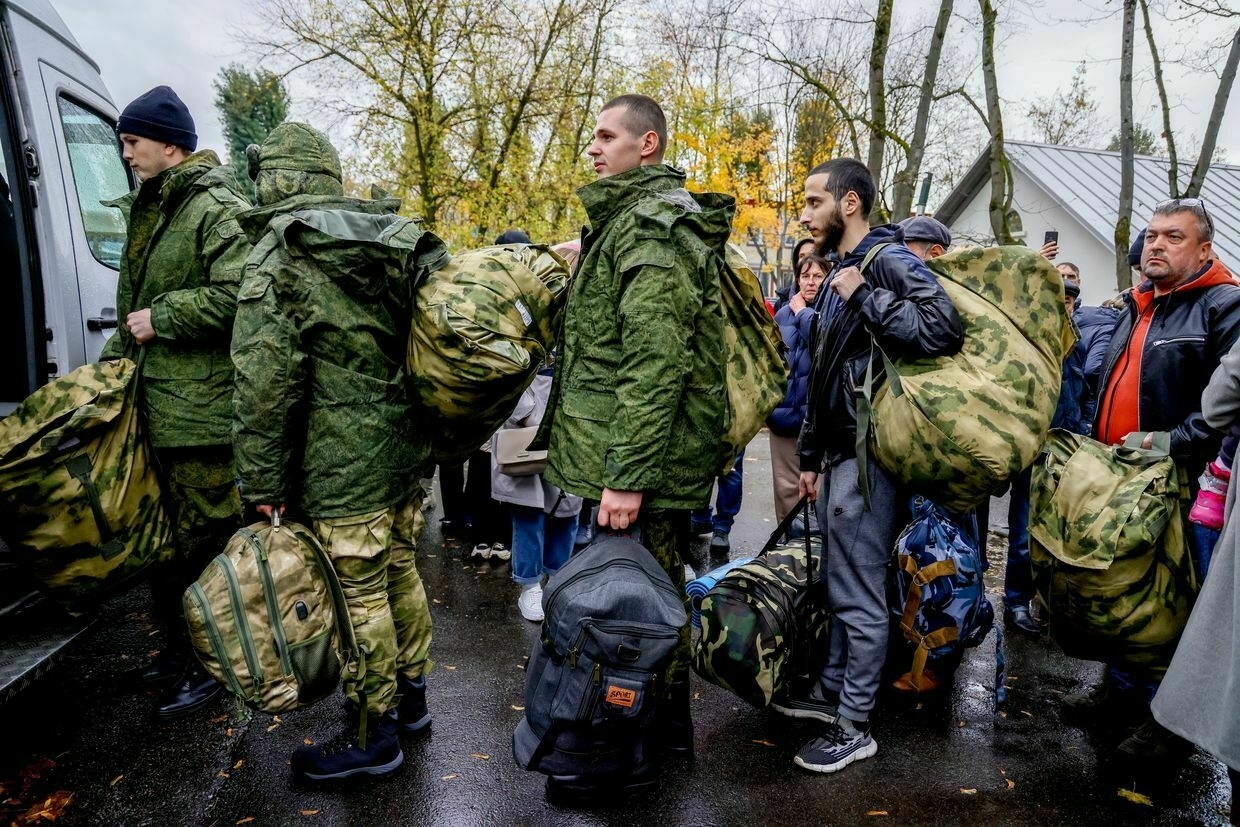
More than 200,000 people have reported for service under partial mobilization in Moscow, Russia, on Oct. 4, 2022. (Sefa Karacan / Anadolu Agency via Getty Images) 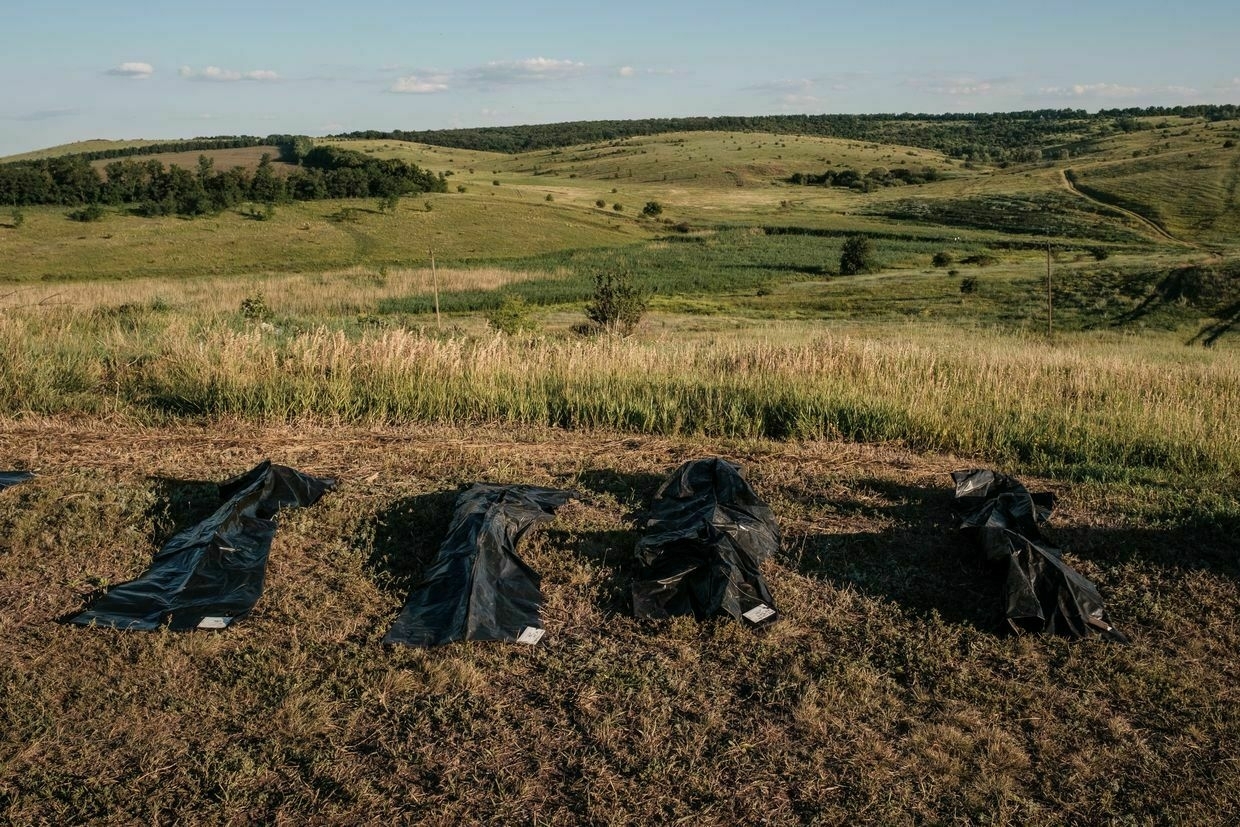
Remains of Russian soldiers found in the Bakhmut battle zone, in Sloviansk, Donetsk Oblast, Ukraine, on June 29, 2024. (Pablo Miranzo / Anadolu via Getty Images) “At $40,000 a head just for the sign-up bonus, let alone salaries and other benefits and remittances if you’re killed or wounded, this is a very fast way to not be sustainable."
According to an analysis by economist Janis Kluge, Russia’s daily bill just for sign-up bonuses is $24 million.
The ballooning bills come at a time when Russia’s economy is already under huge strain from Western sanctions and falling oil and gas revenues.
“The implications for Russia are grave,” energy security analyst Wojciech Jakóbik wrote in an op-ed for the Kyiv Independent this week.
“Military spending has ballooned to 6.3% of GDP — its highest level since the Cold War — while the budget deficit continues to rise,” he added.
“To fund its war, the Kremlin is raiding reserves, raising taxes, and cutting social programs. Absent war spending, Russia might already be in recession."
Could Russia’s economy collapse?Predictions about the imminent collapse of Russia’s economy have been made throughout its full-scale invasion of Ukraine, yet so far it hasn’t crashed and burned as some expected.
But three years of sanctions are eroding the country’s fiscal stability, despite Moscow claiming otherwise.
Russian GDP growth has dropped precipitously this year as sanctions hamper its main sources of income — oil and gas revenue — and curb imports of components needed for its military-industrial complex.
According to Barros, making any predictions about whether or not the Russian economy is going to collapse is “supremely difficult to do,” but the signs for the Kremlin “don’t bode well."
“If you look at the current Russian economic indicators, for example their inflation rate, their overnight lending interest rates, Russian monetary constraints… government spending is out of control — it’s a very loose fiscal policy and so the economy is at risk of overheating,” he said.
“I don’t know to what extent the economy can continue to last."
Barros said one major thing to keep an eye on are the Russian banks that are taking on “tremendous amounts of debt” in order to finance the Russian economy and the Kremlin’s war machine in Ukraine.
“I suspect what will happen one day at the current rate is a Russian bank will have to default on its debt and that will trigger some sort of financial meltdown,” he said.
“I can’t name the time or the hour or the place, but it seems very much like Vladimir Putin today is writing checks that Vladimir Putin a year or two years from now will not be able to cash."
Keeping up the pressure on the Russian economyCurrently, Western sanctions against Russia are still in place and the EU has just announced its 18th package.
In the U.S., a bipartisan sanctions bill, introduced on April 1 by Republican Senator Lindsey Graham and Senate Democrat Richard Blumenthal, seeks to impose a 500% tariff on imports from countries that continue purchasing Russian oil and raw materials.
This would deal another major blow to the Kremlin and its ability to wage war but U.S. President Donald Trump seems in little rush to hurry it through.
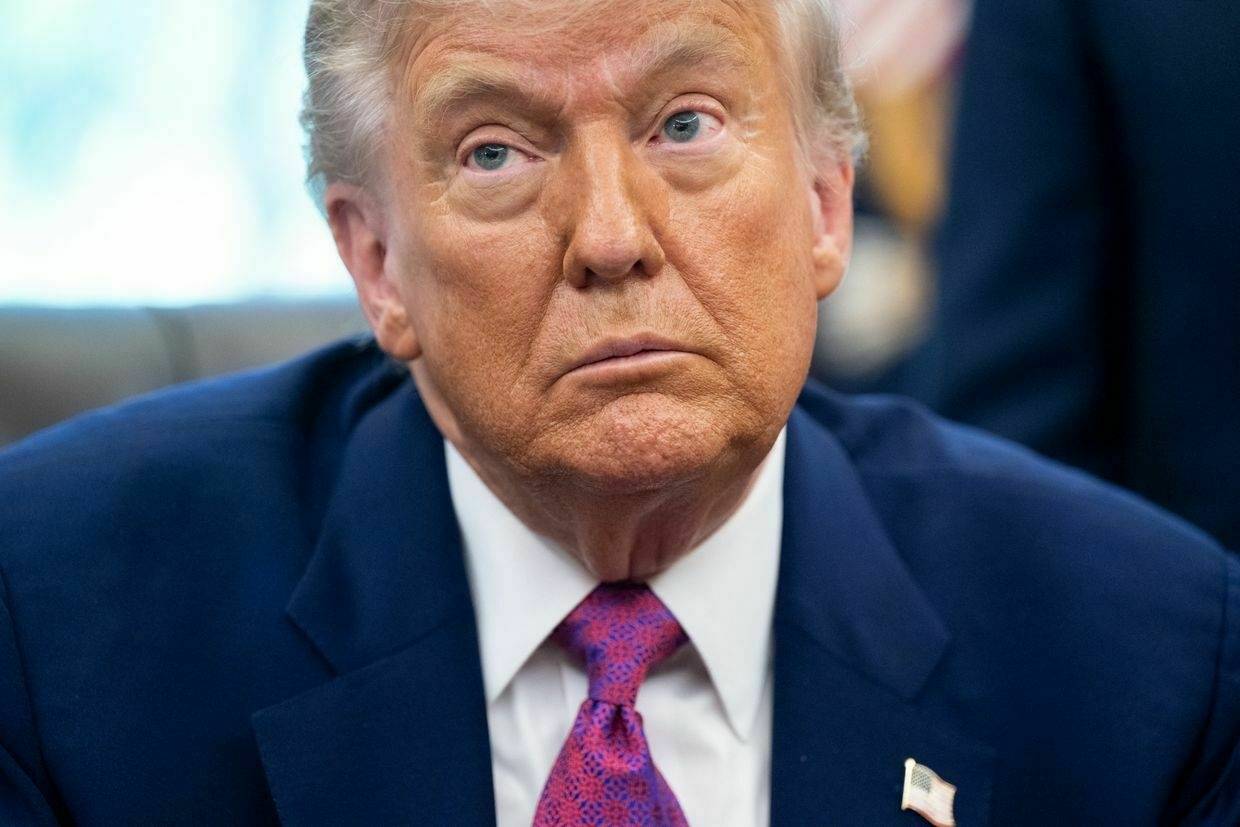
US President Donald Trump in Washington, DC, on June 10, 2025. (Saul Loeb / AFP via Getty Images) But the biggest factor in bringing down the Russian economy remains in the hands of Ukraine.
“We have to keep reminding ourselves that the key driver, the engine of Russia’s economic woes, is in fact its casualty rate and its losses on the battlefield in Ukraine,” Barros said.
“That is what is driving the need to recruit and replace 45,000 soldiers a month. That is what is destroying all the main battle tanks. That is what is actively destroying the Russians.
“And the minute the Ukrainians become less lethal, the minute that the Ukrainians do not impose those heavy losses on Russia at the same scale, then the economic picture becomes much better for the Kremlin."
Putin’s suspected daughter found working in anti-war galleries in ParisNastya Rodionova, a Russian writer and artist who has been based in Paris since 2022, had only met gallery manager Luiza Rozova in passing at events before she learned who the 22-year-old’s parents were. Described by a number of people as a “very nice and well-mannered girl,” Rozova isThe Kyiv IndependentKate Tsurkan

-
NATO expands satellite surveillance to monitor Ukraine, eastern flank
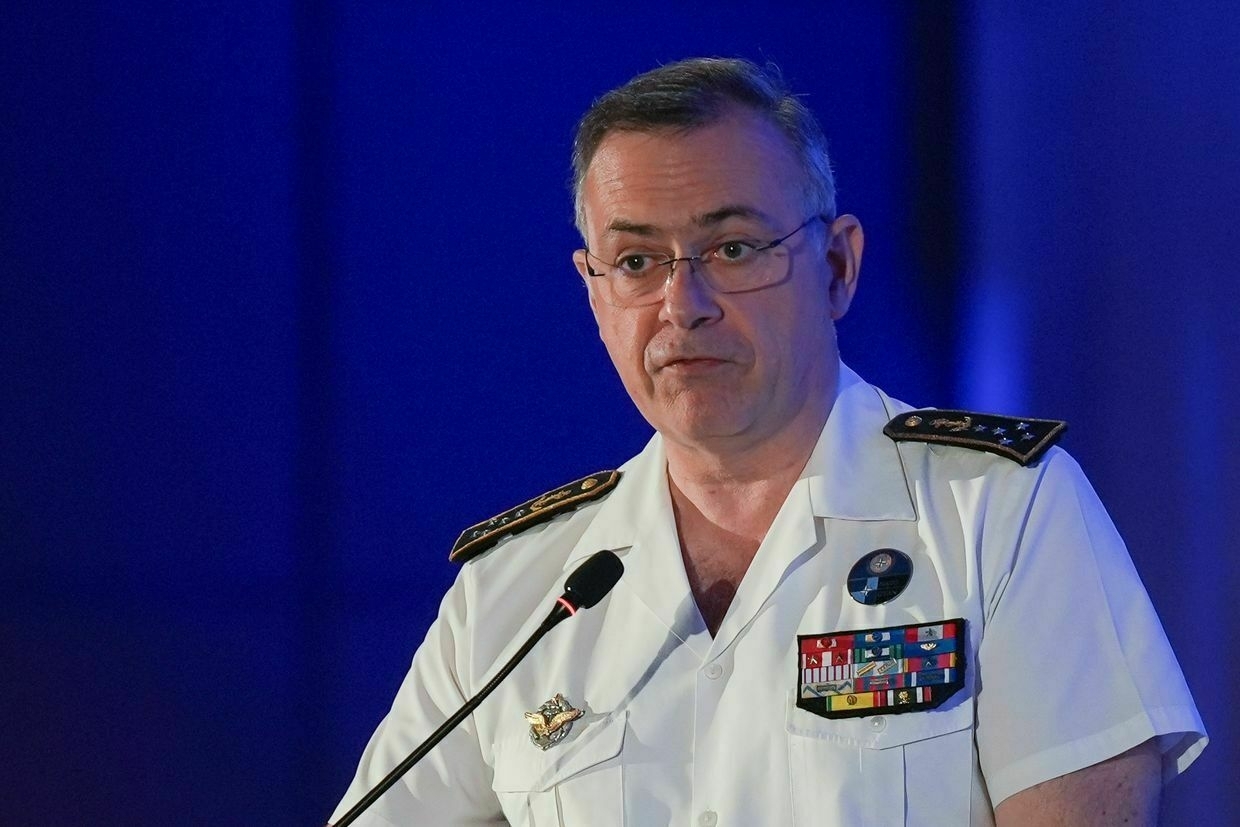
NATO is rolling out a new satellite surveillance system designed to monitor military activity in Ukraine and along the alliance’s eastern borders, senior commander Admiral Pierre Vandier told Bloomberg in comments published on June 12.
The initiative, named Smart Indication and Warning Broad Area Detection (SINBAD), will allow NATO to scan vast territories with unprecedented frequency, using AI-powered analysis to detect changes and alert allies to potential threats. The alliance has reportedly selected U.S. satellite imaging firm Planet Labs as the project’s key partner.
“Today, we’re not certain the Russians will stop at Ukraine,” Vandier said. “We’ll be able to tell them: we’re watching,” he added.
Vandier, who oversees the alliance’s battlefield innovations, emphasized that the ability to monitor troop movements and detect ceasefire violations has become a central concern for European allies, particularly as discussions continue around future peace frameworks for Ukraine.
Previously, French President Emmanuel Macron and British Prime Minister Keir Starmer initiated a so-called “coalition of the willing,” uniting countries that would back a potential peace agreement between Ukraine and Russia.
So far, at least 37 countries have been involved in the coalition’s discussions, with 15 reportedly ready to contribute their troops. Other members have been asked to provide other forms of support, including intelligence, arms, or naval support.
The launch of SINBAD comes as NATO seeks to boost its own capabilities in space surveillance, a field where the alliance has long relied heavily on U.S. assets. While the U.S. remains central to NATO’s space strategy, European allies are moving to reduce dependency, especially amid shifting U.S. foreign policy under President Donald Trump.
Trump has repeatedly cast doubt on the U.S. commitment to NATO, signaled intentions to reduce U.S. troop presence in Europe, and blamed Ukraine’s pursuit of alliance membership for provoking the war.
The alliance is also expected to endorse a new defense spending benchmark, 5% of economic output, with 3.5% for core defense and 1.5% for related sectors, at its upcoming summit in The Hague on June 24–25.
President Volodymyr Zelensky confirmed that Ukraine has been invited to attend the NATO leaders' summit. “We were invited to the NATO summit. I think this is important,” Zelensky said during a June 2 press conference.
Zelensky noted ongoing discussions with NATO Secretary General Mark Rutte and other alliance officials on Ukraine’s potential role and outcomes at the summit.
Russia doubts NATO’s Article 5, could use ‘little green men’ to test it, German intelligence chief warns“They don’t need to send tanks for that,” German intelligence chief Bruno Kahl told Table Media. “They just have to send ‘little green men’ to Estonia to defend the allegedly oppressed Russian minority.”The Kyiv IndependentMartin Fornusek
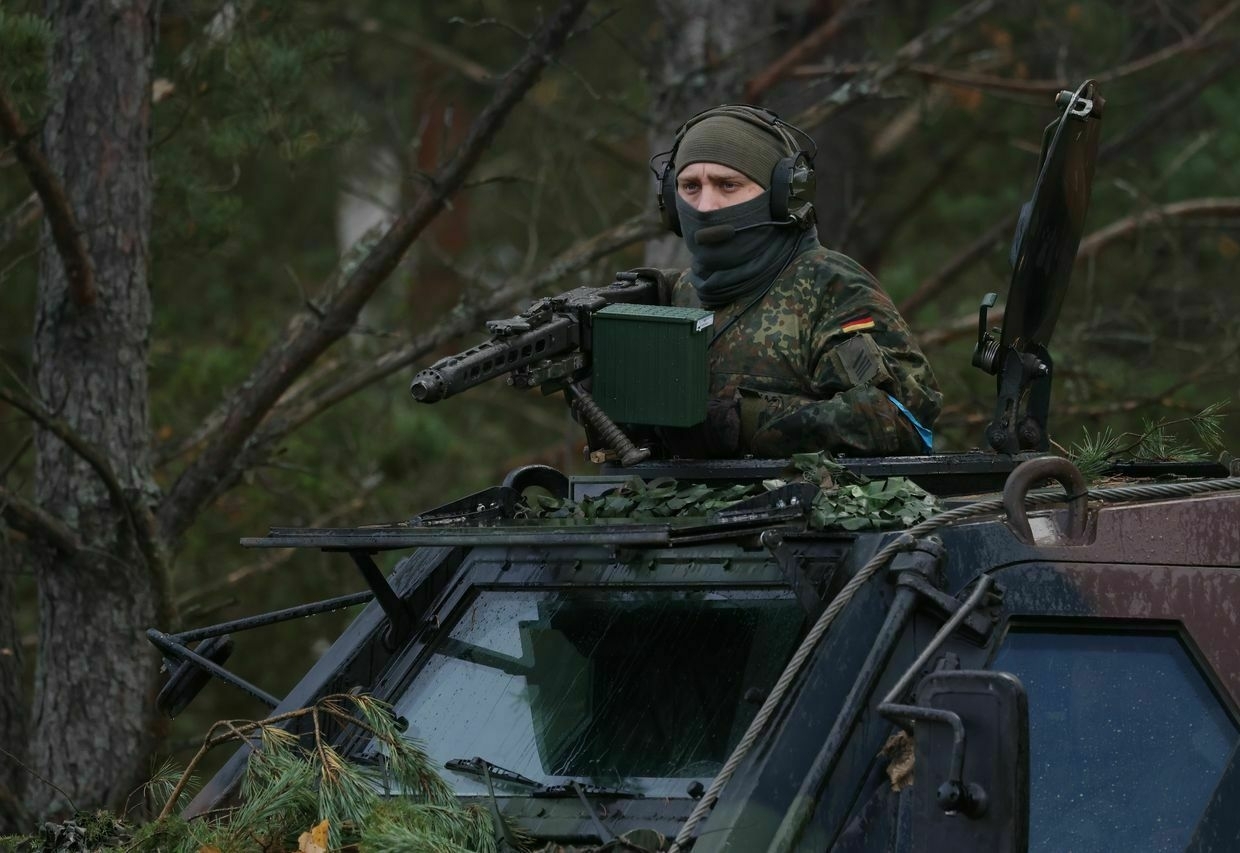
-
Russia using peace talks to stall US sanctions, Zelensky says
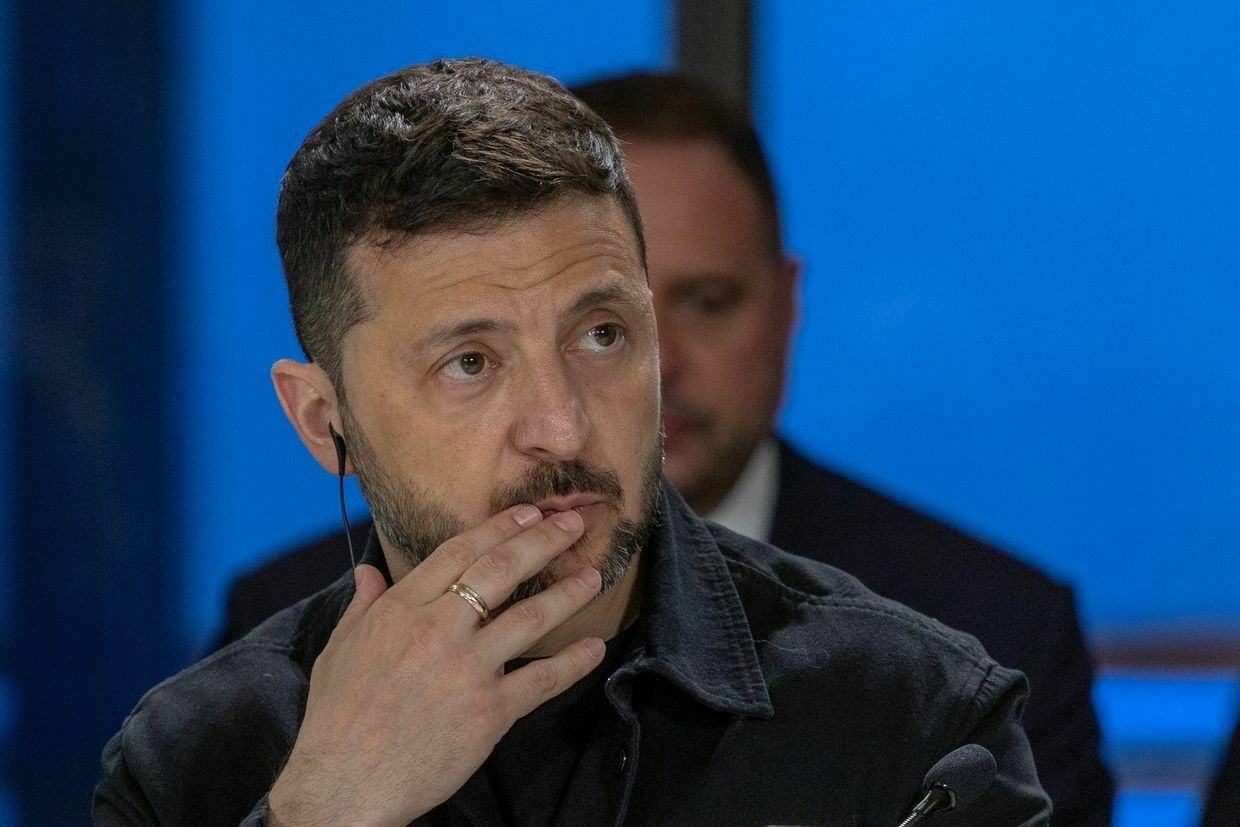
Russia is attempting to delay peace negotiations to avoid tougher U.S. sanctions, President Volodymyr Zelensky said in an interview with German tabloid Bild on June 12.
His comments come as Russia continues to reject a full ceasefire despite having initiated two rounds of peace talks in Istanbul — first on May 16 and on June 2.
Both rounds resulted in agreements on prisoner exchanges, but failed to deliver progress toward ending hostilities. During the negotiations, Moscow ramped up ground offensives and launched massive attacks on Ukrainian cities.
“It’s important for them to show (U.S. President Donald) Trump that there is a diplomatic bridge between Ukraine and Russia,” Zelensky told Bild.
“So that sanctions aren’t imposed against Russia” while talks are ongoing, Zelensky said, adding that Russian President Vladimir Putin’s strategy is to maintain the illusion of dialogue and then argue: “We’re talking to each other! If sanctions are imposed, there will be no more talks."
Zelensky warned that Moscow’s goal is not peace but buying time.
“Putin feels that his economy is now suffering,” he said. “But he wants to gain even more time until the strong sanctions are introduced, because he can still hold out for some time."
Trump has previously warned he would impose new sanctions on Moscow, but has yet to take the step. On June 5, Trump said he was withholding the move in hopes of a potential peace deal but warned he could act if Russia continues to stall.
“When I see the moment where it’s not going to stop… we’ll be very tough,” Trump told reporters.
Critics, as well as Zelensky, argue that the slow implementation of sanctions gave Russia time to adapt its economy and defense sector. “The main mistake of the sanctions was that they were introduced too slowly,” Zelensky said.
Trump has repeatedly said he is monitoring the situation and hinted sanctions could come soon if progress is not made. Meanwhile, a bipartisan bill in the U.S. Senate that would impose harsh tariffs on countries buying Russian oil remains on hold as lawmakers await Trump’s signal.
‘Deadline is in my brain’ — Trump dismisses timeline to impose Russian sanctionsU.S. President Donald Trump sidestepped questions on June 5 as to when he can be expected to impose additional sanctions on Russia, as the Kremlin continues to reject a ceasefire in Ukraine.The Kyiv IndependentDmytro Basmat
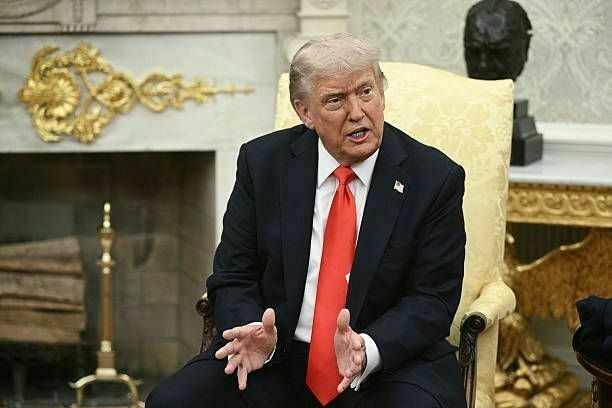
-
With only 2 weeks of funding left, US group tracking Russian abduction of Ukrainian children prepares to shut down
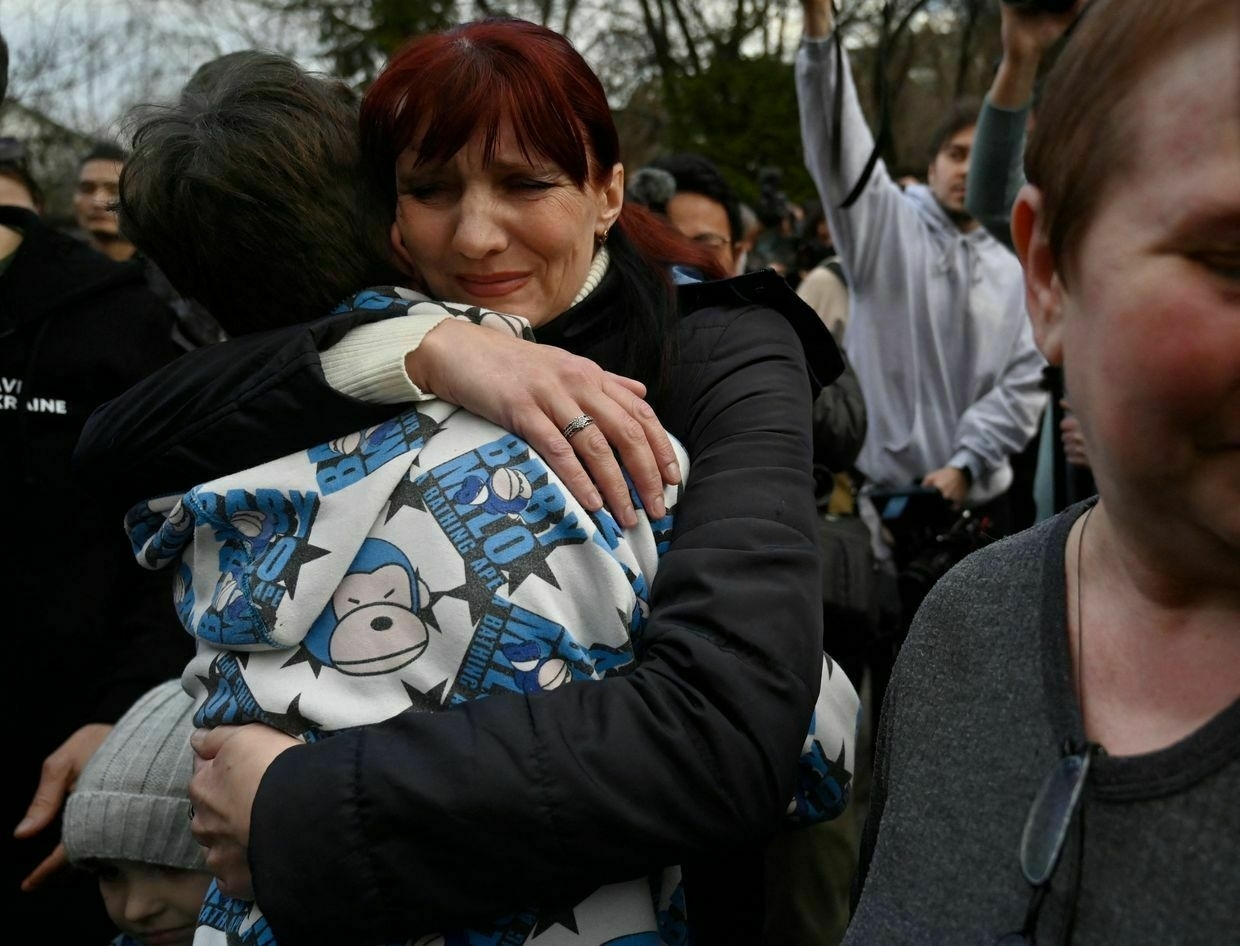
The leading U.S.-backed initiative documenting Russia’s abduction of Ukrainian children is preparing to shut down after its funding was terminated by the Trump administration, CNN reported on June 11.
The Yale University-based Humanitarian Research Lab, which spearheads the Ukraine Conflict Observatory, has reportedly transferred its data to the U.S. State Department and Ukraine’s government as it closes operations in the coming weeks.
“Right now, we are running on fumes,” Nathaniel Raymond, the lab’s executive director, told CNN. “As of July 1, we lay off all of our staff across Ukraine and other teams, and our work tracking the kids officially ends."
Since its launch in May 2022, the observatory has compiled evidence of Russian war crimes, including the deportation of Ukrainian children, many of whom were sent to reeducation camps or adopted by Russian families. The project relied on biometric and satellite data and has supported six International Criminal Court (ICC) indictments, including two related to child abductions, according to Raymond.
The database of the observatory contains records on more than 30,000 Ukrainian children allegedly abducted by Russia from over 100 locations, according to an undisclosed source cited by CNN. This figure outstrips estimates by Ukraine’s Children of War database, which says that over 19,500 children have been deported or forcibly displaced by Russia.
The program’s end leaves what experts call a major gap in accountability efforts.
“The Conflict Observatory’s work cannot be replaced by Europol or other organizations,” a bipartisan group of U.S. lawmakers reportedly wrote in a letter to Secretary of State Marco Rubio on June 11, urging the administration to restore funding.
While Rubio temporarily reinstated funding earlier this year to allow the lab to complete data transfers, he confirmed at a March 28 press conference that the program was ultimately defunded as part of government efficiency cuts. The transferred material, including documentation of attacks on civilian infrastructure and filtration sites, is now expected to be shared with Europol within days.
According to Ukraine’s Children of War database, only around 1,300 of the abducted children have been brought home so far. Many others remain unidentified due to deliberate efforts by Russian authorities to obscure their identities by altering names and birth records.
Ukrainian leaders have repeatedly emphasized that repatriating abducted children is a non-negotiable condition for any future peace deal with Moscow.
In 2023, the ICC issued arrest warrants for Russian President Vladimir Putin and children’s rights ombudsman Maria Lvova-Belova over their roles in the deportation of Ukrainian minors.
As Russia trains abducted children for war, Ukraine fights uphill battle to bring them homeAround the world, abducting a child is a serious crime punishable by years behind bars. But when the kidnapper is Russia, justice remains a distant hope. So does the child’s return home. Since the start of the full-scale invasion, Ukraine has identified over 19,500 children who have beenThe Kyiv IndependentDaria Shulzhenko
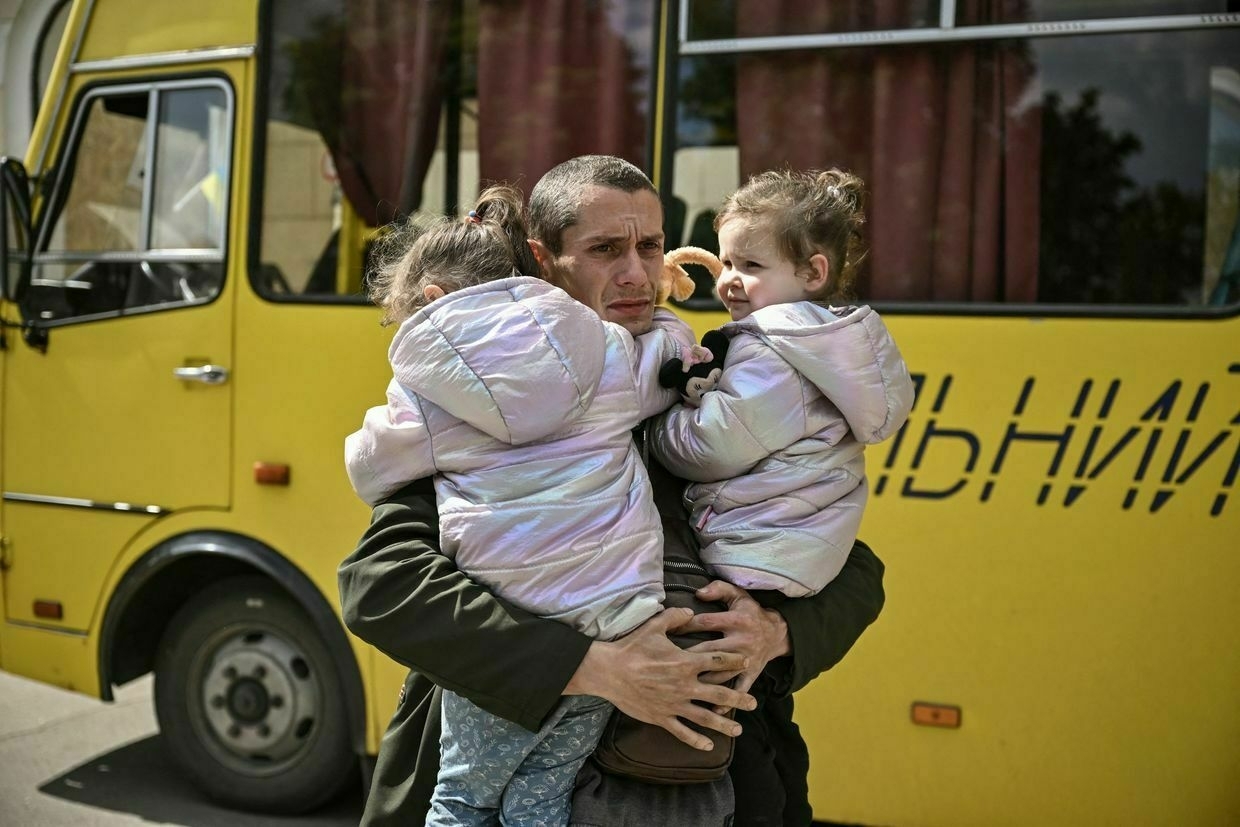
-
Rubio congratulates Russian people on Russia Day
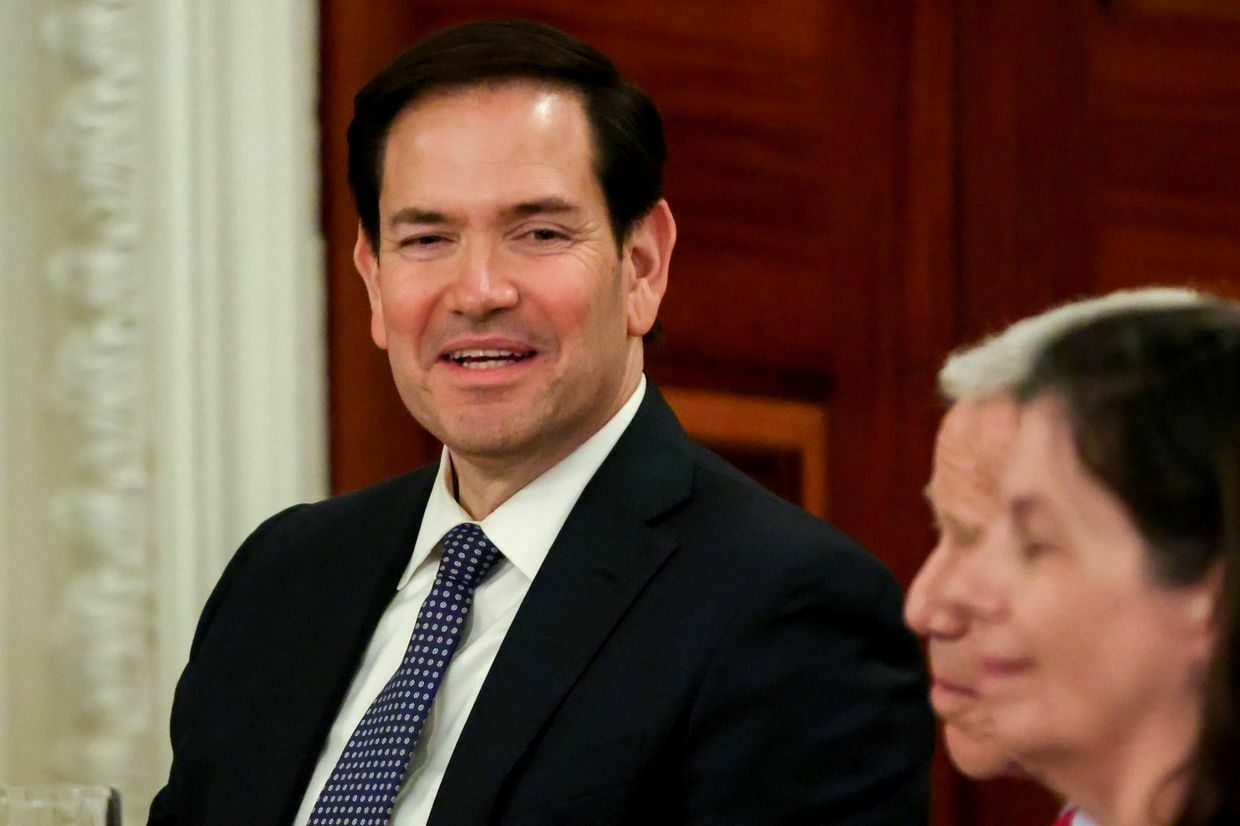
U.S. Secretary of State Marco Rubio congratulated the Russian people on June 12, Russia’s National Day, and expressed a desire for “constructive engagement” to bring peace to Ukraine.
“On behalf of the American people, I want to congratulate the Russian people on Russia Day,” Rubio said in a statement published on the State Department’s website.
“The United States remains committed to supporting the Russian people as they continue to build on their aspirations for a brighter future."
After taking office in January, the new U.S. administration took a sharp break from ex-President Joe Biden’s policy on Ukraine and Russia.
U.S. President Donald Trump’s team has sought to broker a peace deal between Kyiv and Moscow while being reluctant to commit additional funds or military aid to the besieged country.
“It is our hope that peace will foster more mutually beneficial relations between our countries,” Rubio said.
Washington has also signaled an intent to restore ties with Moscow, with both sides discussing venues for possible economic cooperation.
While the Biden administration imposed massive sanctions on Russia and sought to isolate Russian President Vladimir Putin on the international stage, Trump has often boasted about his close ties with the Russian leader and refused to impose additional economic restrictions.
Russia Day, also known as the Day of Adoption of the Declaration of State Sovereignty of the Russian Soviet Federative Socialist Republic, has been celebrated annually on June 12 since 1992.
The day commemorates the declaration of Russia’s state sovereignty from the Soviet Union, marking the start of a constitutional reform that eventually led to the breakdown of the USSR.
Putin’s suspected daughter found working in anti-war galleries in ParisNastya Rodionova, a Russian writer and artist who has been based in Paris since 2022, had only met gallery manager Luiza Rozova in passing at events before she learned who the 22-year-old’s parents were. Described by a number of people as a “very nice and well-mannered girl,” Rozova isThe Kyiv IndependentKate Tsurkan

-
Partisan group destroys Russian military truck in occupied Ukraine, allegedly killing soldiers, Atesh claims
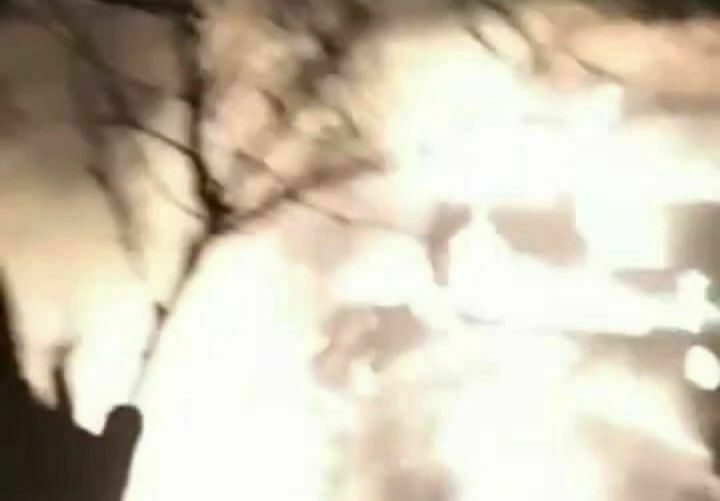
A Russian Ural military truck was destroyed, allegedly killing “several occupiers” near occupied Melitopol overnight on June 12, the pro-Ukrainian Atesh partisan group claimed.
"(O)ur fighters set fire to an army Ural truck, and several occupiers on duty now remain in the fields of Zaporizhzhia forever," the Atesh group said in a post to Telegram.
On June 10, the Atesh partisan group claimed they destroyed a vehicle used by drone operators in the Russian 64th Separate Motorized Rifle Brigade in occupied Melitopol.
The group says the June 12 attack will mark the start of Russia’s annual national holiday.
“A gift for Russia Day: Atesh agents carried out sabotage in the Melitopol region… Atesh agents conveyed ‘congratulations’ to the occupiers: one of our fighters set fire to an army Ural truck,” the group said.
The Kyiv Independent could not verify the group’s claims.
The Atesh partisan group regularly conducts sabotage attacks in Russia and Ukraine’s Russian-occupied territories.
America’s weak strongmanOver the past two months, financial investors have hit upon a new trading strategy, based on a simple rule: TACO — Trump Always Chickens Out. America’s president threatens to slap massive import tariffs on friends and foes alike, or to remove the Federal Reserve chair, only to back down whenThe Kyiv IndependentTimothy Snyder
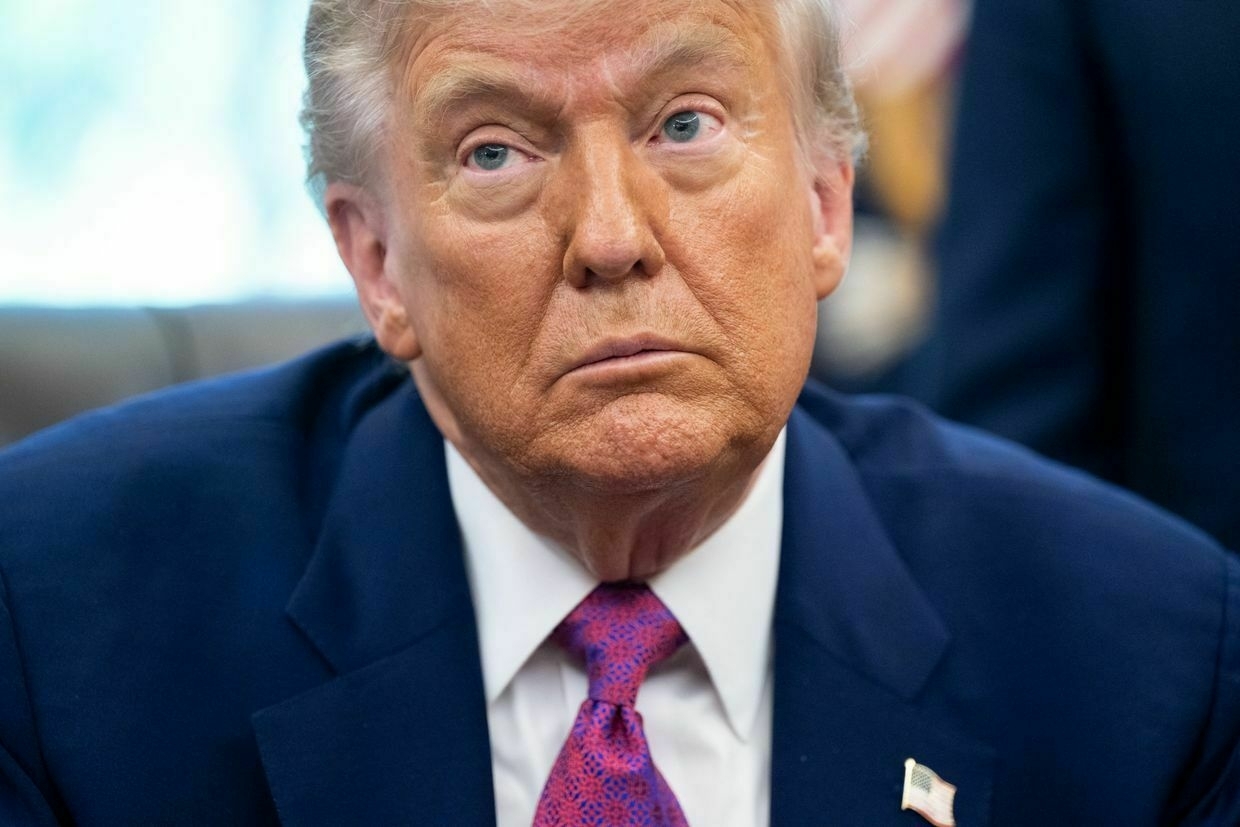
-
Republicans press Pentagon chief over Trump’s plan to end Russia's war against Ukraine, Politico reports

At a Senate budget hearing on June 11, Republican senators fiercely criticized U.S. Defense Secretary Pete Hegseth over the Trump administration’s effort to end the Ukraine war through negotiations involving Russia.
The session revealed deep divisions within the GOP on U.S. foreign policy, as lawmakers clashed over the administration’s strategic direction, Politico reports. Leading the pushback was Sen. Mitch McConnell of Kentucky, one of three Republicans who voted against Hegseth’s confirmation, who warned, “America’s reputation is on the line.”
McConnell, now chair of the panel overseeing defense funding, issued some of his strongest public criticism yet, questioning whether the United States would continue defending democratic allies against authoritarian threats.
He contrasted his stance — rooted in a Reagan-era commitment to global leadership — with Hegseth’s “America First” approach favored by many Trump supporters. “We don’t want a headline at the end of this conflict that says Russia wins and America loses,” McConnell said.
When asked who the aggressor in the three-year-old war is, Hegseth responded, “Russia is the aggressor.” But he avoided directly stating which side the U.S. wants to see win, instead emphasizing that President Trump is committed to achieving peace. Hegseth shifted blame to the Biden and Obama administrations, arguing that slow responses during their terms allowed Putin to seize Crimea and invade Ukraine. “Vladimir Putin knows that President Trump is strong,” he said, suggesting a negotiated peace would bolster America’s global position.
Sen. Lindsey Graham, a prominent Trump ally, questioned whether Putin would stop his territorial ambitions if he gained ground in Ukraine. Joint Chiefs Chair Gen. Dan Caine said he did not believe Putin would stop. Hegseth, however, responded, “It remains to be seen.” Graham rebuked that answer, saying, “This is the ‘30s all over. It doesn’t remain to be seen."
Democrats also raised concerns. Sen. Chris Coons of Delaware criticized the administration for omitting Ukraine aid in its 2026 budget request and warned against compromising too much for the sake of peace. “We cannot abandon Ukraine,” he said.
Hegseth defended the administration’s strategy, calling a negotiated settlement a show of strength. “The alternative of endless war that is largely funded by the United States and fought by Ukrainians… does not make sense strategically,” he said.
America’s weak strongmanOver the past two months, financial investors have hit upon a new trading strategy, based on a simple rule: TACO — Trump Always Chickens Out. America’s president threatens to slap massive import tariffs on friends and foes alike, or to remove the Federal Reserve chair, only to back down whenThe Kyiv IndependentTimothy Snyder
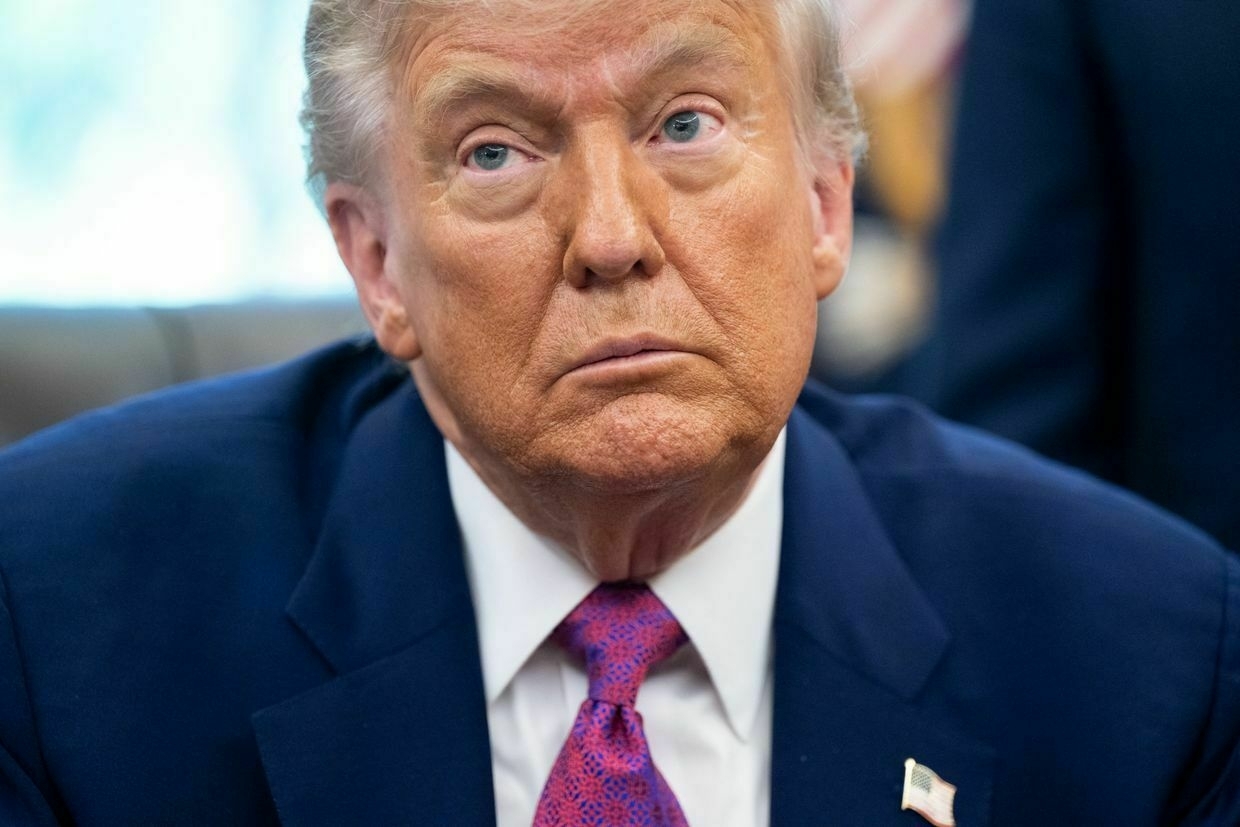
-
Ukraine war latest: Ukraine strikes targets in Russia, including gunpowder plant
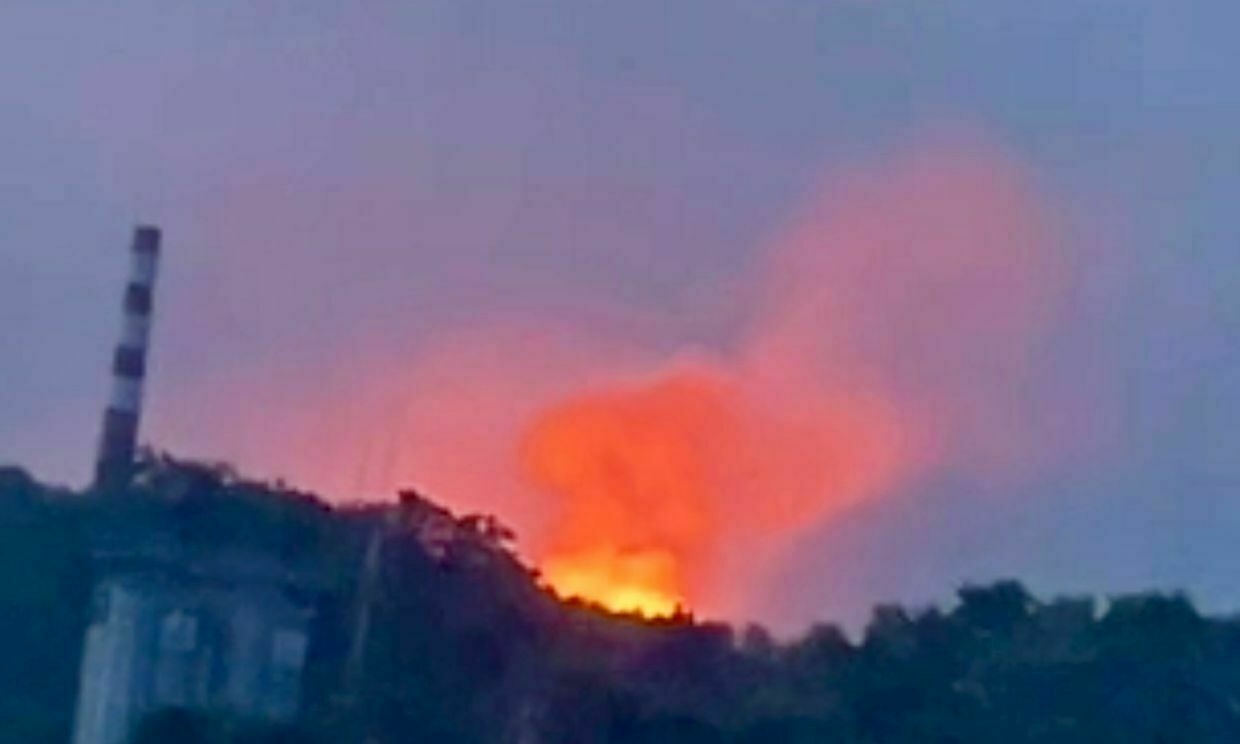
Key developments on June 11:
- Ukrainian drones strike targets in Russia, including gunpowder plant, General Staff says
- Zelensky urges ‘stronger’ EU sanctions on Russia, lower oil price cap
- Ukraine repatriates bodies of 1,212 fallen soldiers
- Ukraine’s SBU releases fresh video of Operation Spiderweb, teases ‘new surprises’
- NATO summit statement omits Ukraine’s entry bid, $40 billion pledge, Bloomberg reports
Ukrainian drones struck multiple military targets in Russia, including the Tambov Gunpowder Plant, overnight on June 11, the General Staff of Ukraine’s Armed Forces reported.
The plant, one of Russia’s main manufacturers of gunpowder and explosives for small arms, artillery, and rocket systems, caught fire following the drone strike, according to the General Staff.
Local residents reported hearing explosions and shared videos showing a large blaze near the facility, according to the Russian independent media outlet Astra.
The General Staff described the attack as part of a broader operation to degrade Russia’s ability to produce explosive materials and ammunition used in the full-scale war against Ukraine.
The Tambov facility has been targeted several times since November 2023, and U.S. sanctions were imposed on it that same year. Tambov Oblast, located southeast of Moscow, lies hundreds of kilometers from Ukraine and shares no direct border with it.
Russian state news agency TASS confirmed a drone attack but did not mention the strike on the powder plant. Tambov Oblast Governor Maxim Egorov said that emergency services had extinguished the fire and that there were no casualties, though he did not specify the location of the fire.
In addition to the strike on Tambov, Ukrainian drones hit the ammunition depot of Russia’s 106th Airborne Division in Kursk Oblast and the depot at Buturlinovka airfield in Voronezh Oblast, the General Staff said.
The extent of the damage is still being assessed, the General Staff said.
“The Defense Forces continue to take all measures to undermine the military and economic potential of the Russian occupiers and force Russia to stop its armed aggression against Ukraine,” the statement reads.
Ukraine has ramped up long-range drone strikes in recent weeks, targeting Russian air bases and arms production facilities in an effort to disrupt Moscow’s war machine ahead of an anticipated Russian summer offensive.
As Russia inches closer to Dnipropetrovsk Oblast, new Ukrainian region might soon be at warMoscow said its troops had crossed into Dnipropetrovsk Oblast and were conducting offensive operations in the region, a claim Kyiv quickly denied as “Russian disinformation.” Russian troops have been pushing toward Dnipropetrovsk Oblast for months, trying to solidify the southern flank to capture Pokrovsk and the remaining parts of theThe Kyiv IndependentAsami Terajima
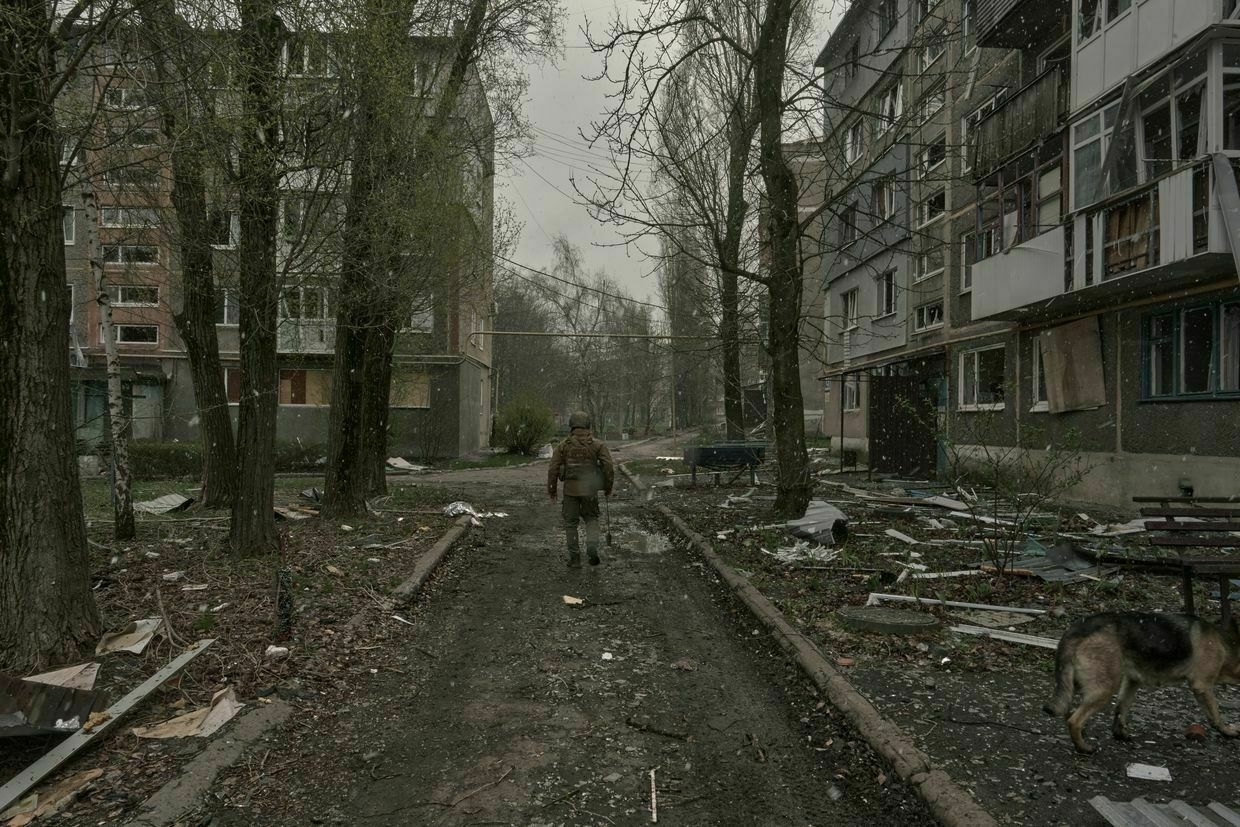
Zelensky urges ‘stronger’ EU sanctions on Russia, lower oil price capPresident Volodymyr Zelensky on June 11 called on the European Union to impose tougher sanctions against Russia, arguing that stronger financial pressure is necessary to curb Moscow’s war effort.
Speaking at the Ukraine-Southeast Europe Summit in Odesa, Zelensky said the upcoming 18th EU sanctions package “could be stronger,” especially in targeting Russian oil tankers and the financial sector. He urged the EU to further reduce the price cap on Russian oil exports.
“A ceiling of $45 per barrel of oil is better than $60, that’s clear, that’s true. But real peace will come with a ceiling of $30,” he said. “That’s the level that will really change the mindset in Moscow."
After the 17th package of sanctions against Russia took effect on May 20, Ukraine’s allies announced the following day that another round of restrictions was already in the works.
European Commission President Ursula von der Leyen announced on June 10 that the EU is considering lowering the oil price cap from $60 to $45 per barrel — a measure that will be discussed at the upcoming G7 summit in Canada on June 15–17.
The Kremlin’s budget is increasingly strained by soaring military expenditures, with Russia’s Finance Ministry relying heavily on energy revenues to fund the war against Ukraine.
The push for tighter sanctions comes as Russia continues to reject ceasefire proposals and presses forward with military operations. Zelensky warned that Odesa remains one of Russia's "main targets," with plans to push beyond it toward the borders with Romania and Moldova.
"Russia wants to destroy it, as it has done with countless cities and villages in the occupied territories," he said. "Russian military plans point to this region — Odesa — and then to the border with Moldova and Romania."
Odesa is a major port city in southern Ukraine, located on the northwestern coast of the Black Sea. The president warned of possible destabilization efforts in the broader region, comparing the Kremlin's strategy to its previous interference in the Balkans.
"We saw this before in the Balkans, where Russia intensified interethnic friction, carried out sabotage, and even attempted coups," Zelensky said.
The Odesa summit was attended by several southeastern European leaders, including Serbian President Aleksandar Vucic and Romania's newly elected President Nicusor Dan.
Vucic's trip marked his first official visit to Ukraine since the start of Russia's full-scale invasion.
Ukraine bracing for ‘painful’ reduction in US military aid after Hegseth announces cutsEditor’s note: For security reasons, the real names of the soldiers mentioned in this story have not been used. A reduction in U.S. military aid to Ukraine would be “painful” and could have potentially “dire consequences” for the global order, Ukrainian lawmakers and soldiers have told the Kyiv Independent.The Kyiv IndependentKateryna Hodunova
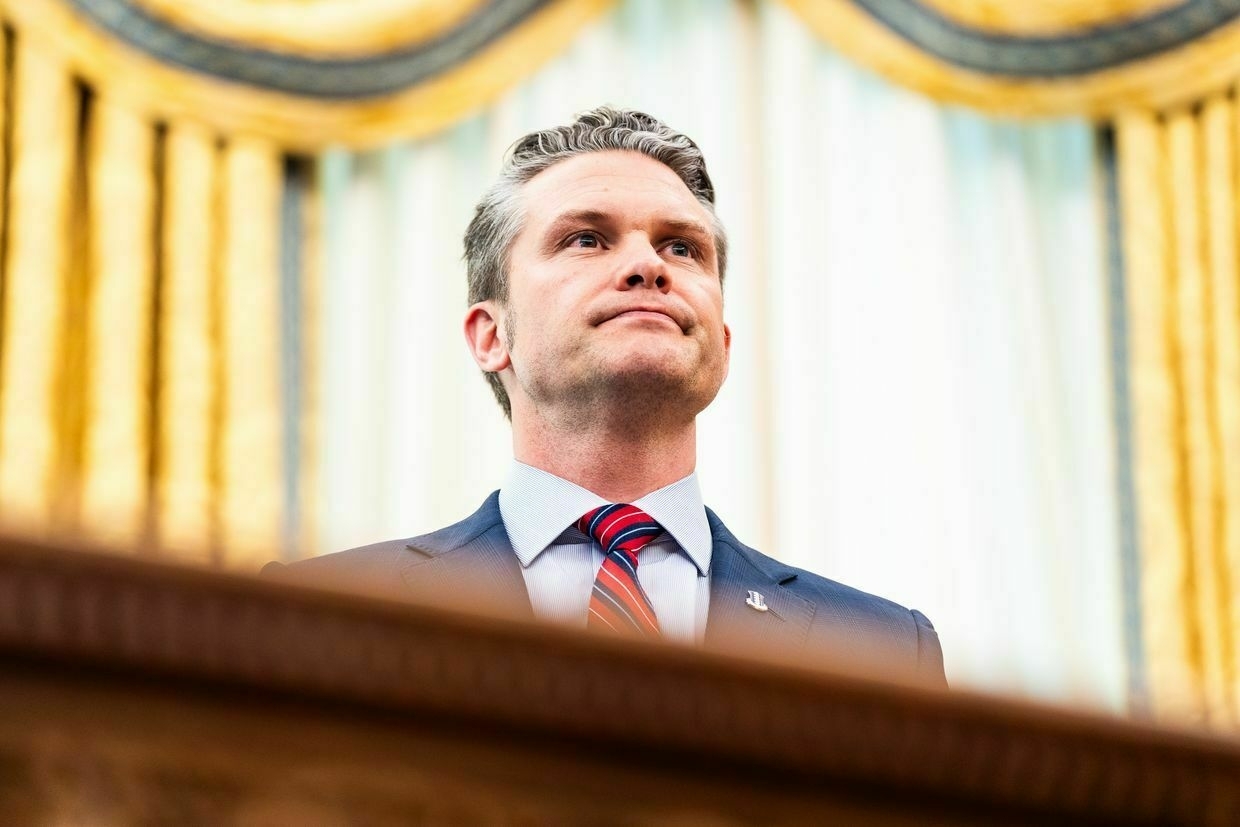
Ukraine repatriates bodies of 1,212 fallen soldiersUkraine has brought back the bodies of 1,212 fallen service members, the Ukrainian Coordination Headquarters for the Treatment of Prisoners of War (POW) said on June 11.
The announcement follows Russian-Ukrainian Istanbul talks on June 2, which focused on exchanges of POWs and fallen soldiers.
The repatriation was carried out through a coordinated effort involving the Security Service of Ukraine (SBU), the Armed Forces, the Interior Ministry, the Ombudsman's Office, the State Emergency Service, and other national security and defense institutions. The International Committee of the Red Cross also supported the operation.
The remains of soldiers were returned from multiple front-line regions, including Kharkiv, Donetsk, Luhansk, Zaporizhzhia, Kherson, and Sumy oblasts.
Officials emphasized that investigative and forensic teams from the Interior Ministry and the Health Ministry are working to identify the bodies in the shortest possible time.
Vladimir Medinsky, aide to Russian President Vladimir Putin, claimed Russia transferred the bodies of 1,212 Ukrainian soldiers in accordance with the agreements in Istanbul, while Ukraine released the remains of 27 Russian service members.
The Ukrainian side did not disclose how many Russian bodies were handed over in return.
At the Istanbul meeting on June 2, Russian and Ukrainian delegations agreed on a new exchange of POWs but failed to reach a ceasefire agreement.
The Turkey-hosted talks were the second round since mid-May and resulted in an agreement to exchange severely wounded and young prisoners, with President Volodymyr Zelensky saying up to 1,200 individuals could be returned on each side. Russia also pledged to transfer up to 6,000 bodies of Ukrainian soldiers.
Following the Istanbul talks, Ukraine and Russia have already conducted two prisoner exchanges on June 9 and 10. While exact figures were not immediately disclosed, Ukraine confirmed the return of severely wounded and chronically ill prisoners, including those captured during the 2022 siege of Mariupol and held for more than three years.
In Istanbul, Ukraine also submitted a peace proposal that called for a full ceasefire, an "all-for-all" POW exchange, the return of abducted children, and the use of frozen Russian assets to rebuild Ukraine. Russia has yet to formally respond.
‘Ukrainians have been stripped of illusion of control’ — Filmmaker Kateryna Gornostai on Russia’s war, cinema and reclaiming the narrativeWhen Russia launched its full-scale invasion of Ukraine, film director Kateryna Gornostai found herself questioning whether she would continue working. “I had this feeling that life — at least professionally — had come to an end,” she says. “Who needed directors or screenwriters, then? At most, volunteers were needed, but hardly anyoneThe Kyiv IndependentKateryna Denisova

Ukraine's SBU releases fresh video of Operation Spiderweb, teases 'new surprises'The Security Service of Ukraine (SBU) released on June 11 a new video detailing the sequence of its mass drone strike against Russia's strategic aviation earlier this month.
The Operation Spiderweb, carried out on June 1, involved 117 drones that were hidden in trucks across Russia and deployed against four air bases, some thousands of kilometers from the Ukrainian border.
The strike deep in the rear damaged 41 aircraft, including Tu-95, Tu-22M3, and Tu-160 bombers, rare A-50 spy planes, and An-12 and Il-78 transport aircraft, causing damage of over $7 billion, the SBU said.
Trucks, seen in the footage driving in an undisclosed location, first transported first-person-view (FPV) drones and wooden cabins to Russia, the SBU said. Already on Russian territory, the vehicles were loaded with cabins, which, in turn, carried the drones.
0:00/A video detailing Ukraine's Operation Spiderweb on June 1, 2025. (SBU) The preparations were taking place in the Russian city of Chelyabinsk, not far from a Federal Security Service (FSB) office, according to the SBU.
The loaded trucks then drove to multiple locations in the cities of Ivanovo, Ryazan, and in the Murmansk, Irkutsk, and Amur oblasts. The cabins opened remotely at the time of the attack, allowing the drones to strike Russian planes at the Belaya, Olenya, Dyagilevo, and Ivanovo air bases.
The operation was also meant to strike at the Russian air base in Ukrainka in Amur Oblast, but this part of the attack failed.
In the strike, Ukraine deployed drones specially designed by SBU specialists for attacks deep in the rear. Their unique features allowed them to be remotely controlled in real time thousands of kilometers behind the border, an SBU source told the Kyiv Independent.
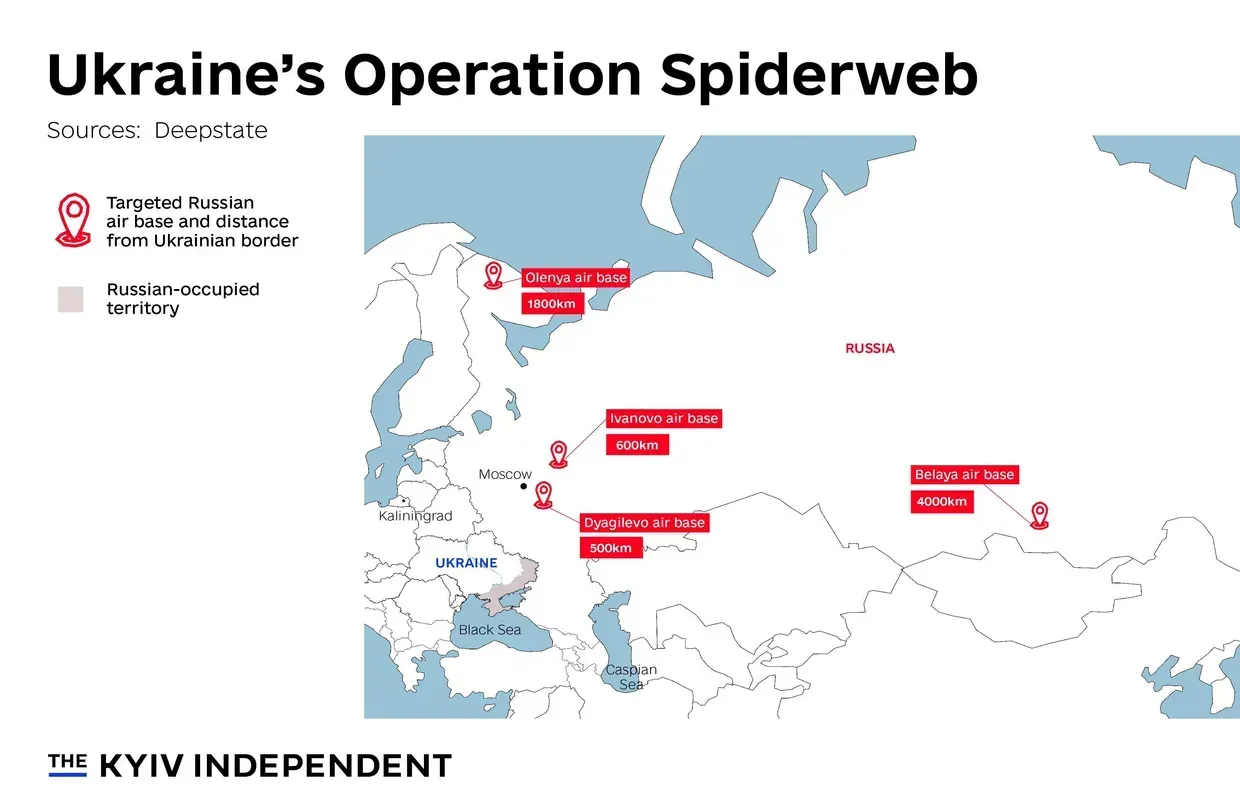
Ukraine's Operation Spiderweb. (Nizar al-Rifai/The Kyiv Independent) The drones' design also helped them "bypass Russian defenses and effectively strike the strategic aviation," the source said.
SBU chief Vasyl Maliuk, who personally oversaw the operation, stressed that Ukrainian drones targeted "absolutely legitimate targets – military airfields and aircraft that attack our peaceful cities."
"The SBU is hitting and will hit (Russia) where it considers itself unreachable!" Maliuk said in a statement.
"We are working on new surprises, no less painful than the Operation Spiderweb."
The attack was lauded by Ukrainian leaders and Western partners, with NATO Admiral Pierre Vandier calling it a reinvention of "the Trojan Horse" method with "technical and industrial creativity."
Various satellite imagery released after the attack showed around a dozen destroyed planes. NATO estimates that between 10 and 13 Russian planes were completely destroyed, and more were damaged.
In turn, President Volodymyr Zelensky claimed that roughly half of the 41 targeted planes have been damaged beyond repair. Russia acknowledged damage to its aircraft but claimed all of them will be "restored."
America’s weak strongmanOver the past two months, financial investors have hit upon a new trading strategy, based on a simple rule: TACO — Trump Always Chickens Out. America’s president threatens to slap massive import tariffs on friends and foes alike, or to remove the Federal Reserve chair, only to back down whenThe Kyiv IndependentTimothy Snyder
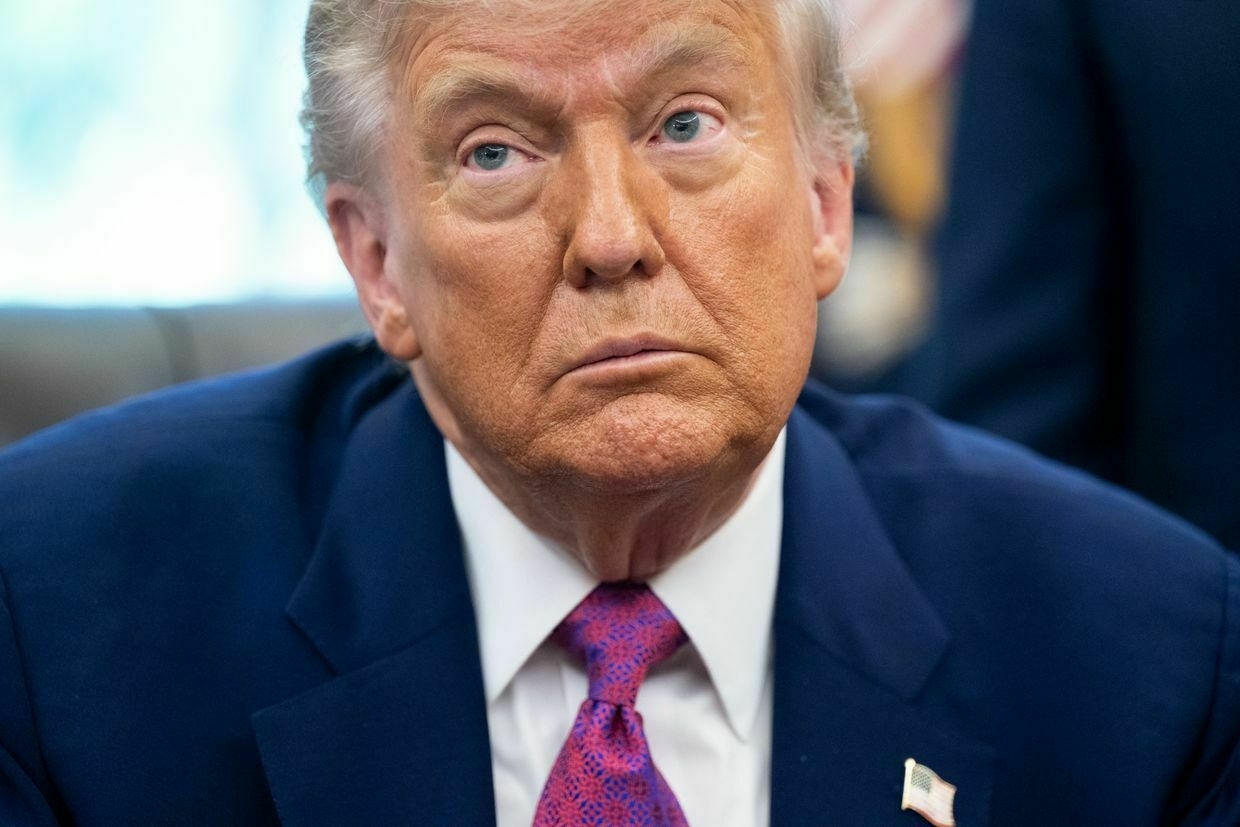
NATO summit statement omits Ukraine's entry bid, $40 billion pledge, Bloomberg reportsA one-page draft of a joint declaration for the upcoming NATO summit omits Ukraine's membership aspirations and last year's pledge of over $40 billion in support, Bloomberg reported on June 11 after reviewing the draft.
This news signals that, for the first time since 2022, Russia's war against Ukraine will not be the chief focus of the annual NATO meeting, which is taking place on June 24-25 in The Hague.
The unusually brief document recognizes Russia as a threat to NATO but not as an aggressor in Ukraine. It also does not mention China, Bloomberg reported.
The communique of the 2024 summit in Washington named Beijing as a "decisive enabler" of Russia's war against Ukraine. Last year's gathering also included a declaration that Ukraine's path to NATO is "irreversible" and promised more than $40 billion in additional military aid.
This year, the document will solely focus on defense spending, as U.S. President Donald Trump pushes NATO partners to hike the military expenditure benchmark from 2% to 5% of GDP.
The final version of the statement can still change, Bloomberg reported.
The brevity of the communique and the summit itself, as well as the decreased focus on Ukraine, stems from the effort to avoid conflict between Trump and European allies.
In a sharp break from former U.S. President Joe Biden, the Trump administration has not approved any new military aid packages to Ukraine and signaled its intent to reduce assistance for Kyiv in the next year's budget.
The U.S. president initially vowed to broker a peace deal between Kyiv and Moscow but became increasingly less engaged in the process as the negotiations stalled and Russia only intensified its attacks against Ukraine.
According to Bloomberg, NATO allies will pledge to allocate at least 3.5% of GDP to defense needs and 1.5% to protecting infrastructure and civil preparedness by 2032. Member states will also consider counting their contributions to Ukraine as part of the new defense spending targets, the news outlet reported.
The summit was preceded by rumors that President Volodymyr Zelensky would not be invited to participate for the first time due to U.S. opposition.
Later, the speculations were dispelled after the Dutch media reported that NATO Secretary General Mark Rutte had invited the Ukrainian leader to attend.
Note from the author:
Ukraine War Latest is put together by the Kyiv Independent news desk team, who keep you informed 24 hours a day, seven days a week. If you value our work and want to ensure we have the resources to continue, join the Kyiv Independent community.
